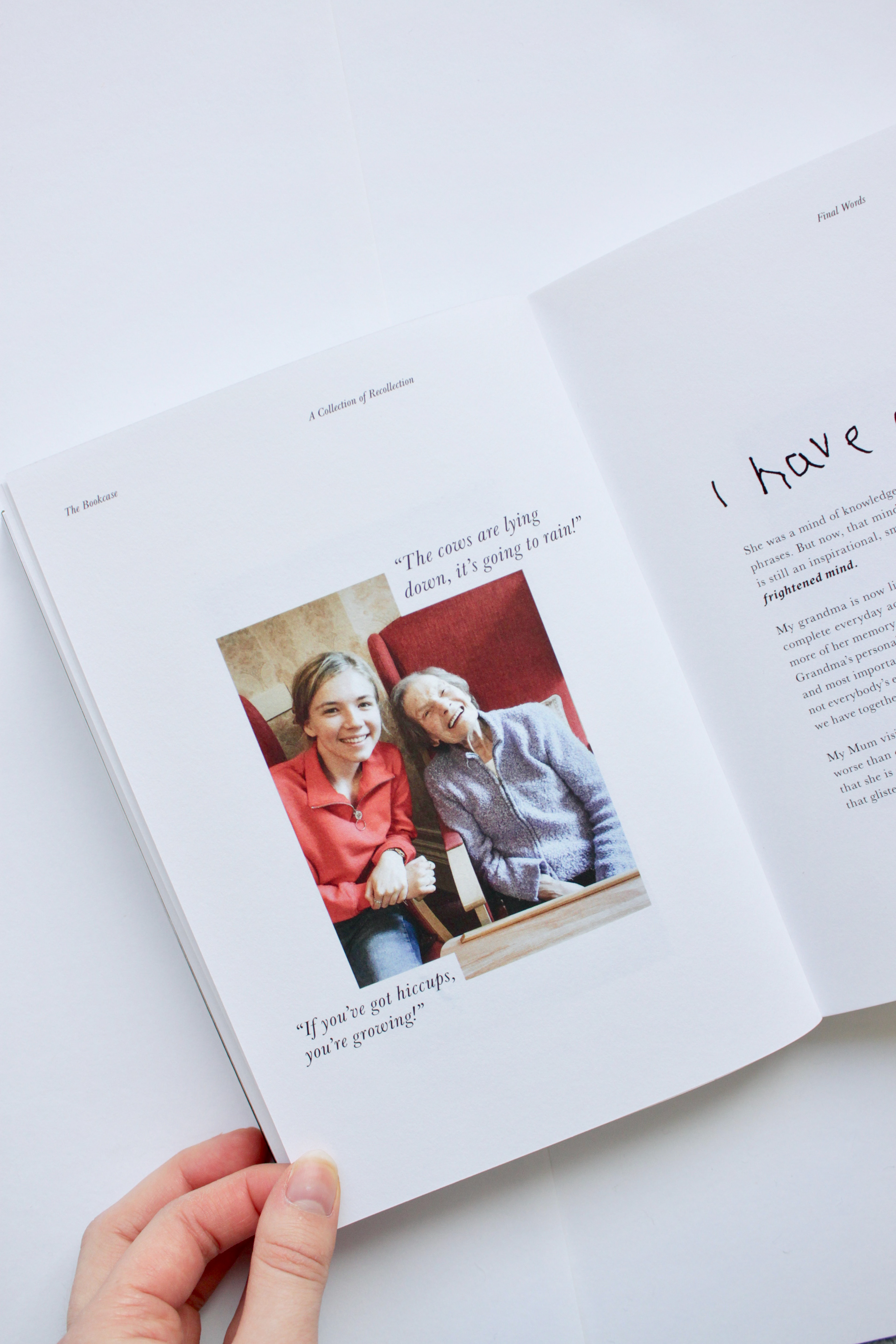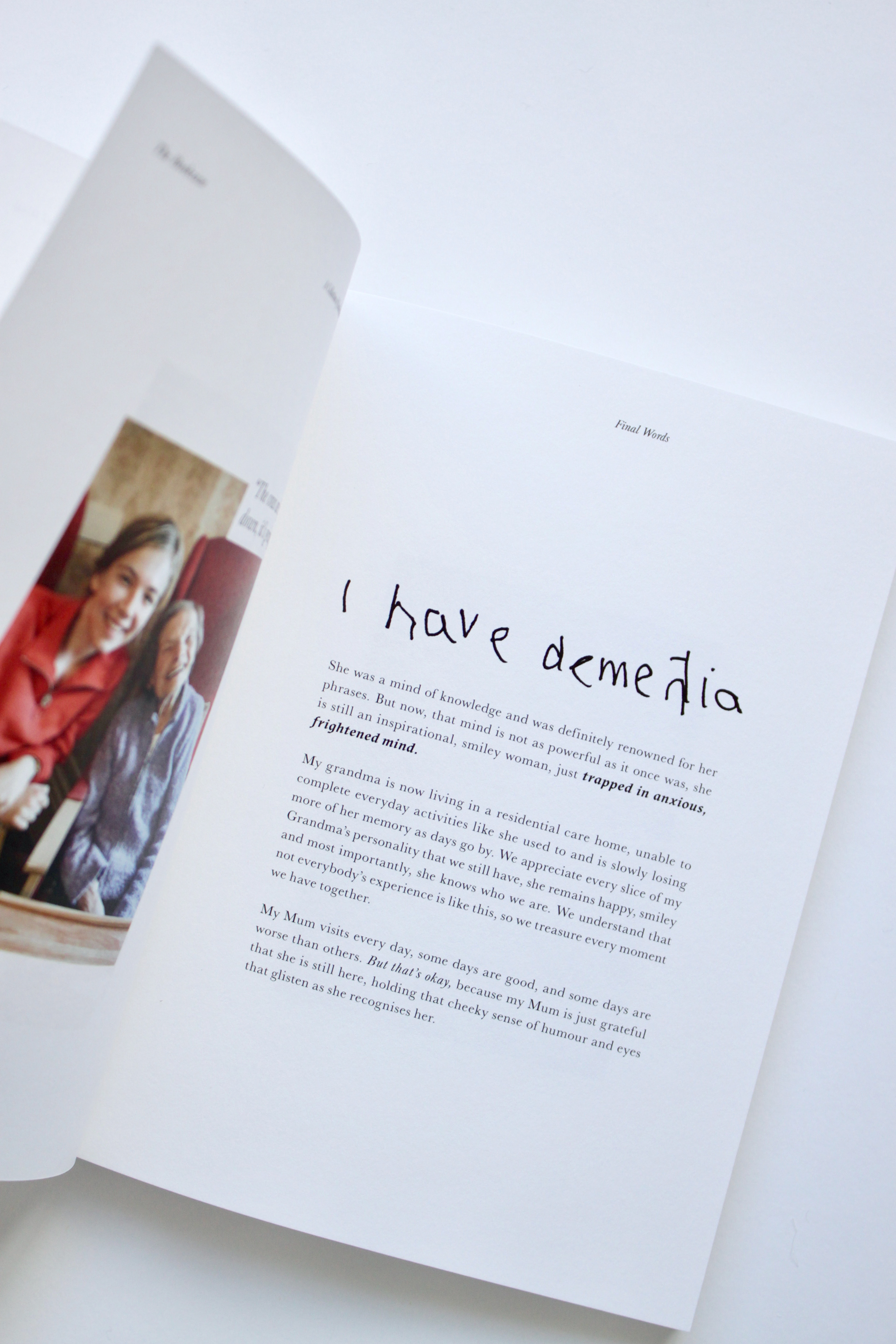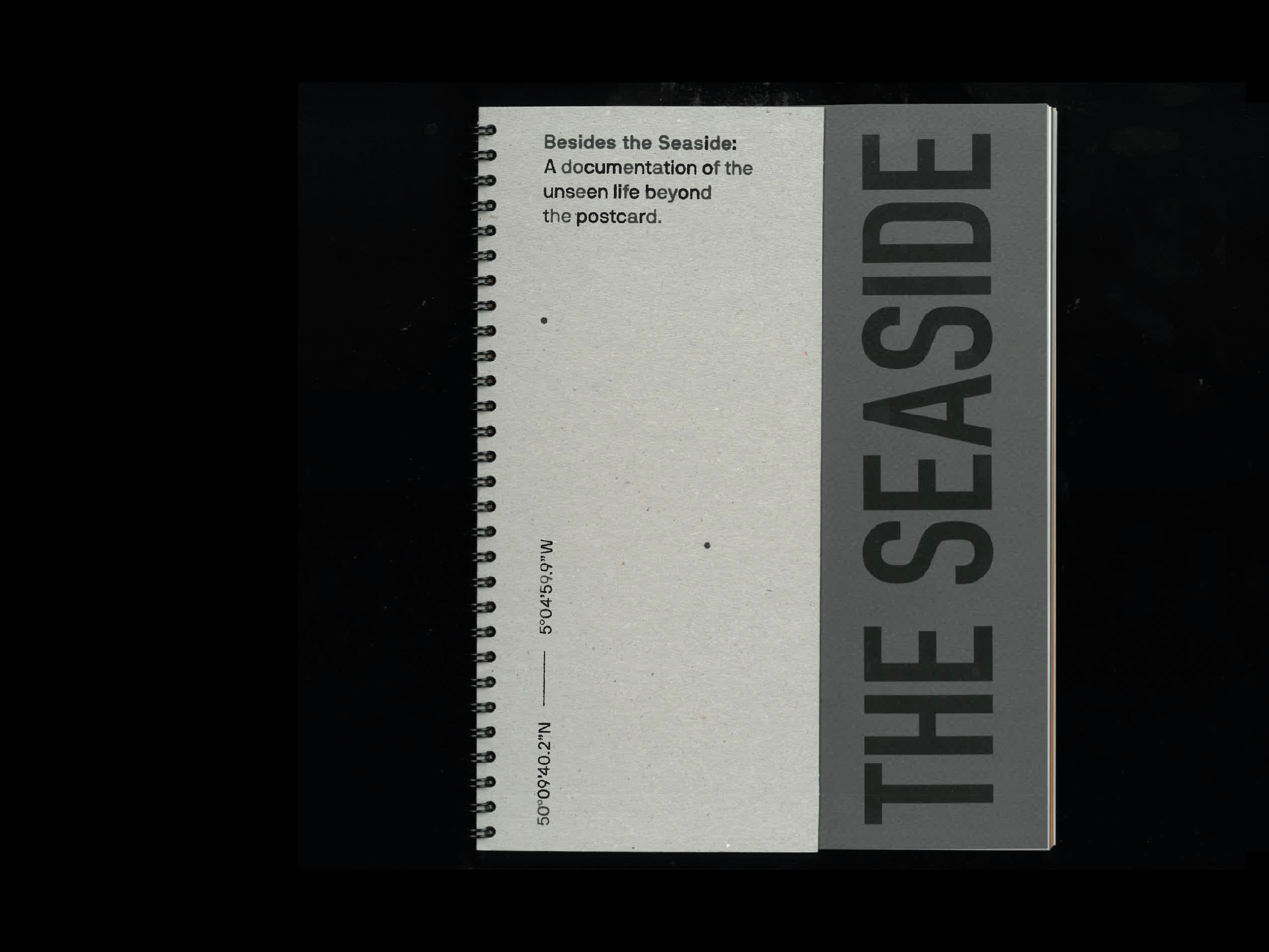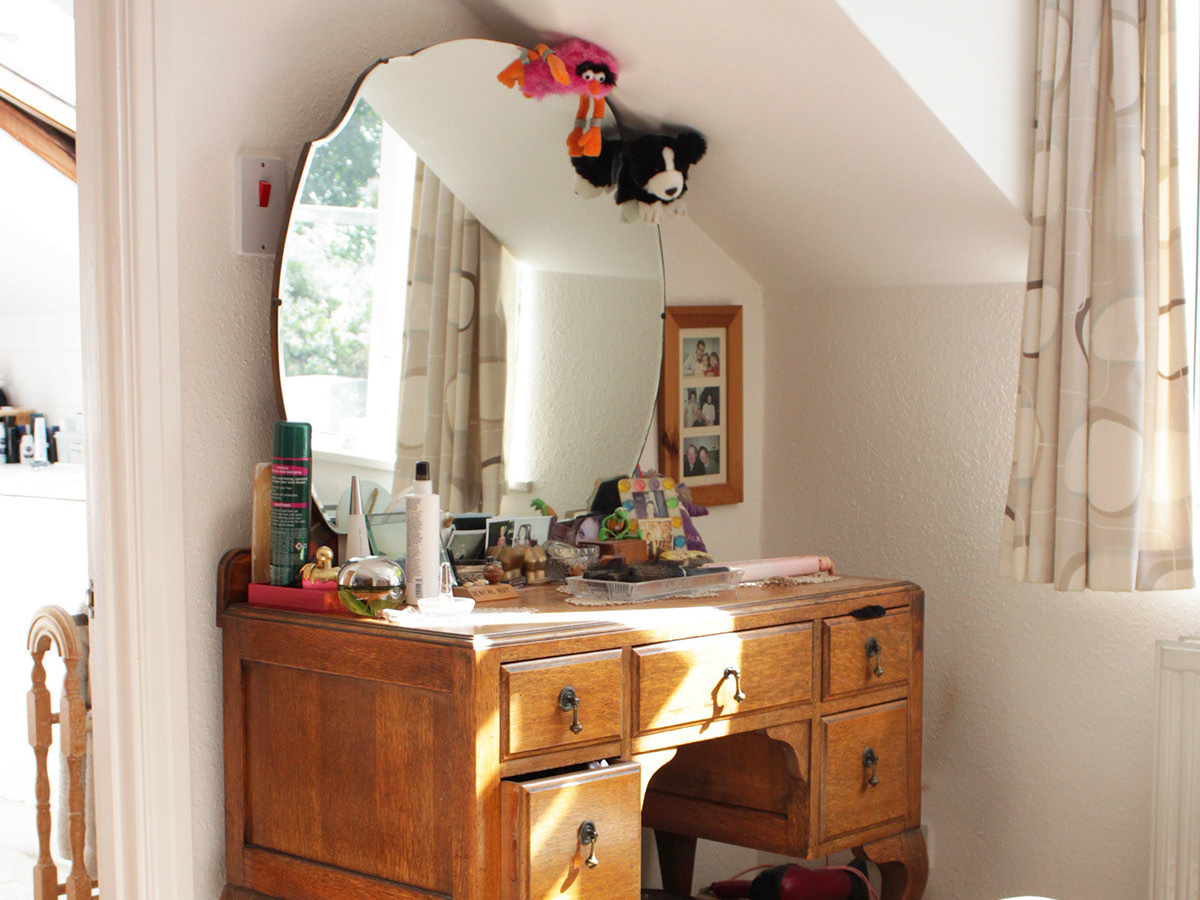The Bookcase - A Collection of Recollection
ISTD Lost, 2019
Brief
Design a typographic work exploring the theme Lost, investigating its widest interpretation from historical, cultural and global perspectives, drawing upon references to different eras, societies, social groups, generations etc.
Outcome
Based on the subject of dementia, The Bookcase: A Collection of Recollection is a publication inspired by my Grandmother's experience of Vascular Dementia and Alzheimer’s Disease. The publication uncovers the unheard voices of dementia, providing reader's a safe space to exchange stories and to inform what it is like to live with and around the disease. The publication documents the lives of those directly affected, accompanied by memories from loved ones.
The publication uses typography, layout and photography as the main tool for revealing the emotions behind the stories collected in the most integral way. The book does not hold any chronological order, no page number system or contents page. It is a collection of stories, quotes and photographs with scientific information peppered throughout. This lack of system subtly alludes to the effects of dementia.
Typography, Photography, Print & Craft Skills
The Back Story
The inspiration for the publication is my wonderful Grandma, who over two years ago, was unfortunately diagnosed with both Alzheimer’s Disease and Vascular Dementia. This brought huge a shock to everyone, completely reversing the roles within the family, resulting in my Mum basically becoming a full-time carer. Originally, I did not understand. I thought why her? How did this happen? What does this mean? To help, my Mum informed me of a story about a bookcase. This story inspired the title and concept of the publication.
"Imagine the individual with dementia is the bookcase and all of their memories are the books on the shelves. Their short-term memories take position at the top, and as travel down the shelves, the older the memories become. Suddenly; a heavy storm arrives, the dementia, and shakes the bookcase. The books on the top shelf are the least secure and fall off and however many times you try to put those books back, they continue to fall off. But those books nearer the bottom, the long-term memories, stay secure – they stay intact and remain within the heart of the bookcase."
Dementia does not simply have a ‘text-book’ definition, the impact it has on individuals can vary with everybody’s journey being different and personal. It does not merely affect the person with dementia, with mental deterioration and the gradual loss of memory, ability to complete everyday tasks and the ability to speak, talk and walk - but it also affects relatives, friends and loved ones; who feel they are slowly losing the person they love, and once knew, day by day.
Consequently the publication is about people, their stories, their memories, and the impact it has had on their lives, as noticed during my research a large proportion of dementia awareness is simply explanatory, therefore by bringing a touch of life to the subject, as information can only portray so much, the publication will show dementia in its true and honest light, by uncovering real stories told by those closest to it.
The Content
Stories
I contacted and visited various care homes around Cornwall and Lancashire. All content has been sourced through spending several hours in the company of individuals affected by dementia and their families. The simple act of communication really made a difference and meant so much, it was a really fulfilling experience. In addition, I visited Penryn Memory Cafe, a community initiative, which provides a safe space for those living with dementia, where I now weekly volunteer. I also created an online space which allowed individuals to anonymously tell their story.
As a result of both of these activities, both physical and online, I gathered handwritten extracts. This idea adds to the reality in which I am aiming to portray, expressing the true honesty of dementia with no 'sugar coating', capturing their true emotions straight from the heart, onto paper. Alongside this, I retrieved typed and spoken dialogue.
I also collected references of handwritings from individuals with dementia to show its effects. To be respectful I did not ask for particular words, these were simply the results of speaking to the individuals and their wishes of being involved within the project.
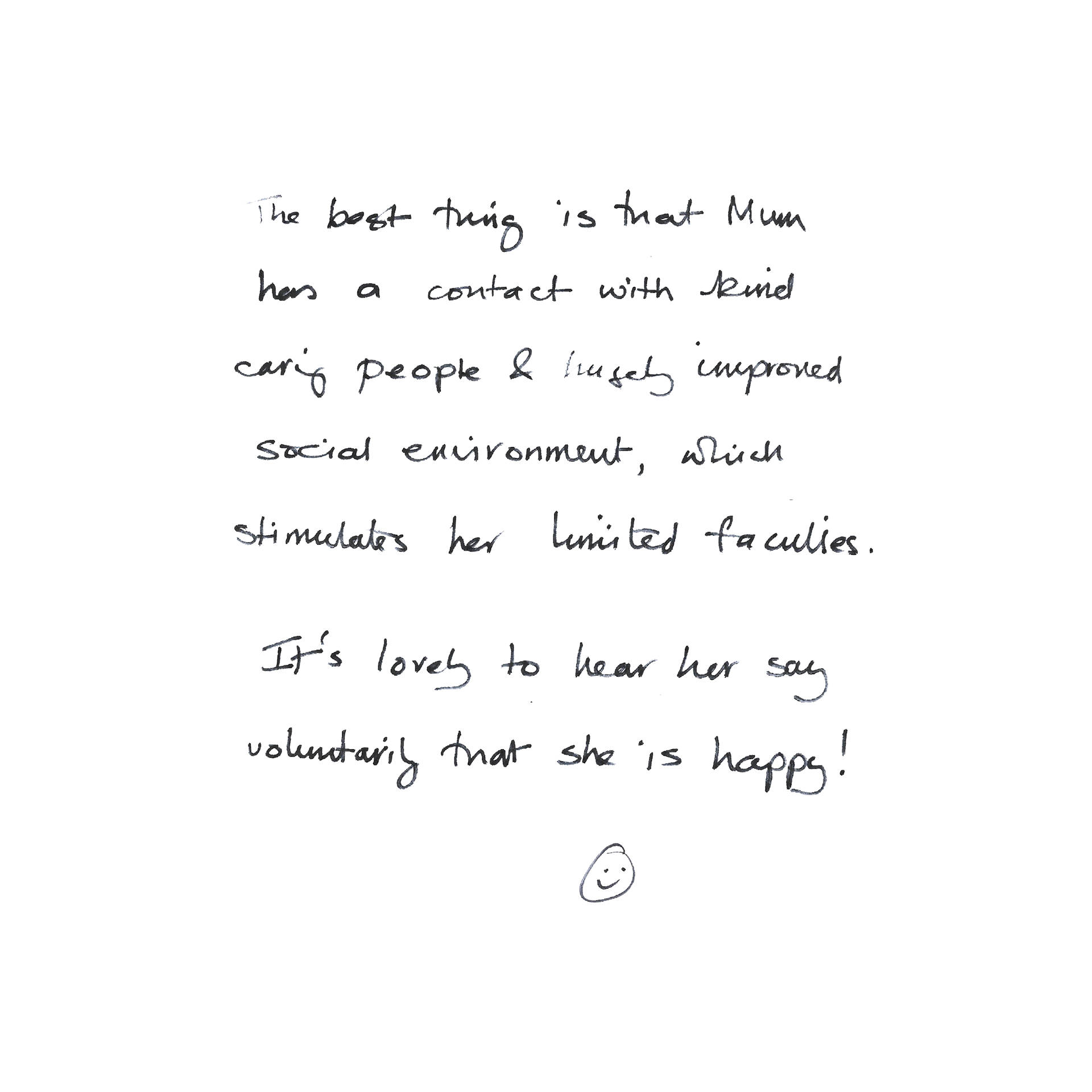
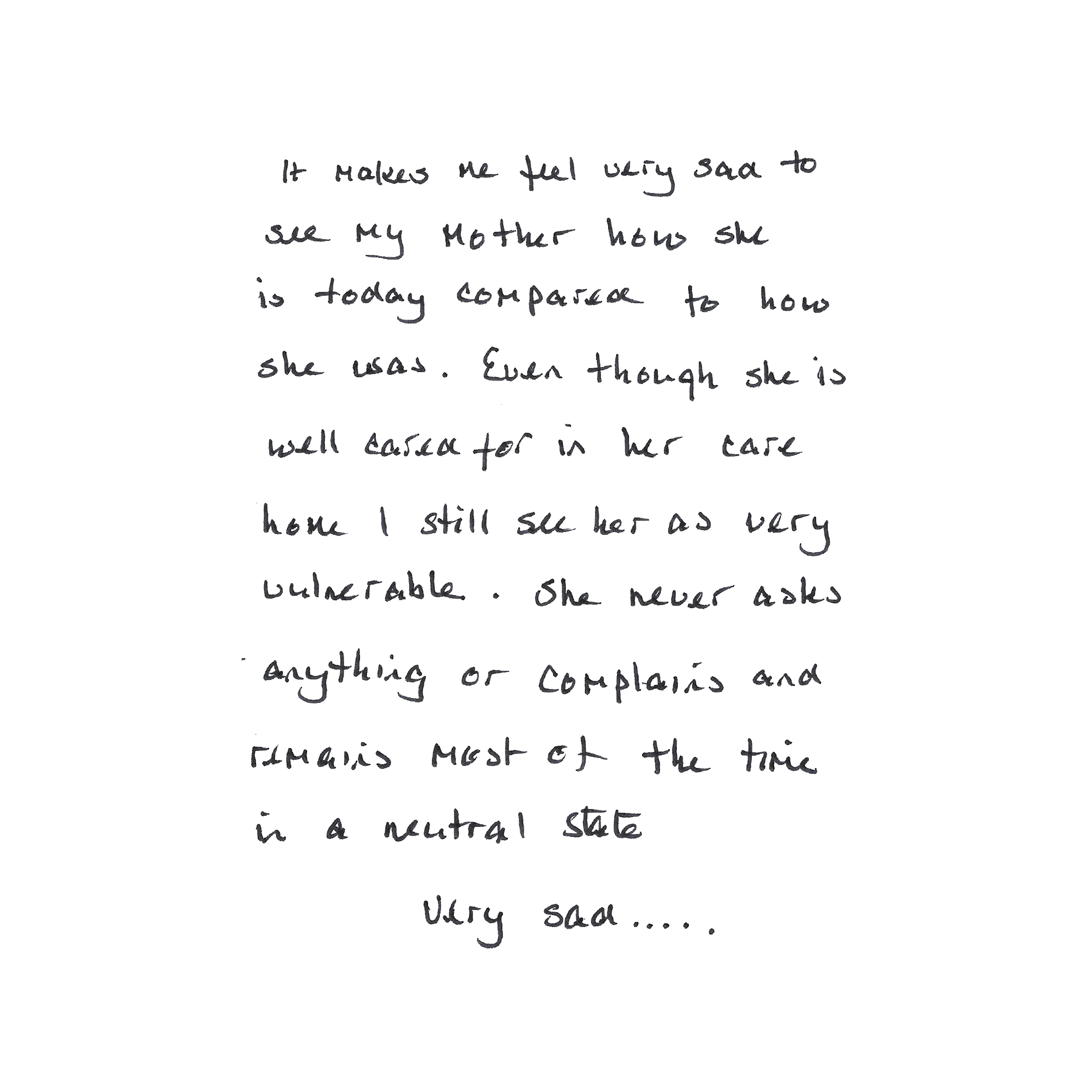
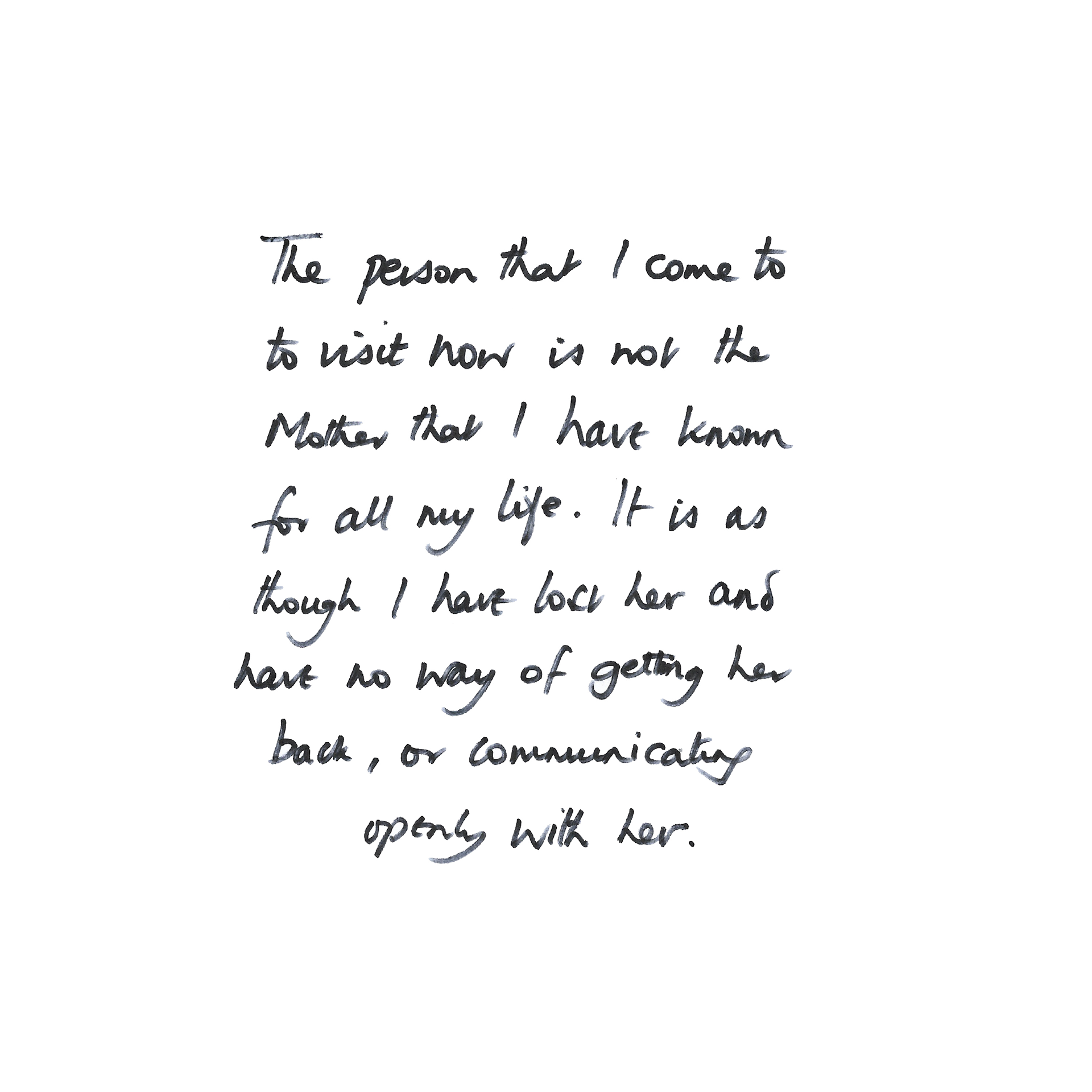
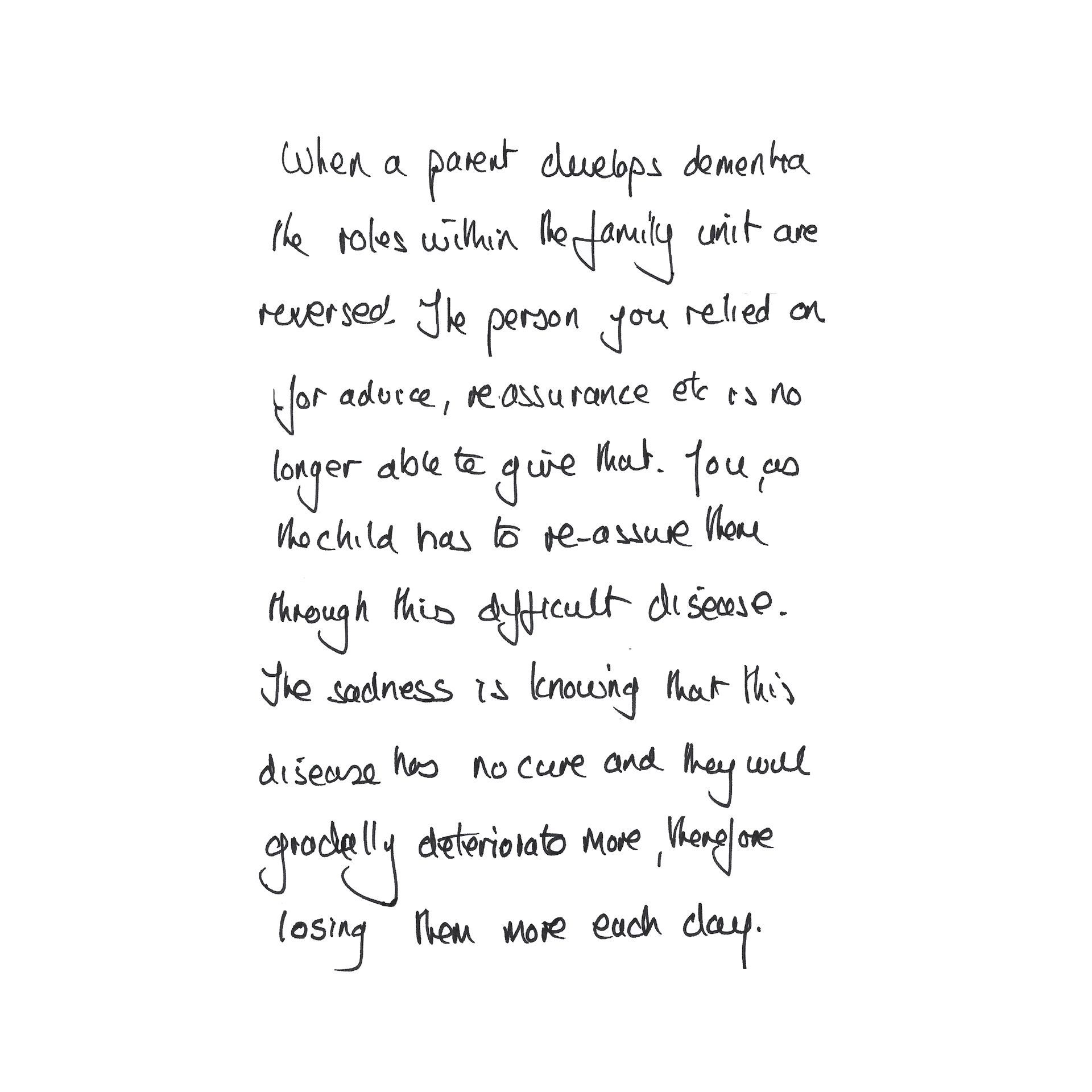
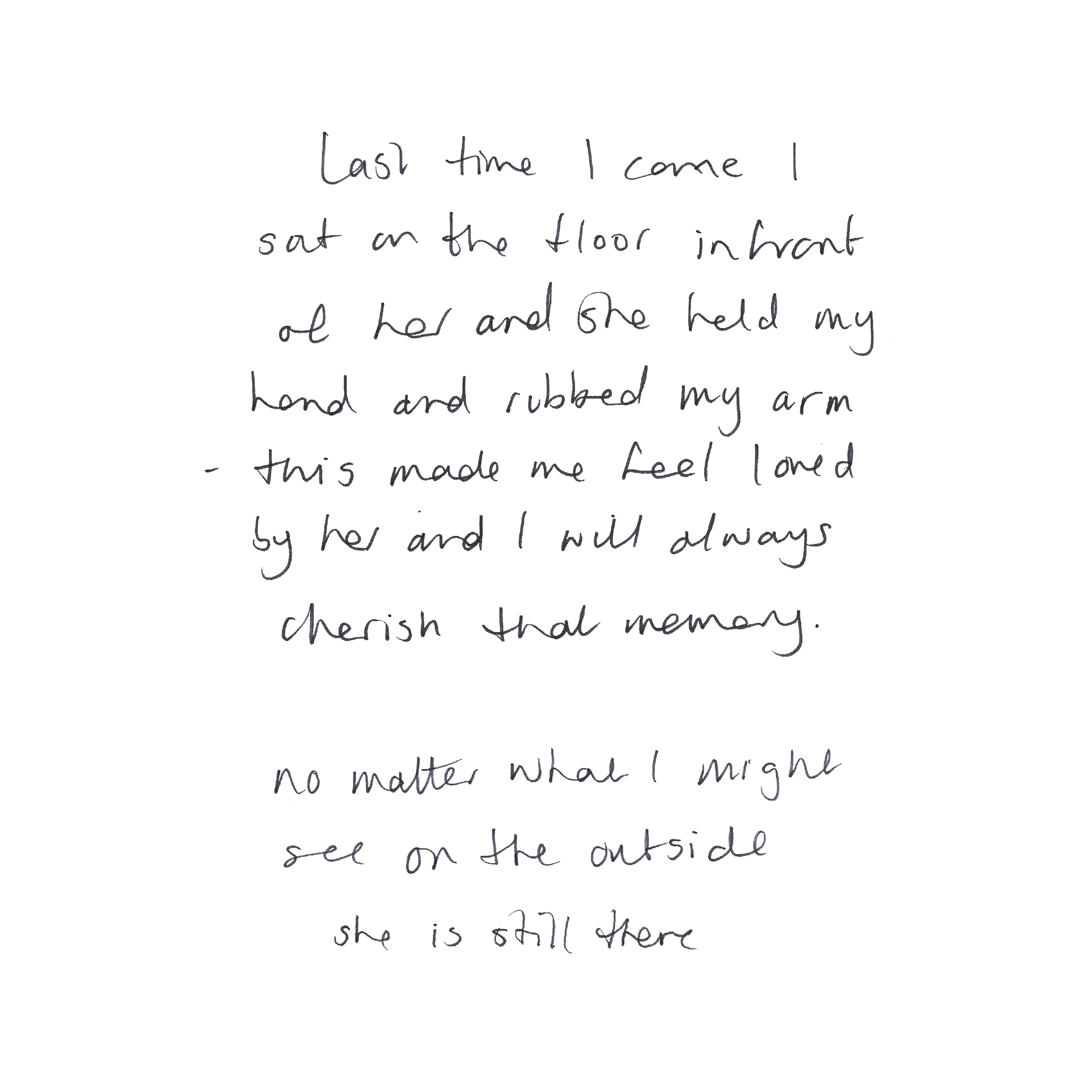
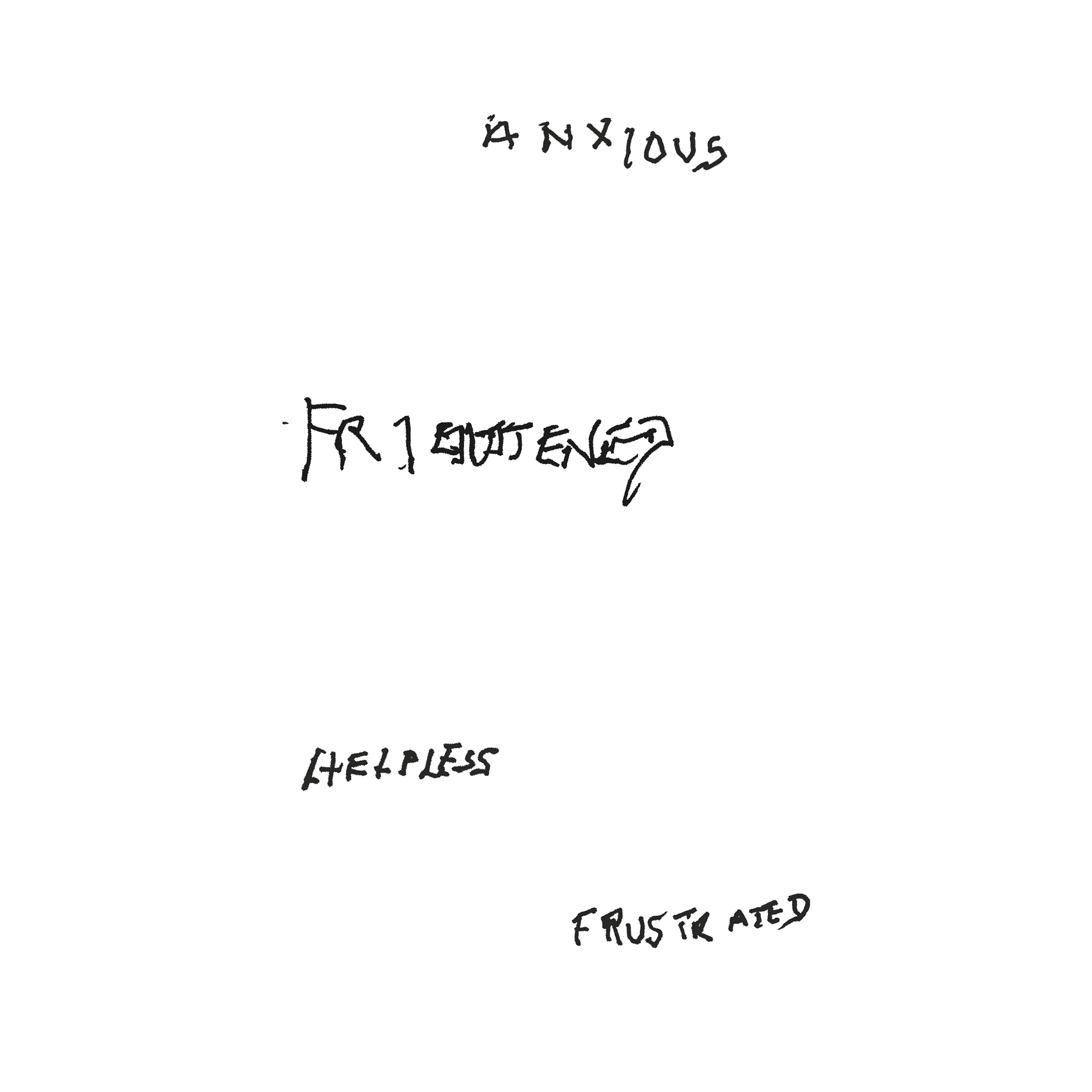
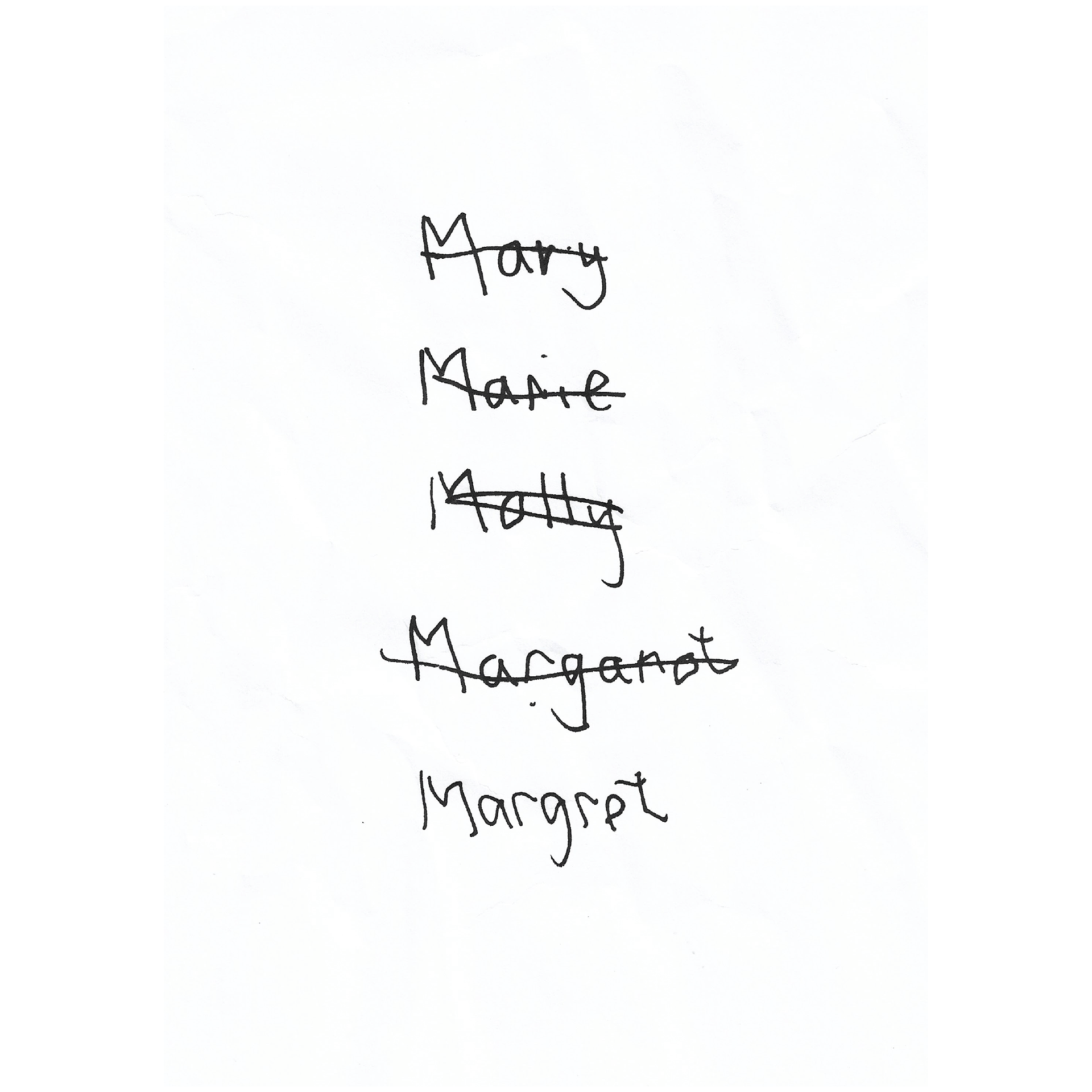

(above) A selection of handwritten extracts
Photography
Photography has been used as a tool to assist the role of typography, adding further context and emotion to the narrative. My main focus was to capture photographs which eliminated portraiture, as I did not want the images to entitle a name nor hold any identity. I wanted the imagery to resonate with individuals, therefore the removal of a clear individual allowed for own interpretations. The expression of loss and old age can be easily identified through the narrative of the images, with the focus on helplessness and the feelings often accompanied by elderly inactivity’s; as they require care and support from other sources. Chairlifts, zimmer frames, walking sticks, commodes, emergency buttons are all metaphors of old-age, but also this idea of lost. The loss of capability, functionality and loss of independence can be seen peppered throughout his household.
The images are centred around the themes of vulnerability and fragility and were taken in both the dementia-specialist care homes visited and elderly friends and relatives homes, who have been effected by dementia.
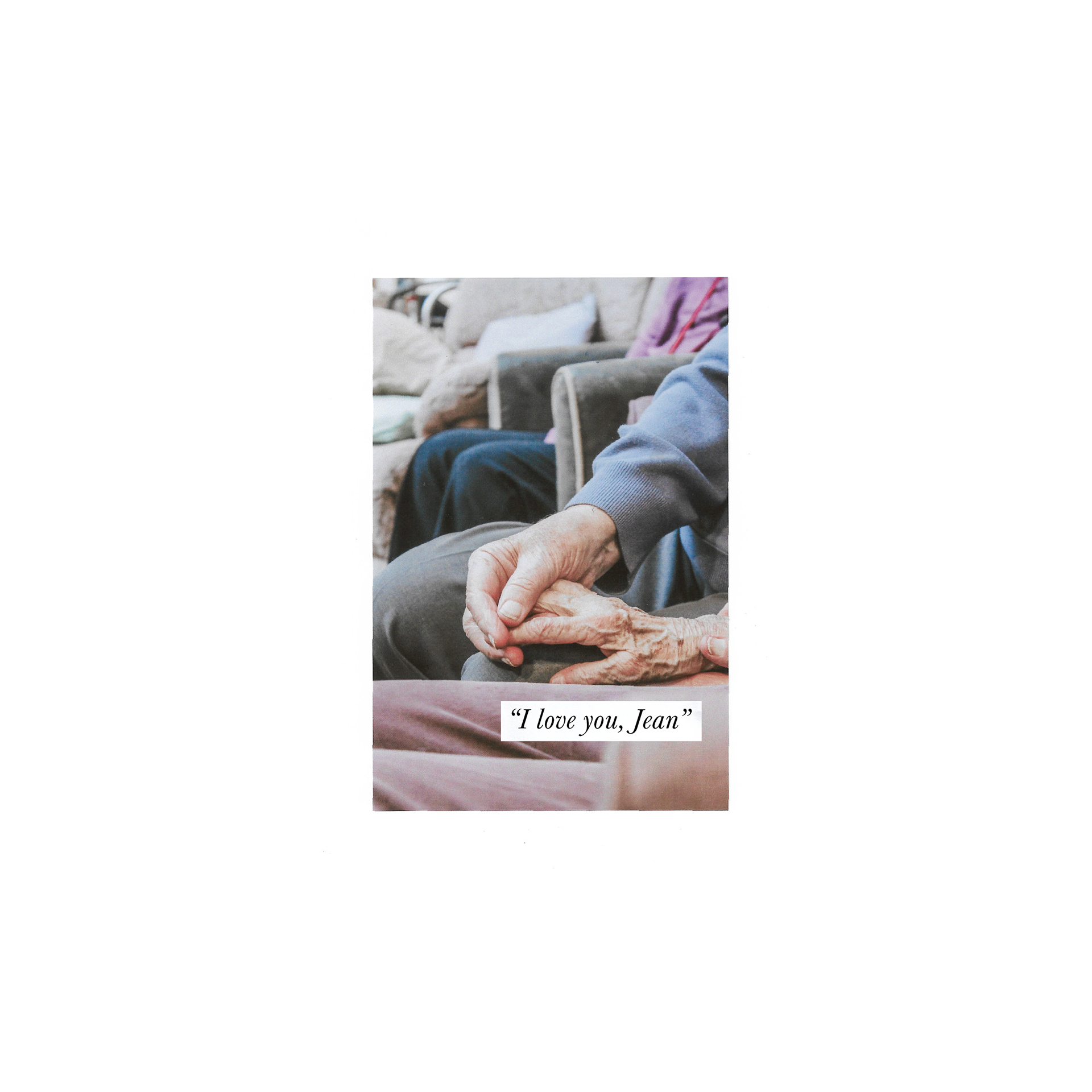
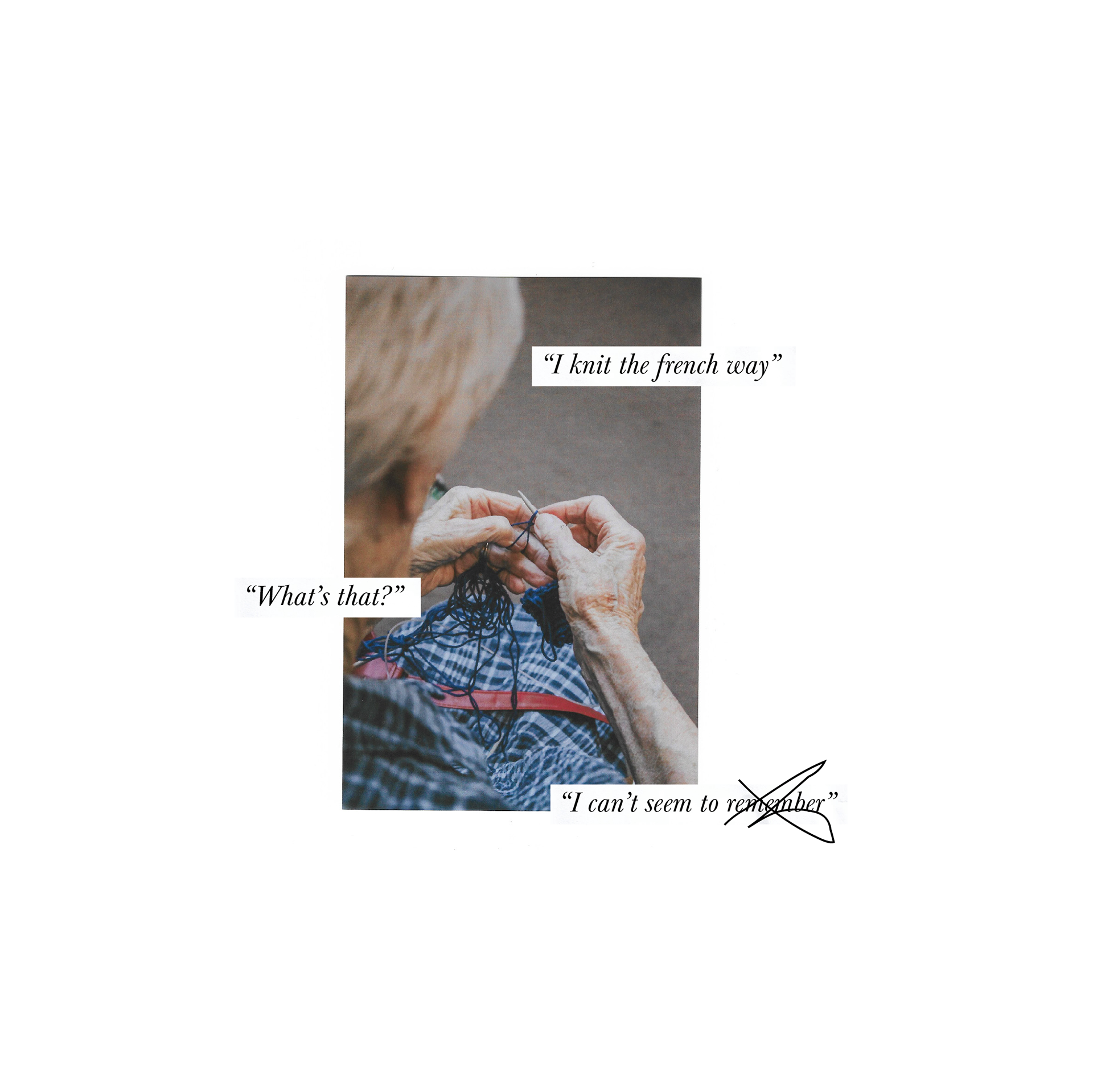

(above) A selection of photographs combined with type experiments
Typefaces
Baskerville
The main typeface used entirely throughout the publication is Baskerville. Baskerville portrays a sense of elegancy, tradition and delicacy. It holds a fragile and vulnerable form, linking well with the topic of dementia and the characteristics of those affected. It is a subject matter which needs to be addressed gently with empathy. It is soft flowing and links to the art of storytelling.
GT Sectra
With the use of the contrasting typeface GT Sectra, scattered throughout, it highlights the two sides of dementia. It has been used to express the different emotions partnered with the stories I have gathered, ones being rather emotive, compared to others being more suited to a stern, stronger typeface. It is empowering and direct, well suited for stories which are tough. GT Sectra appears particularly fragmented, mirroring the effects of dementia.
Colour Scheme
I did not want the publication to remain black and white, because dementia is much more complex than that. It is neither black, white or clean cut, each person’s journey is different, no one is the same.
The chosen colours allow for a subtle invitation of colour - without being over the top, and losing its sense of fragility and sensitivity. It remains down to earth, genuine and raw, linking with its contents. The colours are natural, soft and support the subject matter. The input of black, white and grey is still prominent as it is a subject which is emotionally heavy, but the dispersed use of colour, slightly raises the mood.
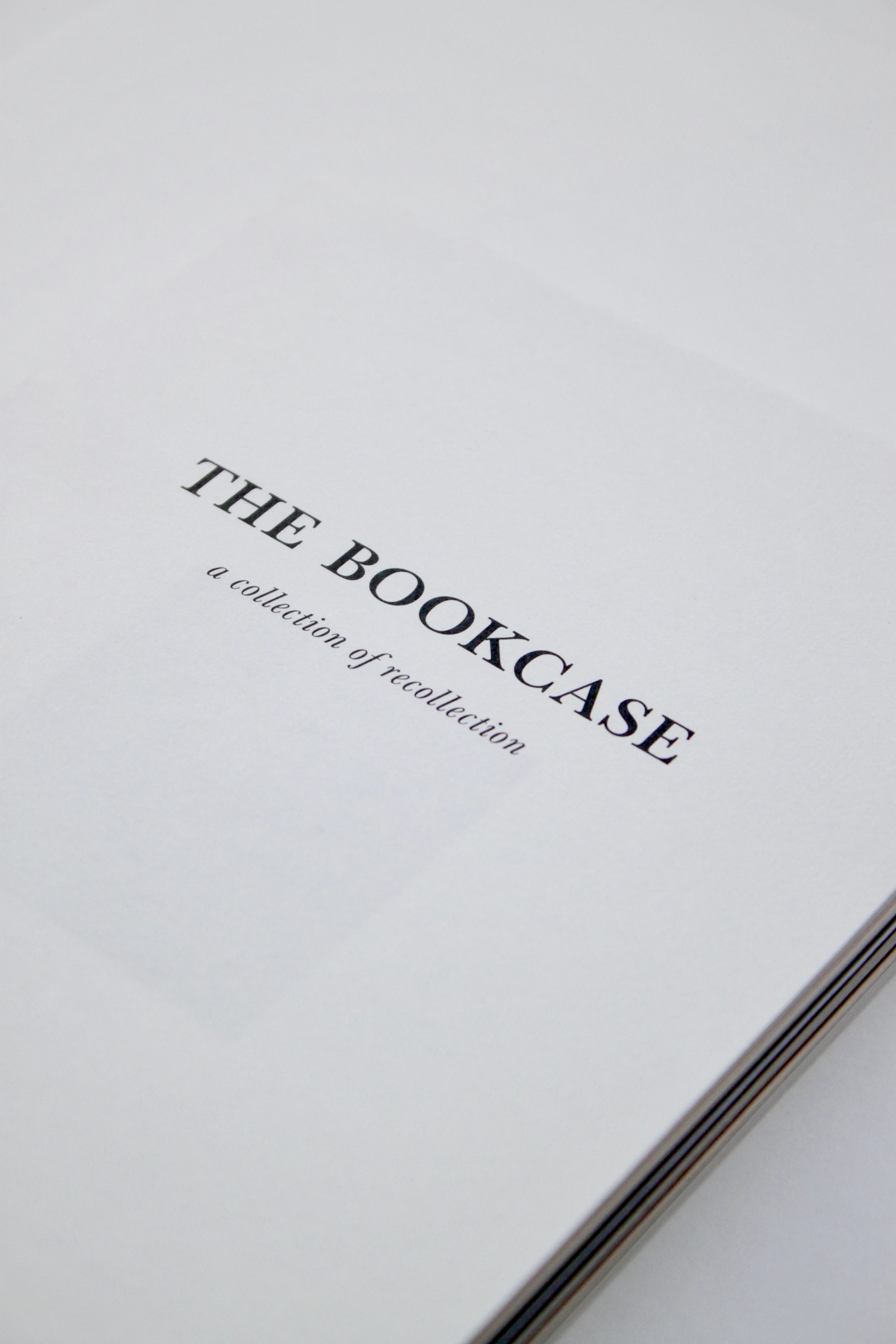
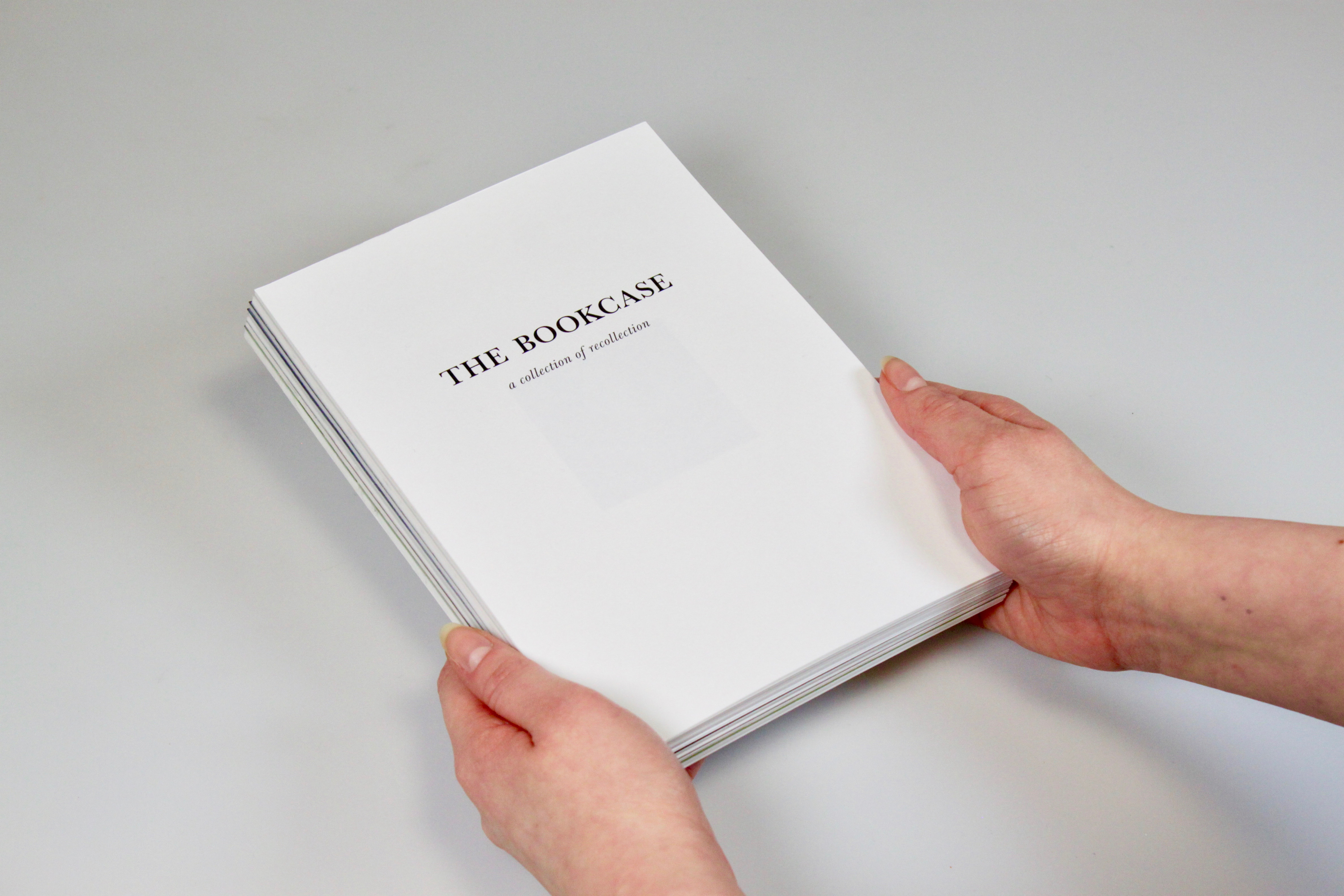
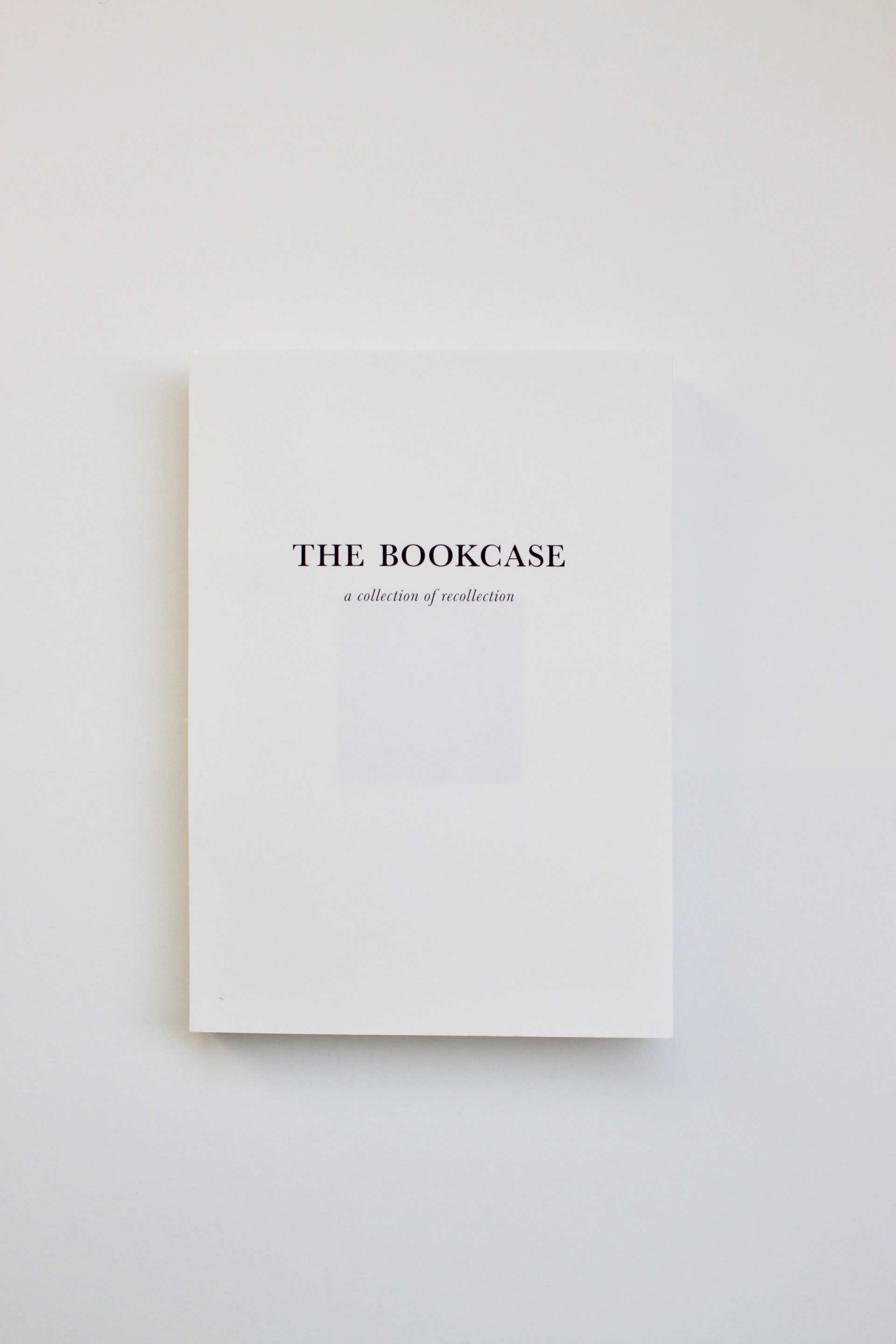
The cover design remains simplistic, allowing the content to hold the importance. New cover in the making...
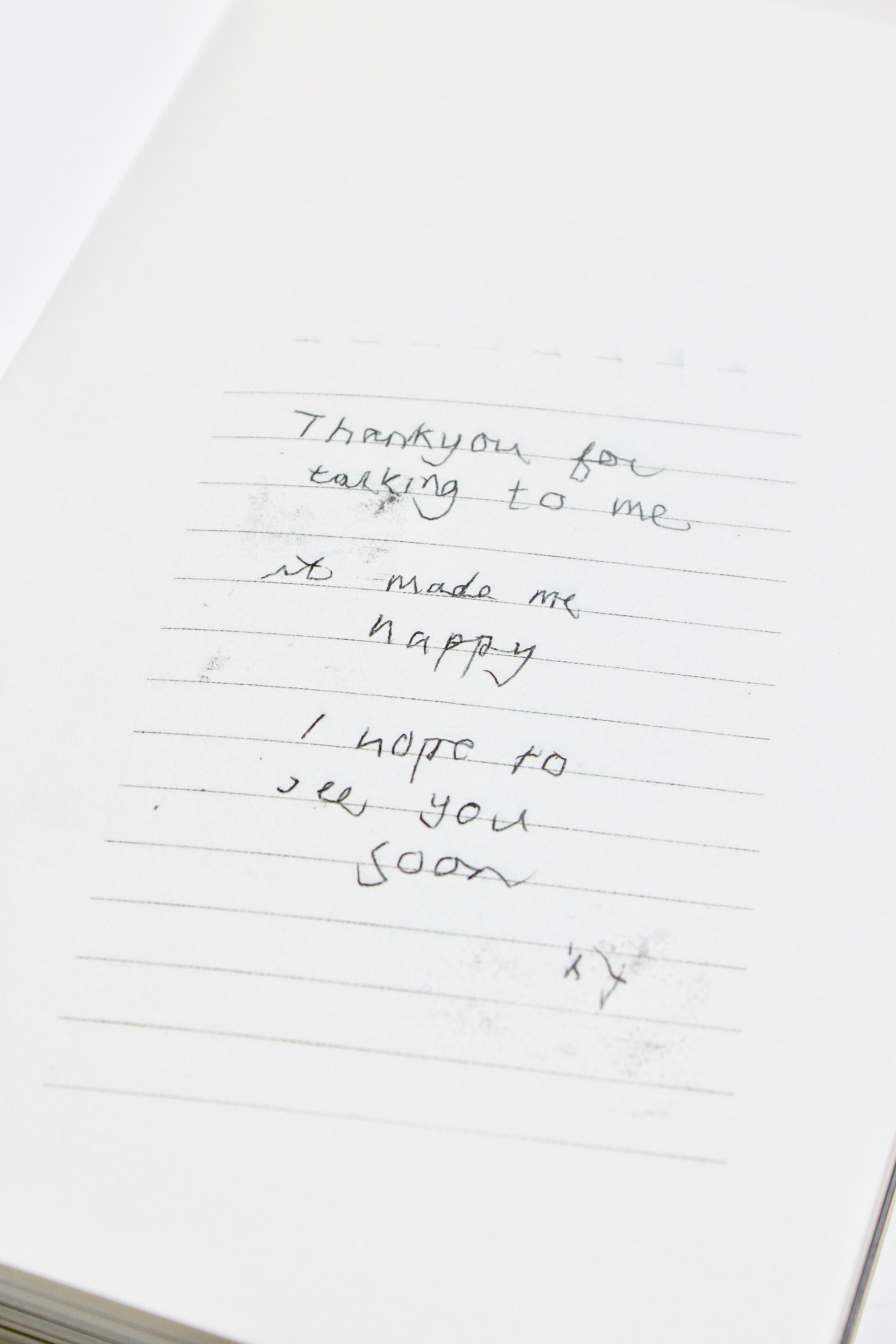
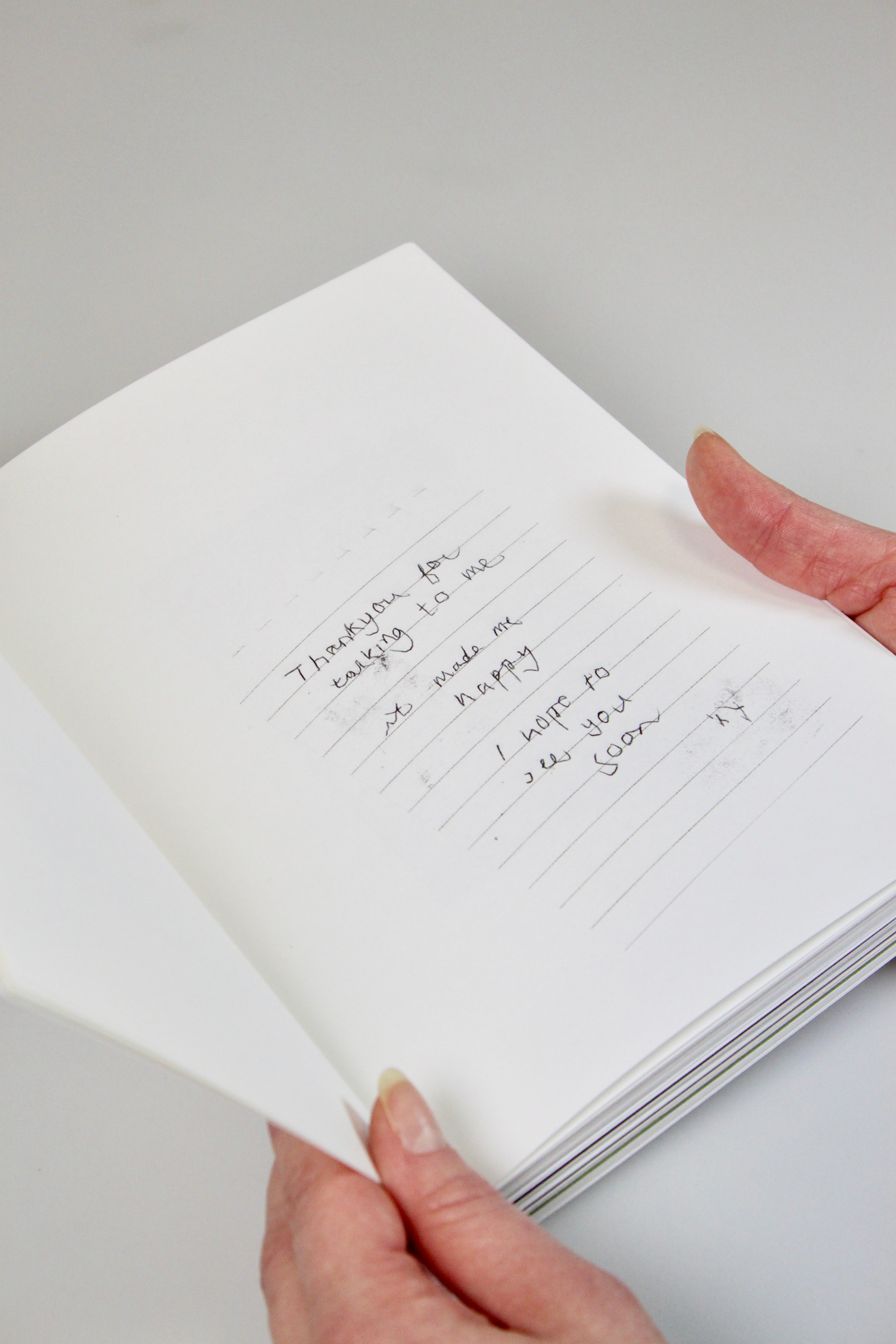
During the creation of this publication, I spent time speaking to a lady at the local beach, she suffered with dementia and after our wonderful conversation, she gave me this note. Details alike can be seen peppered throughout the publication, adding a sense of reality, allowing the reader to connect to the narrative.
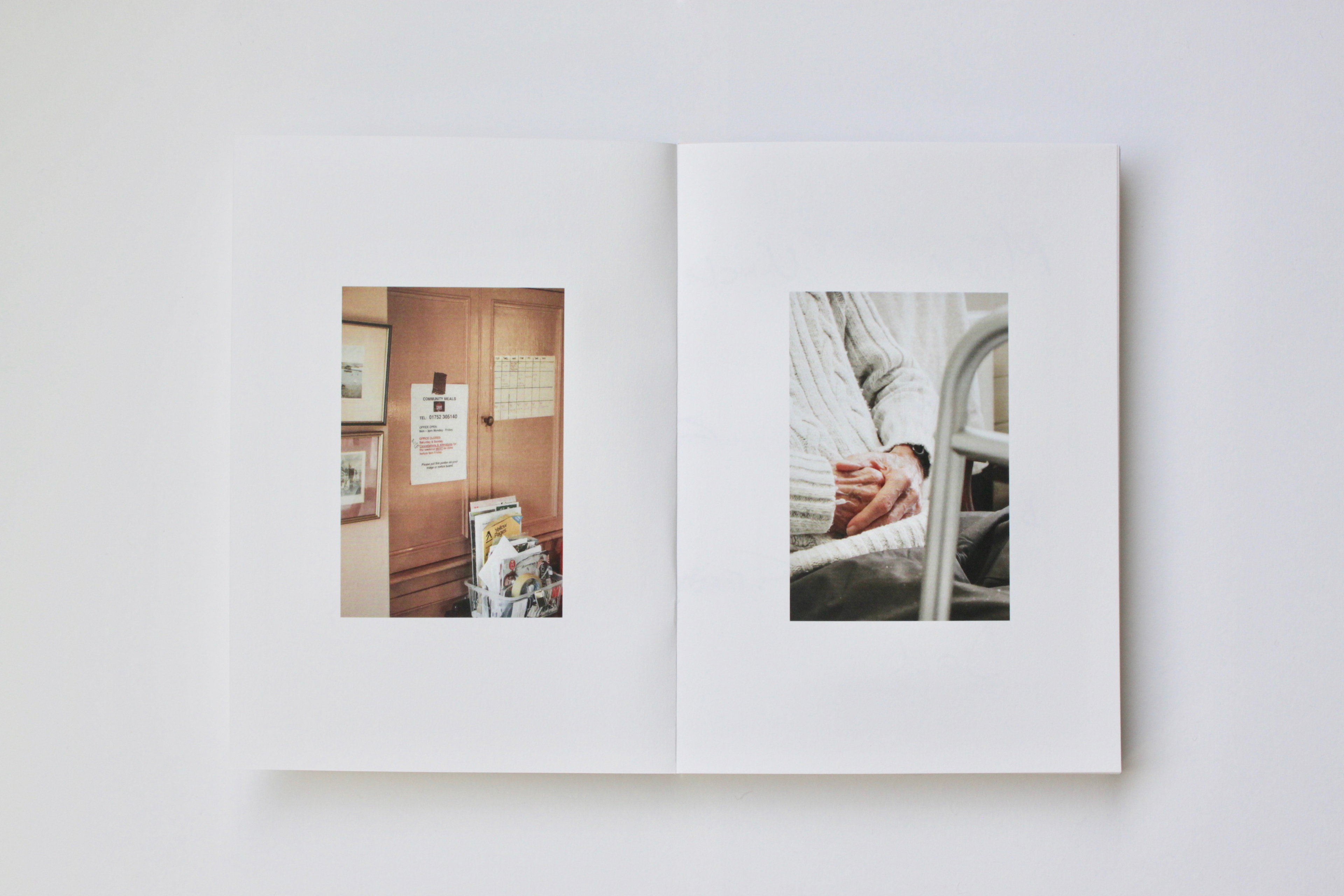
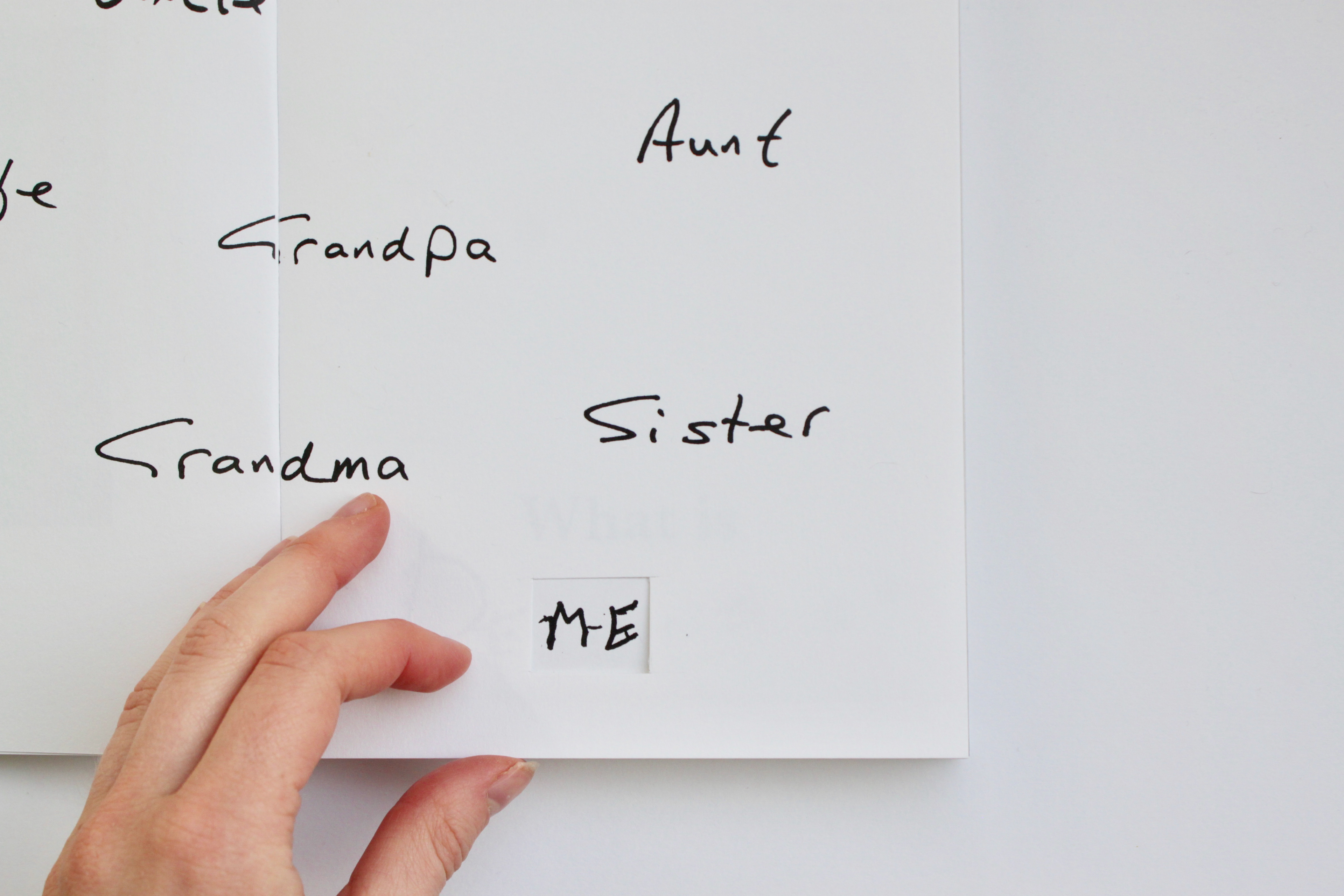
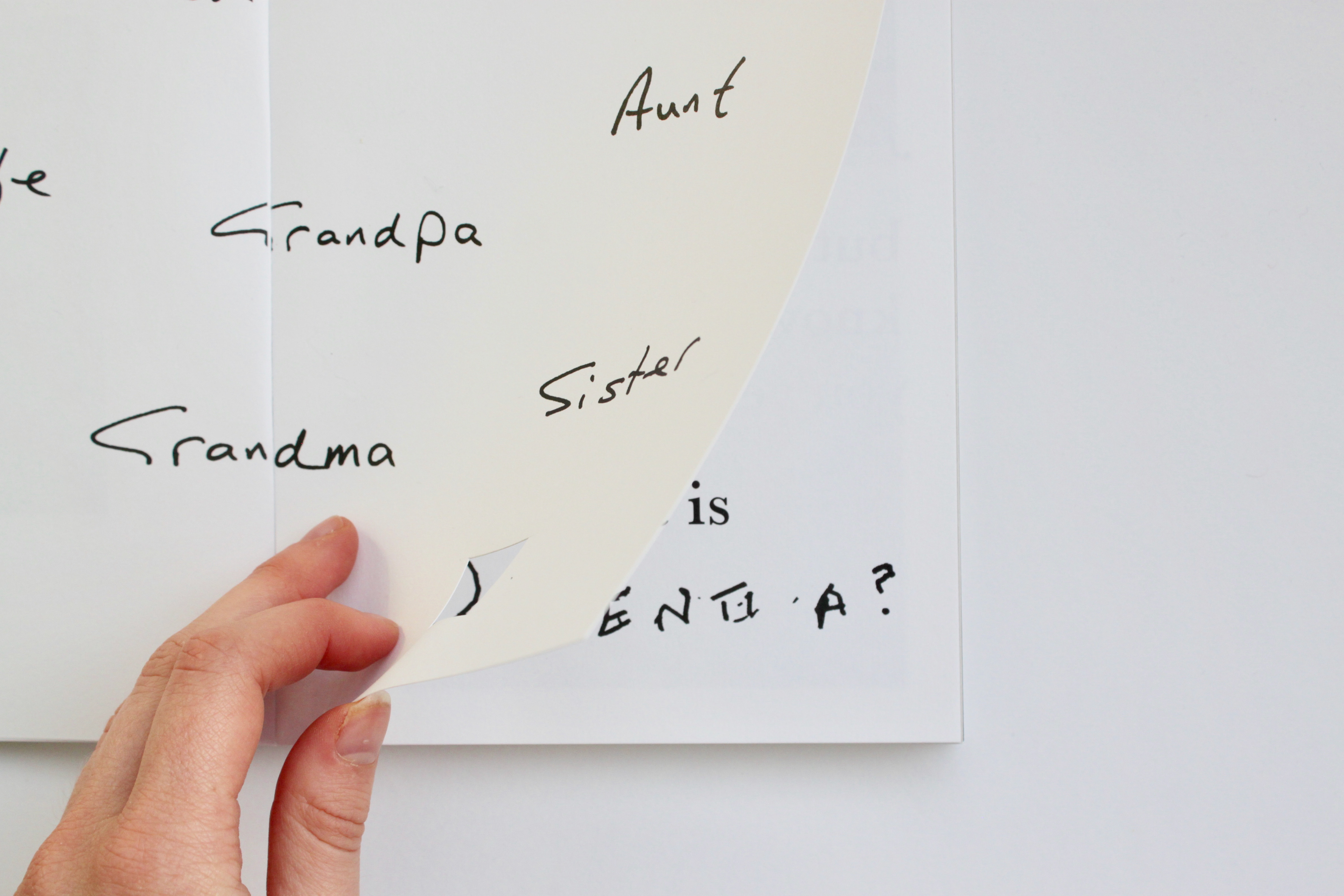
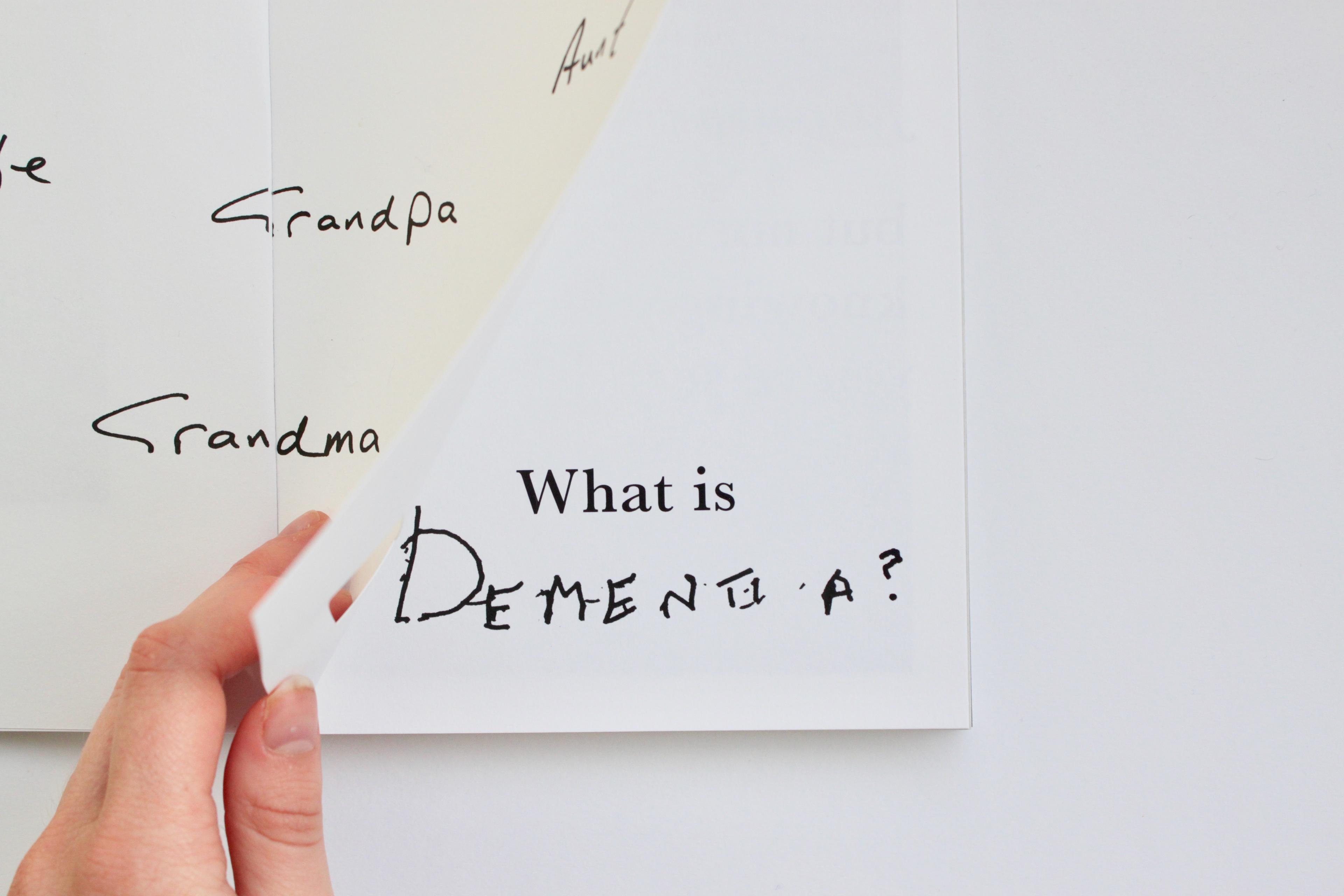
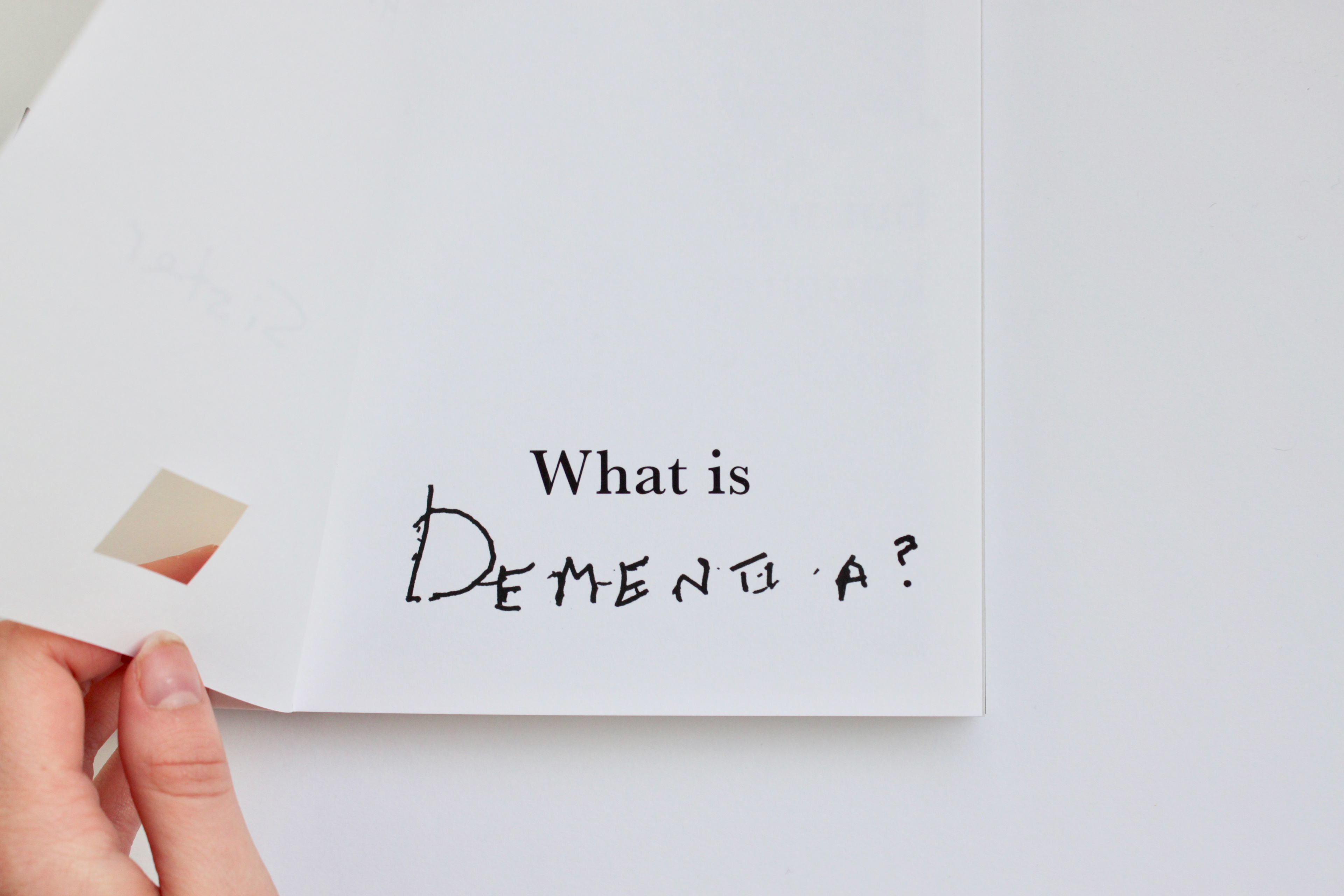
On the one side, the reader is presented with a range of words handwritten by the individuals involved within the publication. The words depict the relationship they have with the person suffering with dementia (e.g their Mother, Grandma, Sister...) which has resulted in the sharing of their stories, memories and quotes. As the reader consequently turns the page, what was once read as 'Me', in a noticeably shakier handwriting, transforms into spelling 'Dementia', due to the hole in the page, representing the direct effects it holds on the individual who first-handedly experiences it.
This adds a very heart-wrenching approach to the publication, setting the mood and immersing the reader within the true and honest effects that dementia has and the overall raw perspective this book holds.
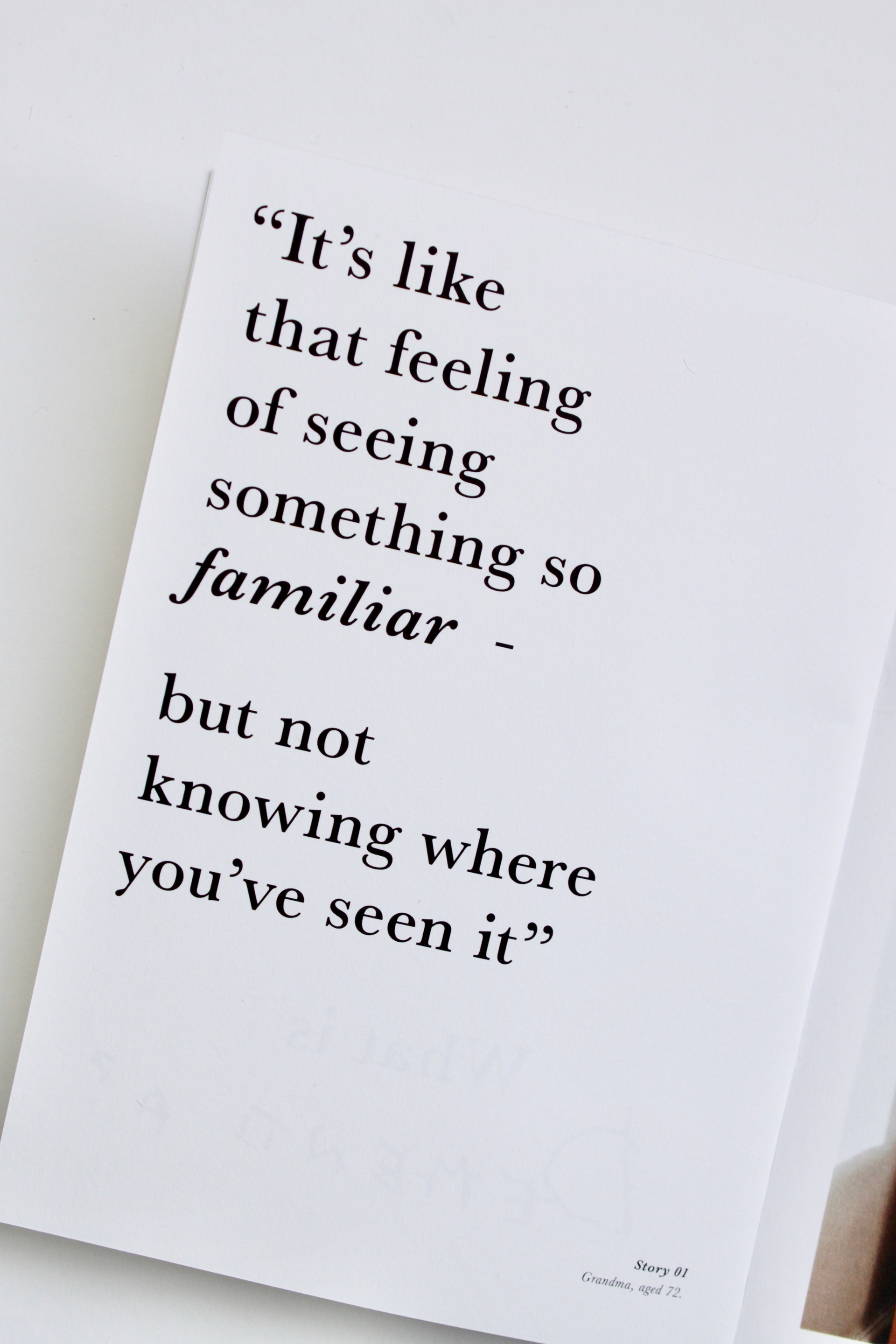

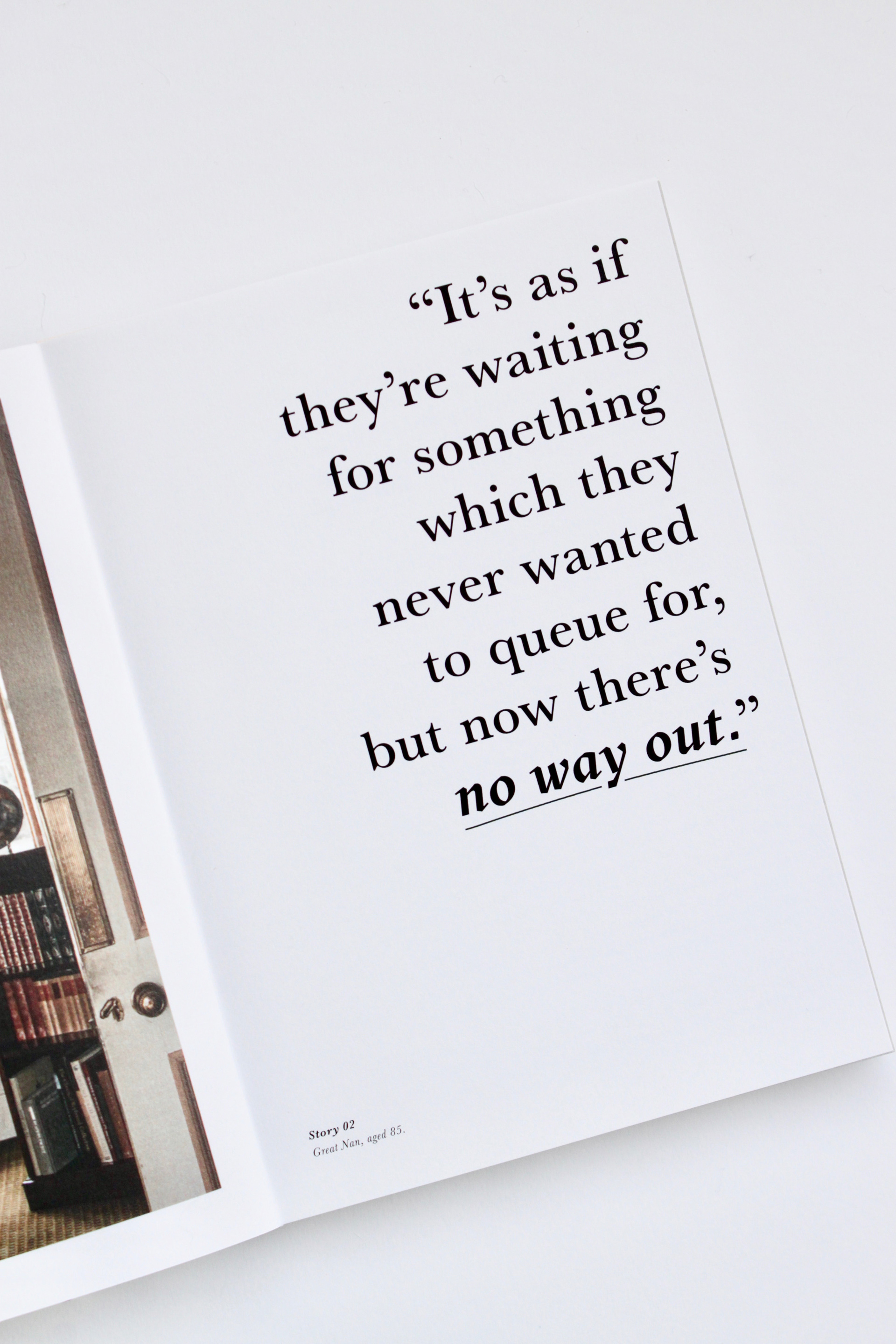
For every story referenced within the publication, a caption is positioned alongside, indicating the relationship and age of the individual. By adding this information the reader is able to identify a person behind the story, making the experience more personable and possibly triggering an emotional connection, deepening the impact of the book. The captions remain anonymous for confidentiality and personal reasons, in respect to those stories shared.
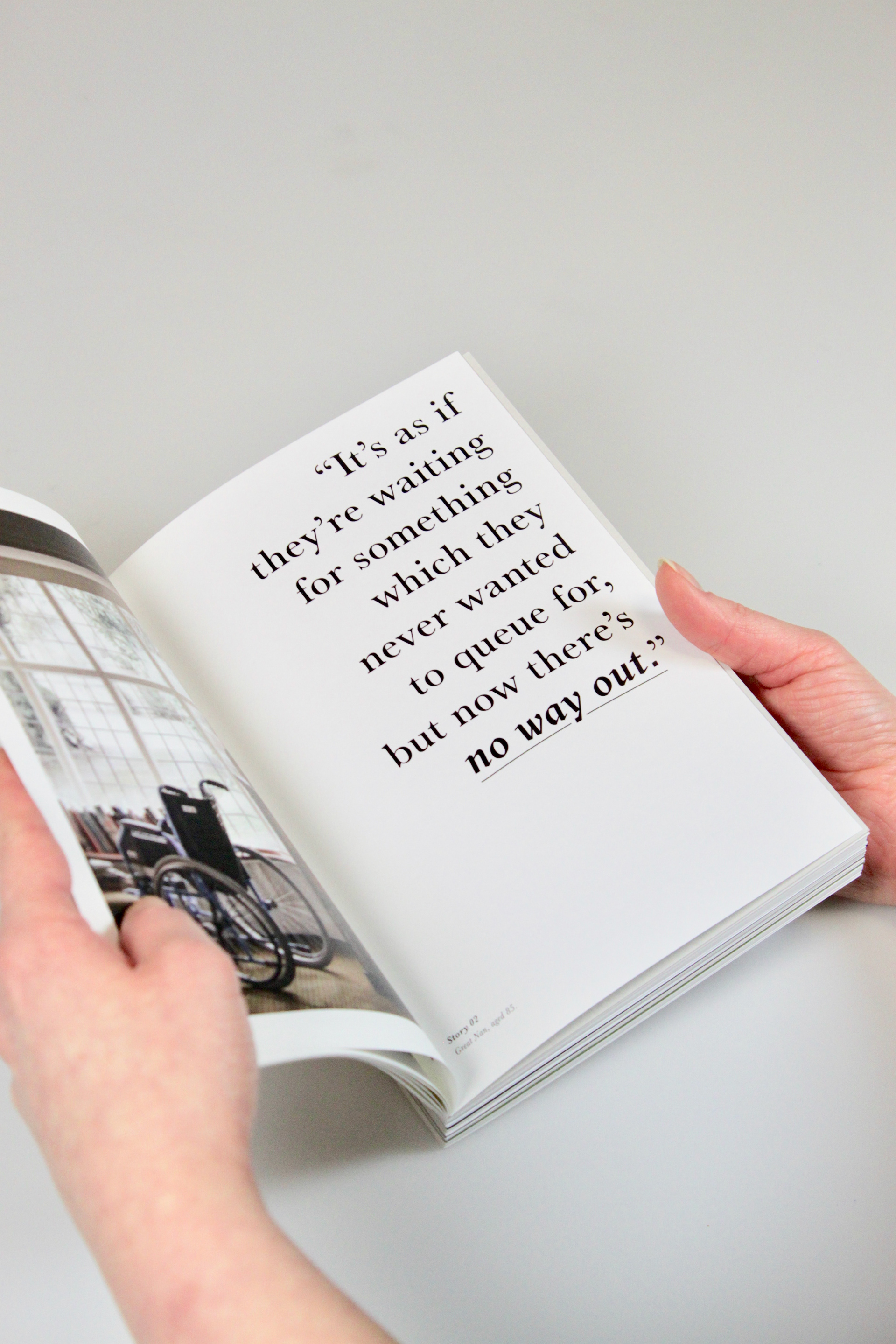
Different typographic experimentations have been used within the book as a tool for exposing the emotions of the stories collected in the most integral way. By altering typographic elements such as tracking, layout and the style of type, it forces words to be isolated and be read in a particular way, connecting the reader to the narrative, understanding the tone of voice and pace of the storyteller.
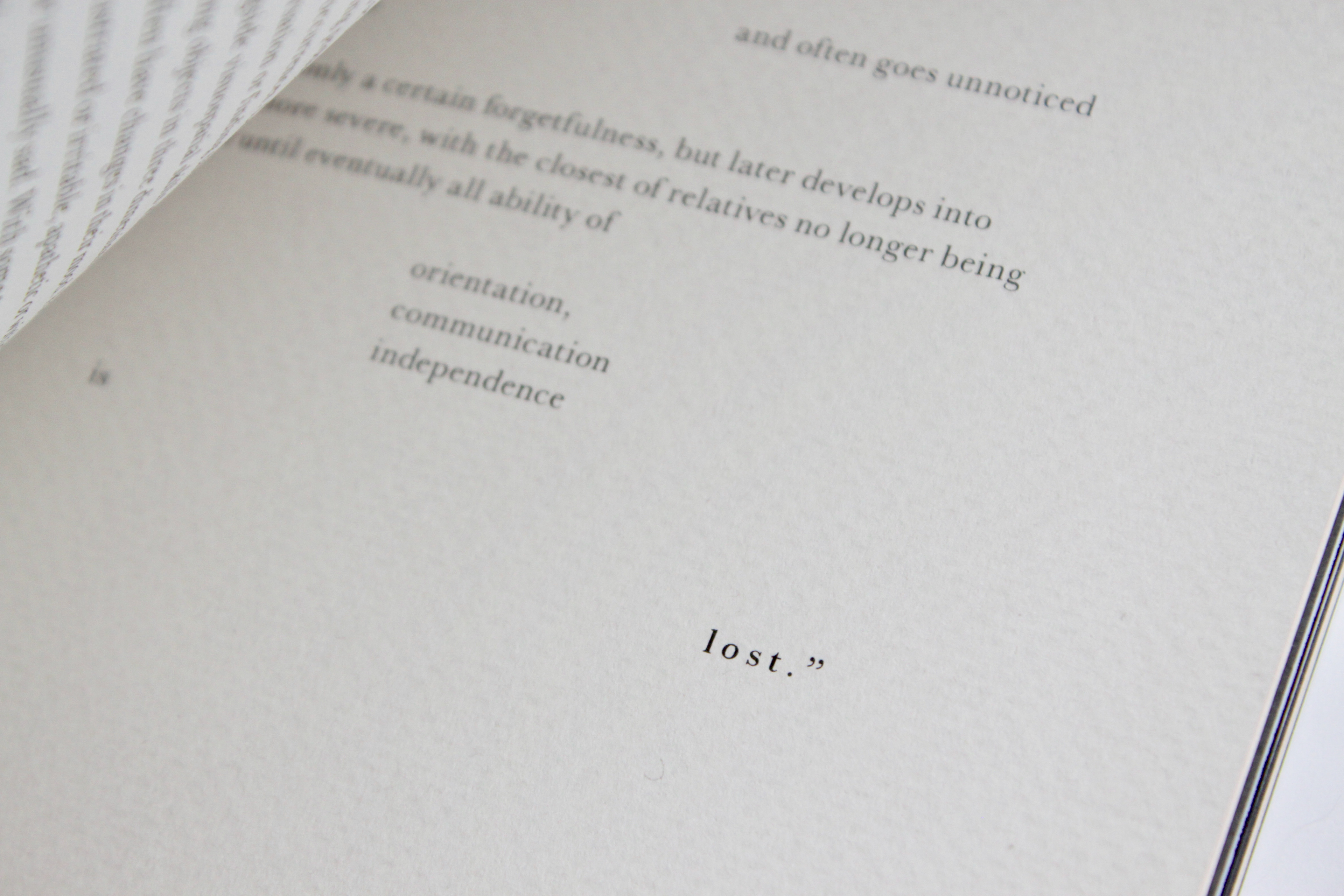
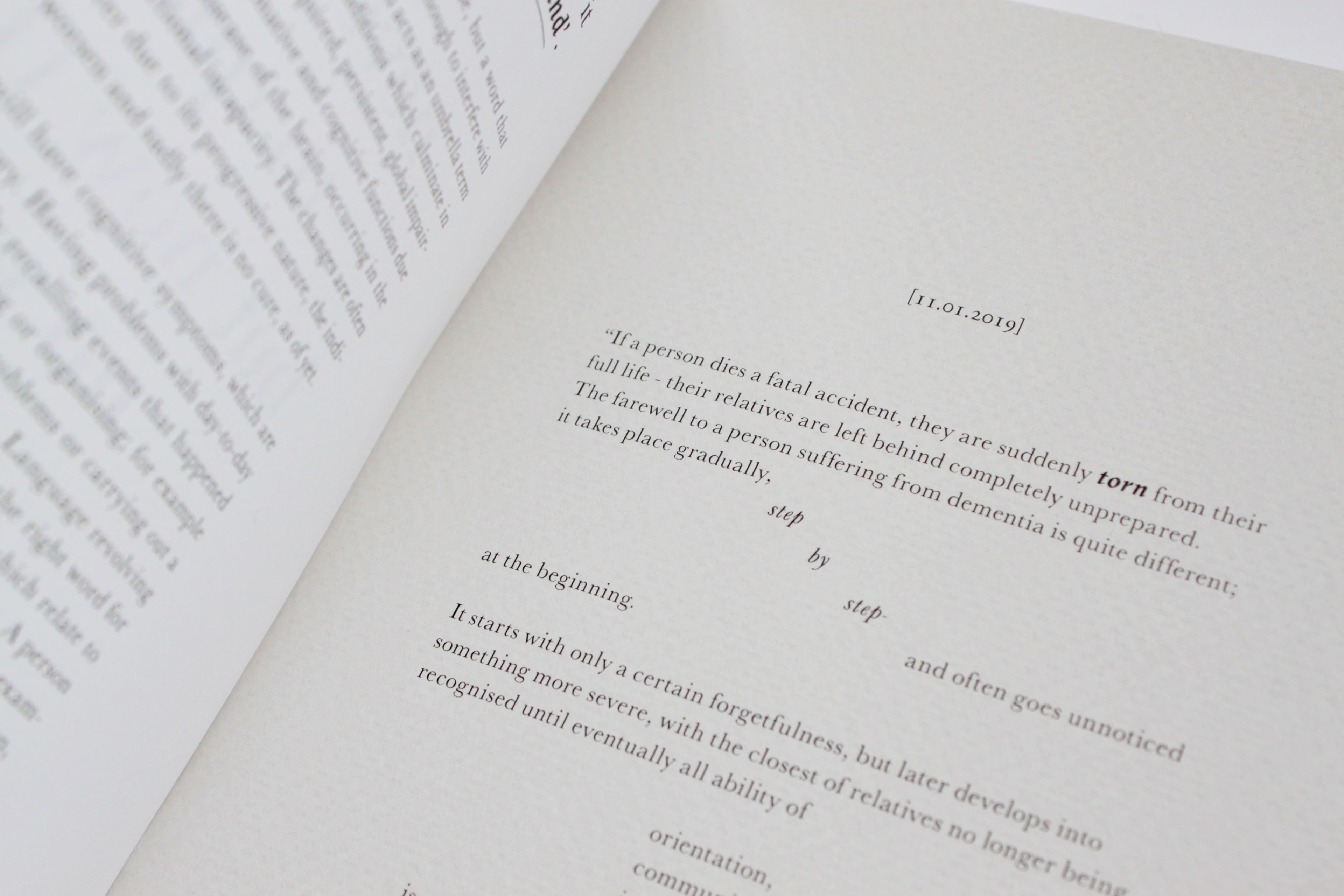
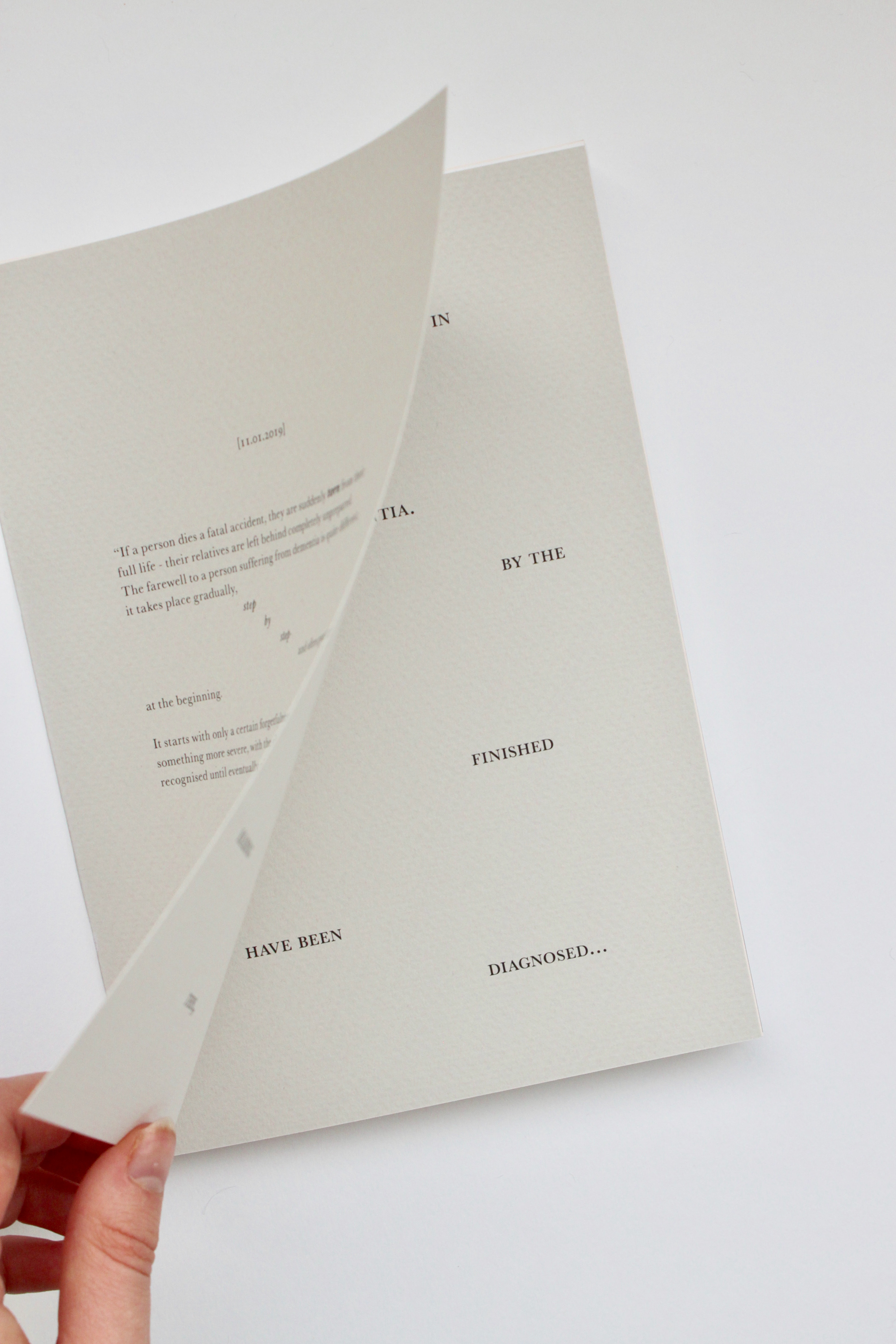
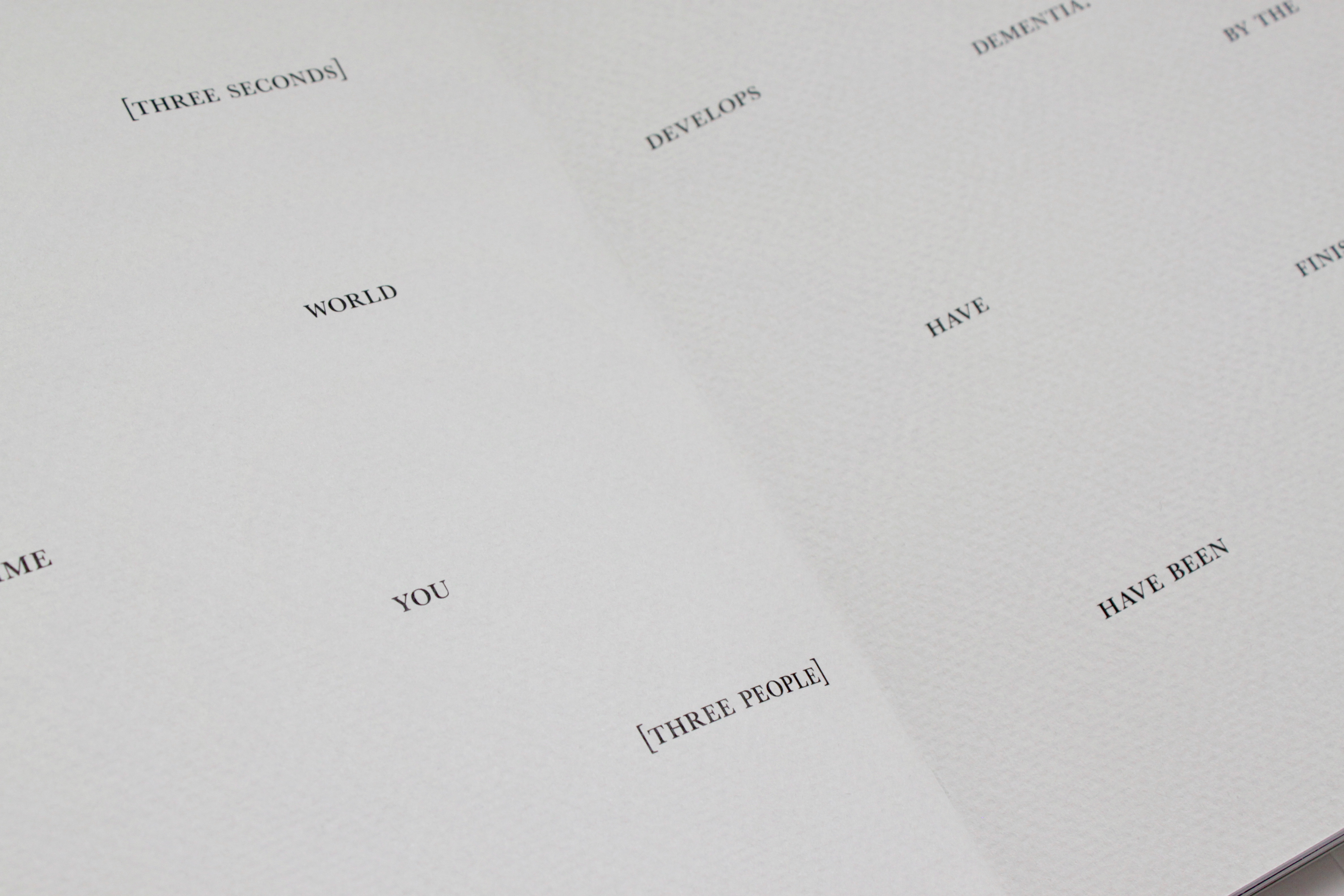
-
"Every three seconds someone in the world develops dementia, by the time you have finished reading this, three people have been diagnosed"
Statistic from Alzheimer's Society website
-
Example of a focussed caption, informing the reader of the individual behind the story.
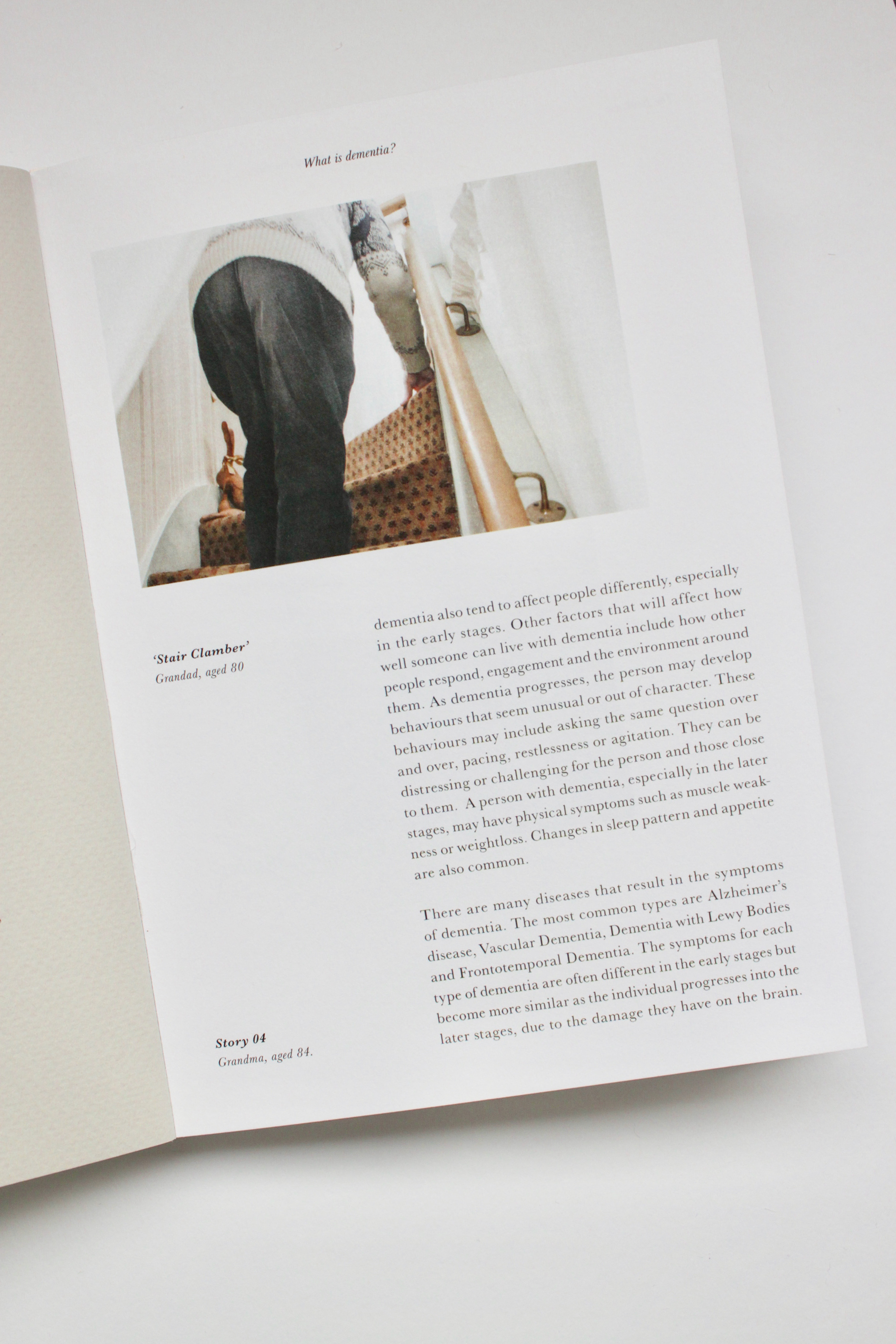
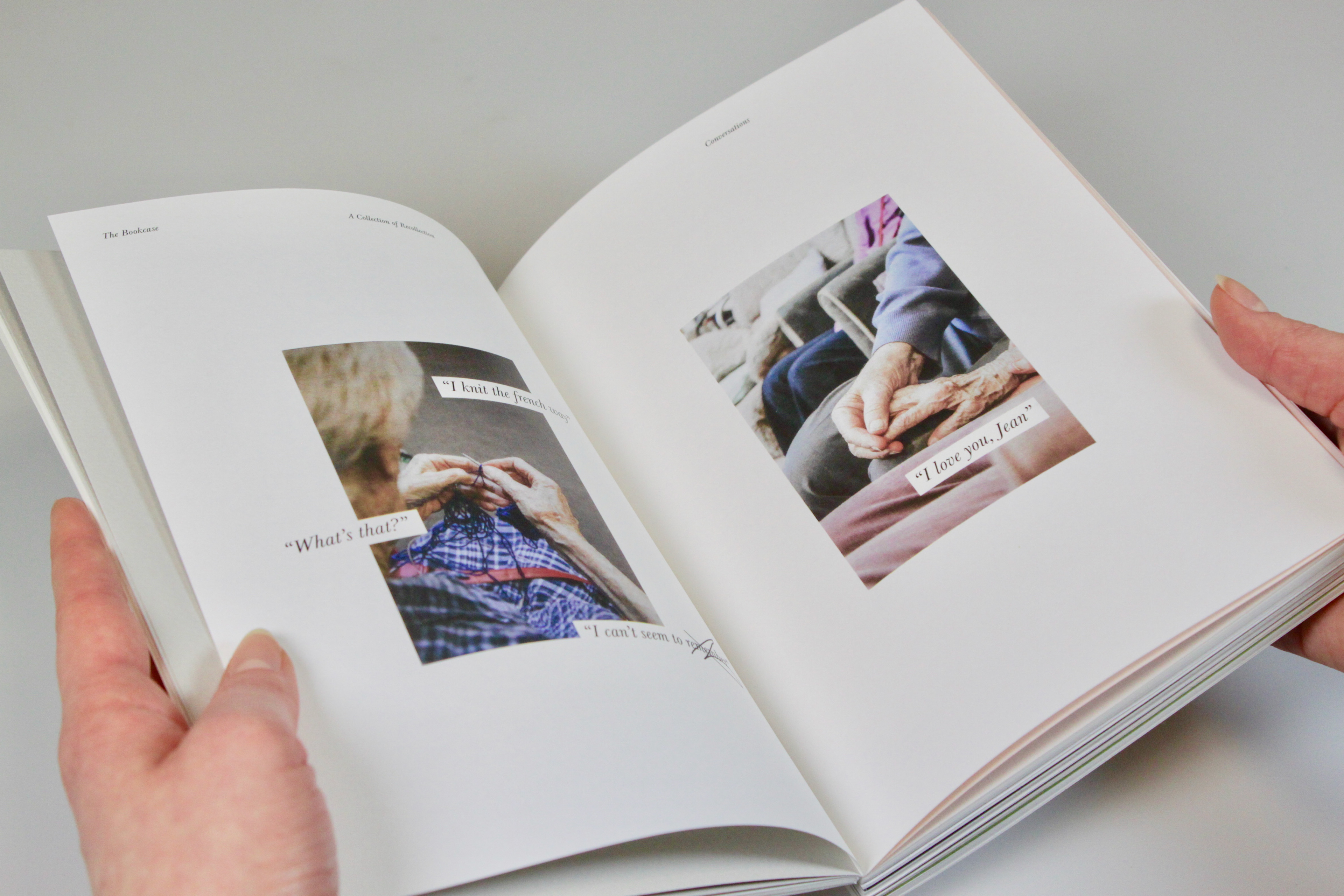
Text and imagery have been combined to create 'conversations collages'. These conversations have been extracted from my visits to care homes, noting my involved and also overheard interactions between loved ones. Text has been layered and arranged over the printed photographs, creating shadows surrounding the image, showcasing a more handmade appearance that represents a scrapbook, a collection of memories and stories.
The 'hands on' approach also reflects the care and support required for those effected by dementia, it gives the publication a more tangible attribute, something to hold and to take care of, rather than it being solely digitalised and too refined.
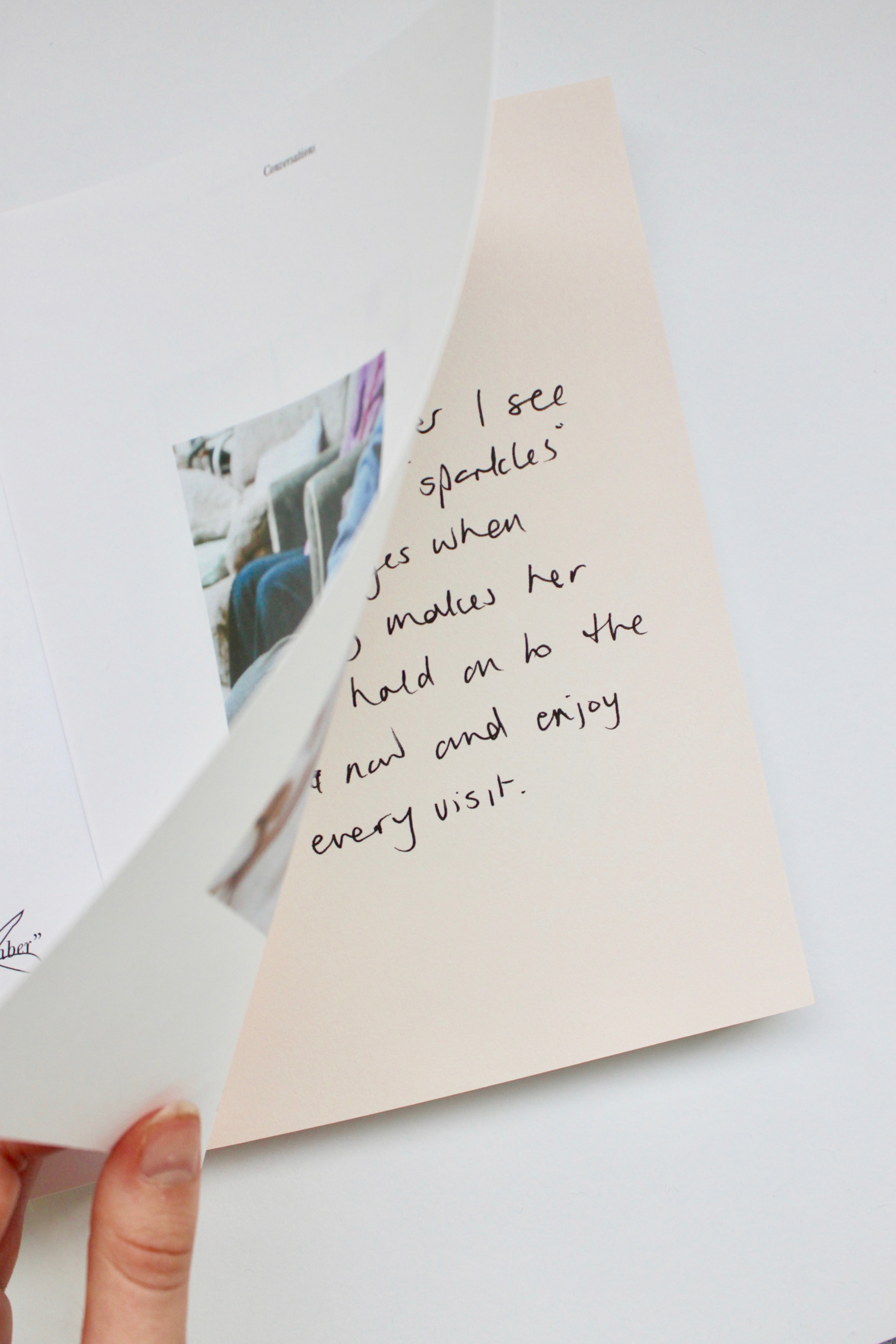
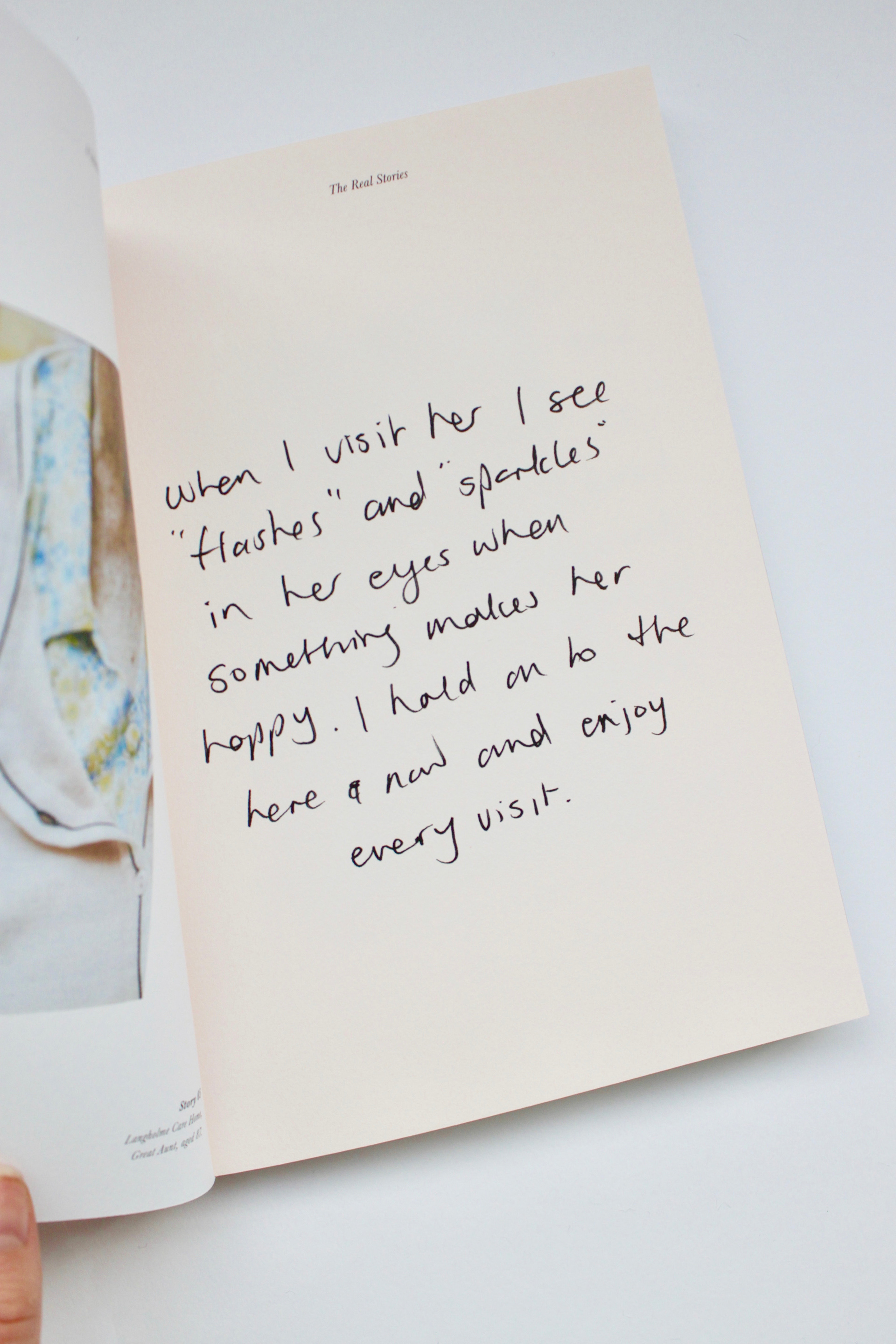
-
"When I visit her I see 'flashes' and 'sparkles' in her eyes when something makes her happy. I hold on to the here & now and enjoy every visit..."
Langholme Care Home, Great Aunt, aged 87
-
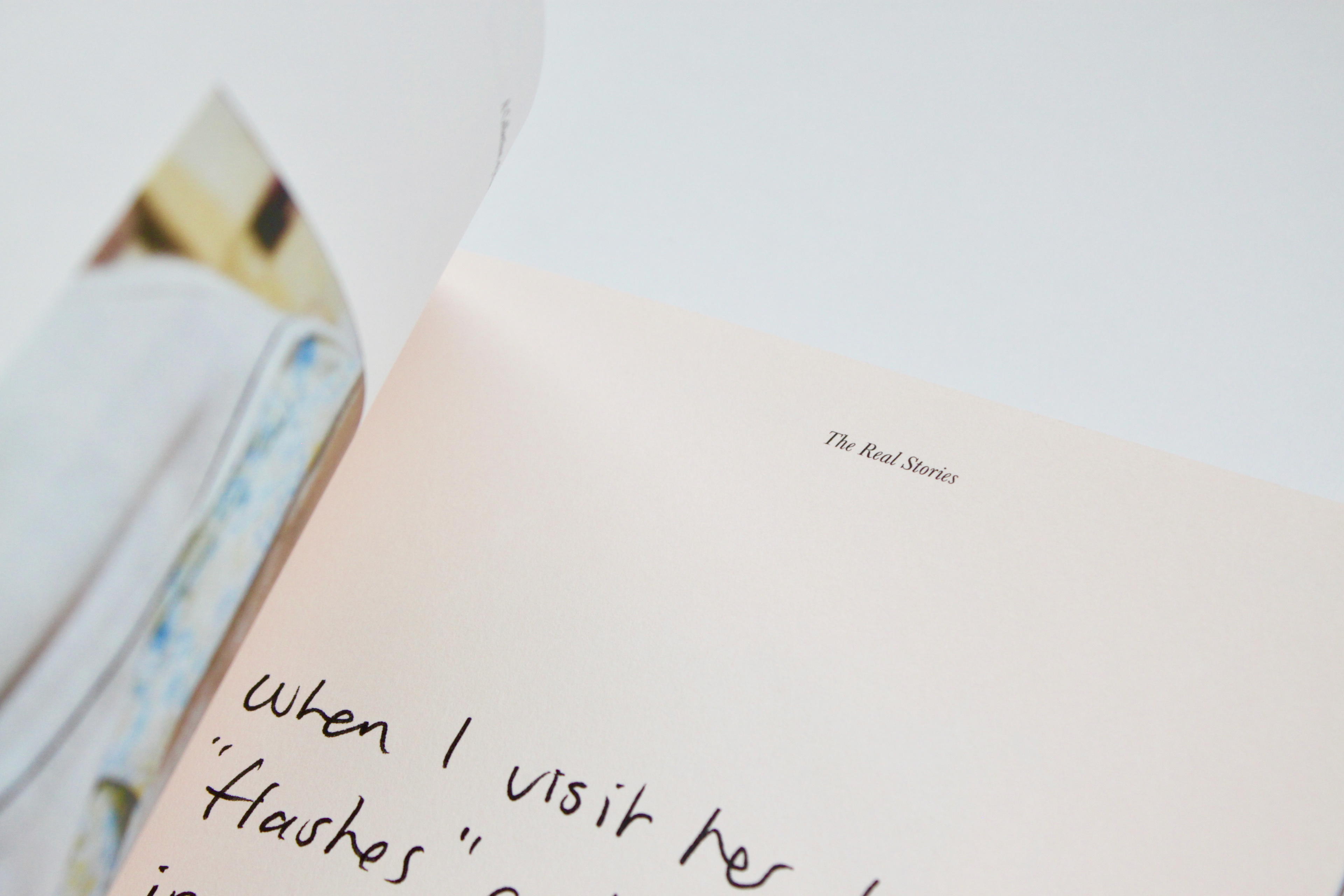
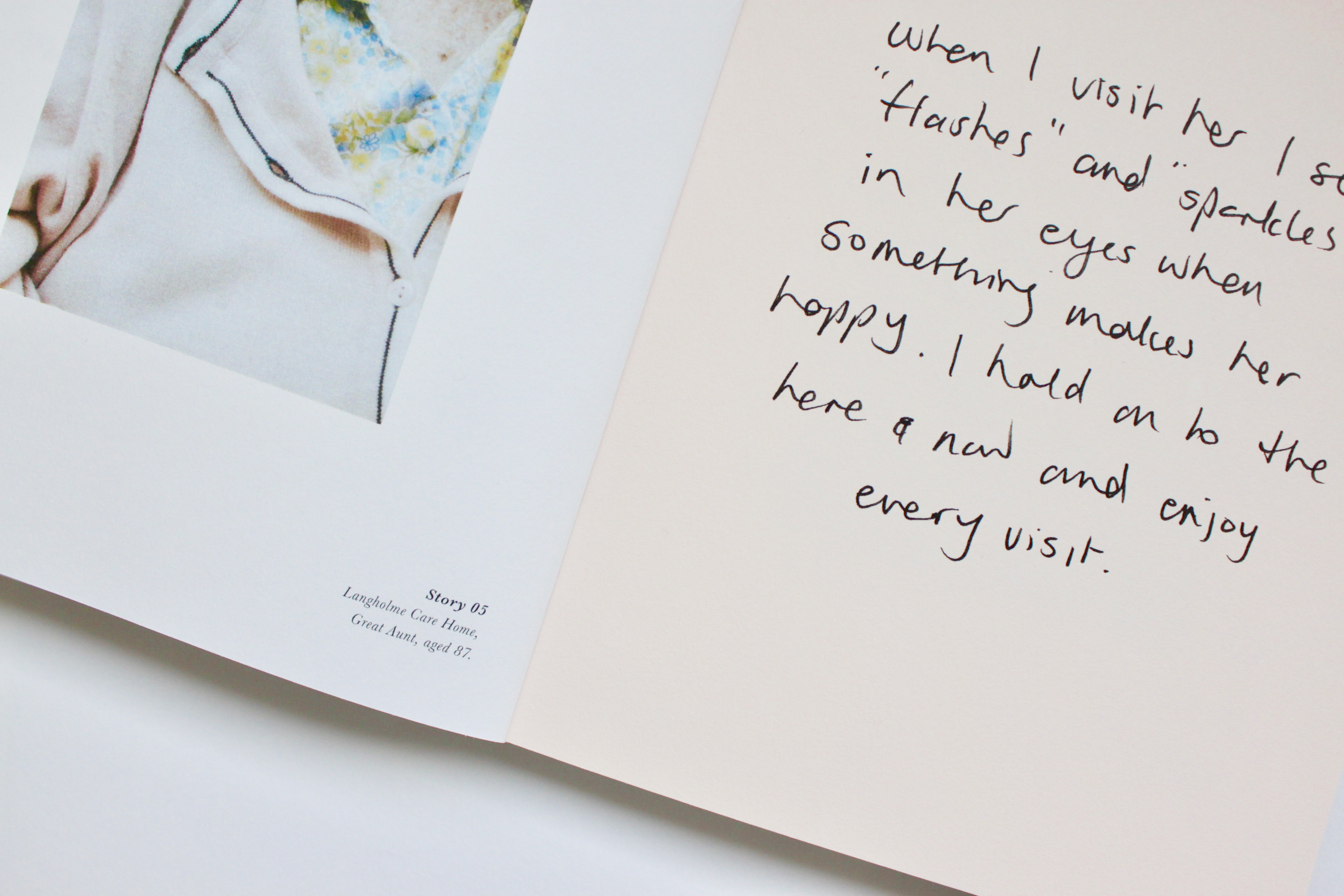
Above lies one of many handwritten passages presented in the publication. The spontaneous act of putting pen to paper allowed for the involved individuals to write their story, in their own words. The responses came from the heart, with no editing. The appearance of the stories in handwritten form connects the reader to the narratives and brings their raw stories to life. Everybody's story and everybody's handwriting is personal, not one is the same.
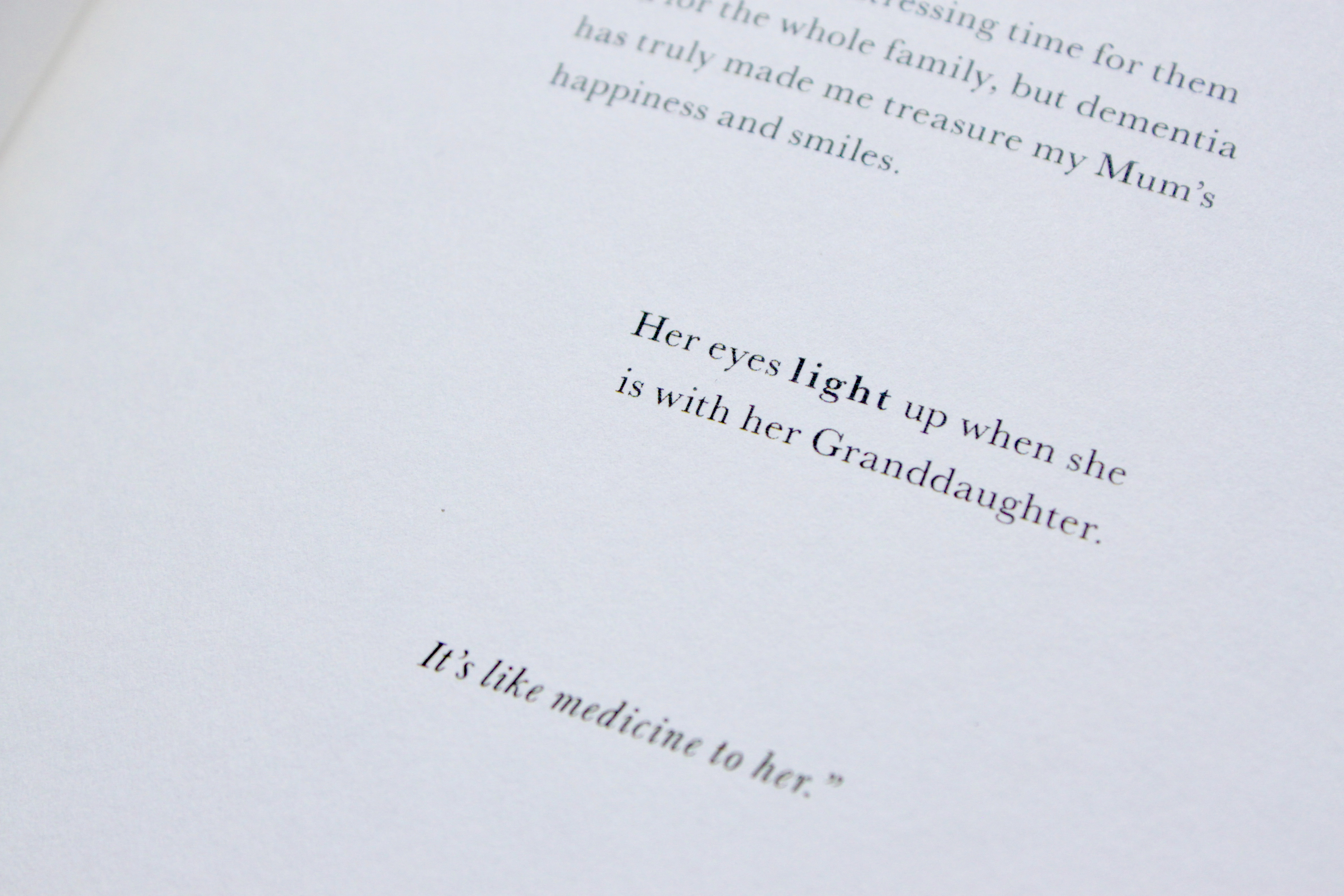
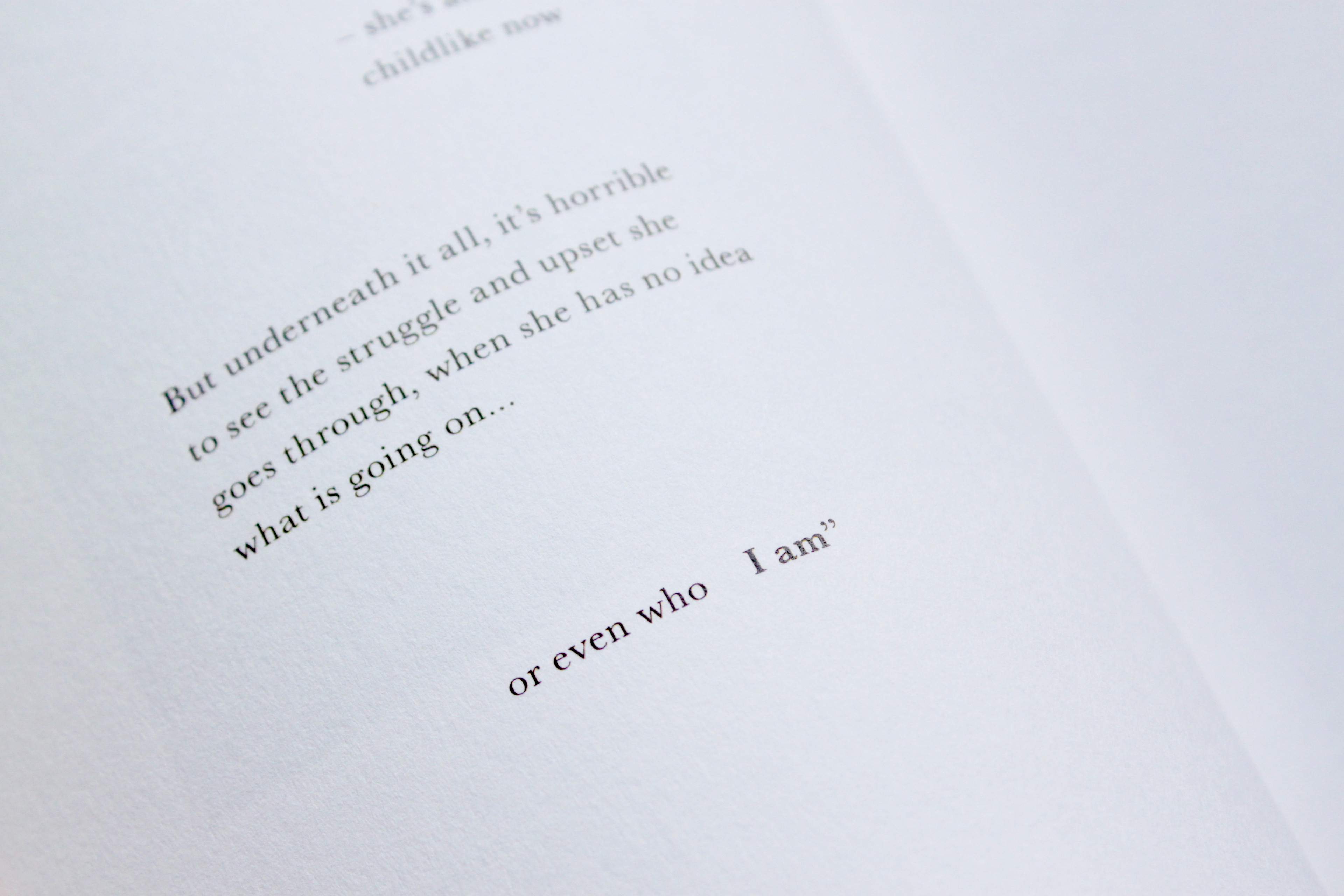
-
"...My approach as her daughter is to keep her laughing, the only medicine for this
horrible situation"
horrible situation"
-

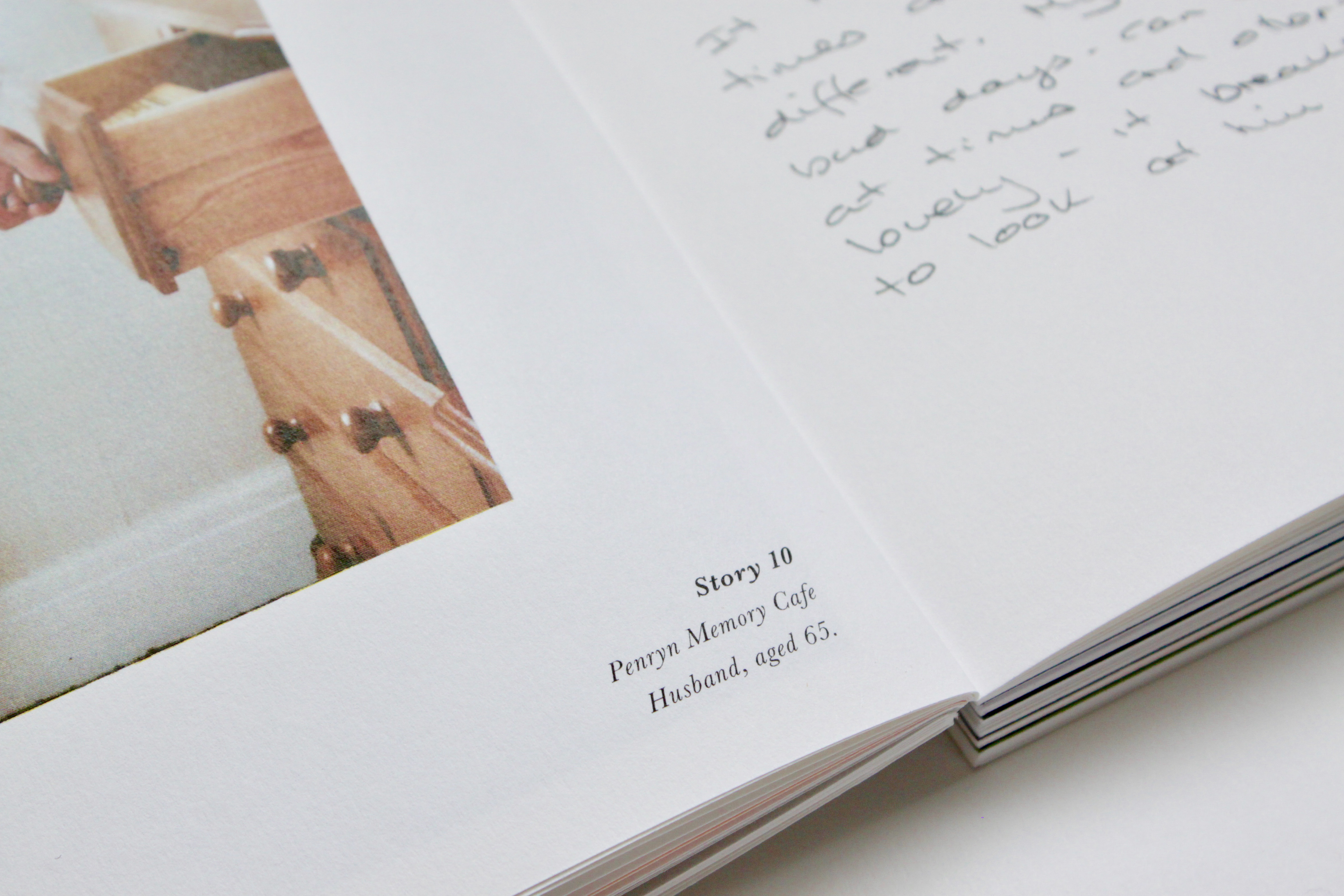
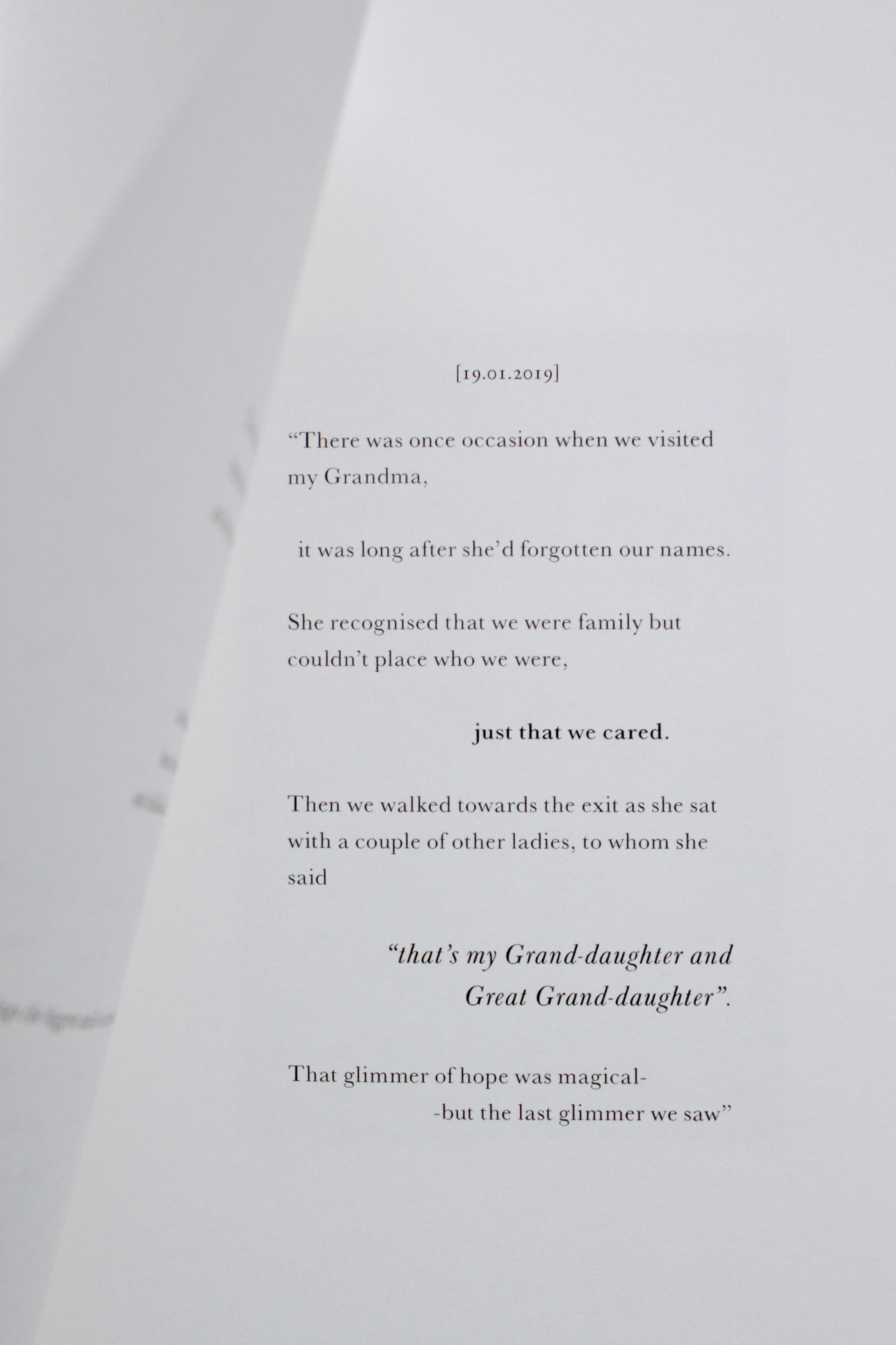
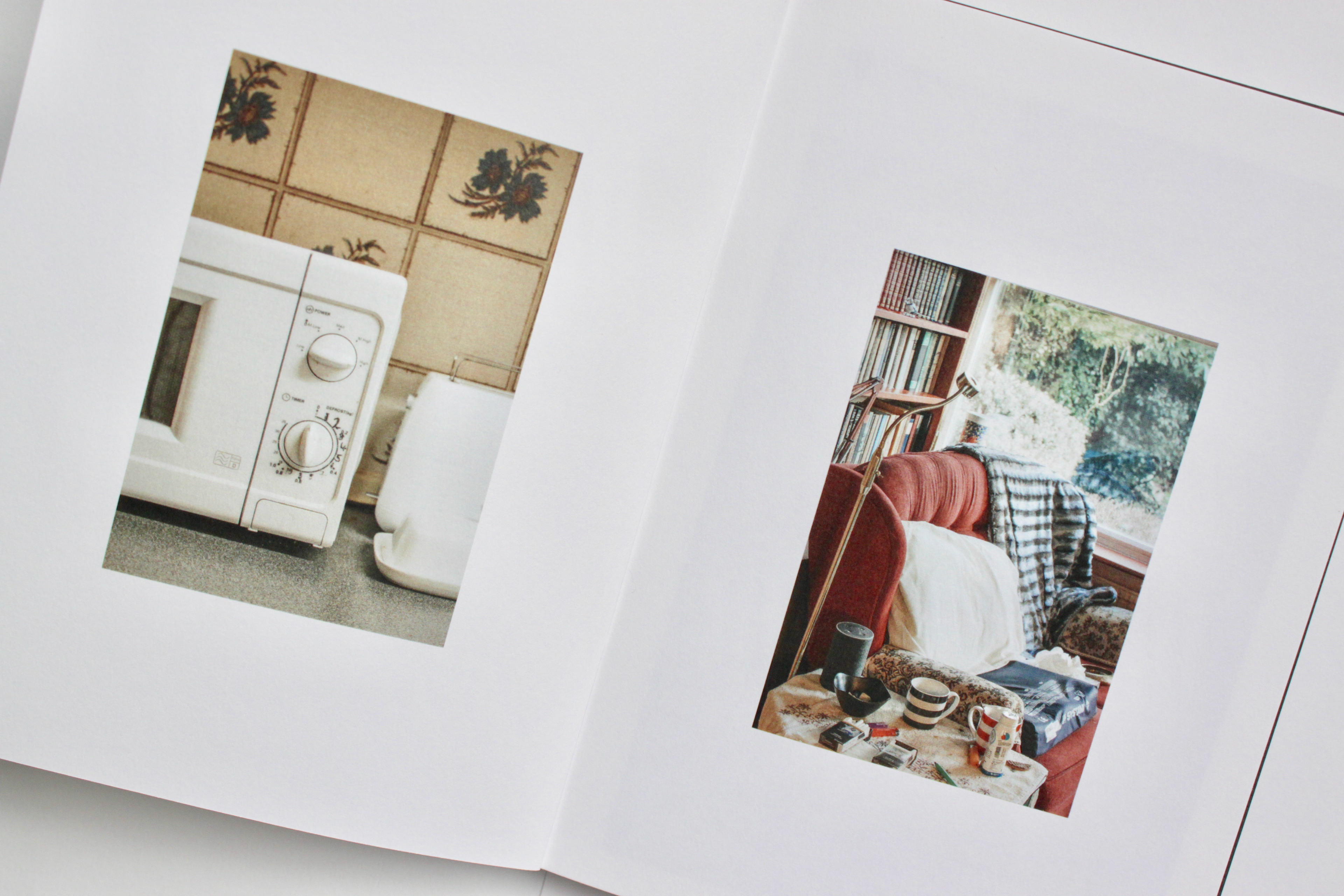
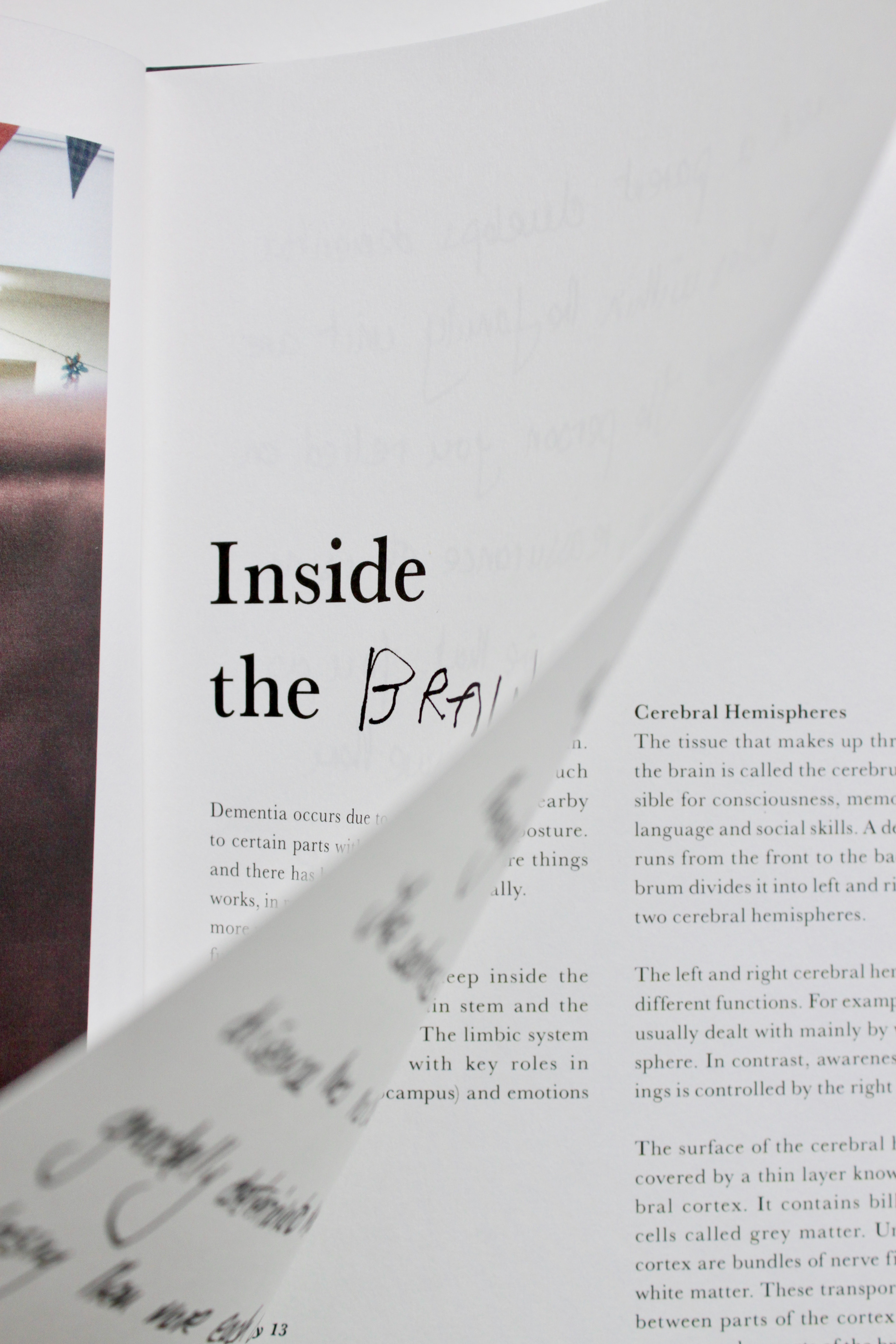
-
"When a parent develops dementia, the roles within the family unit are reversed. The person you relied on for advice, reassurance etc. is no longer able to give that. You as the child has to reassure them through this difficult disease. The sadness is know that this disease has no cure and they will gradually deteriorate more, therefore losing them more each day..."
Jalna Care Home, Mum, aged 91
-
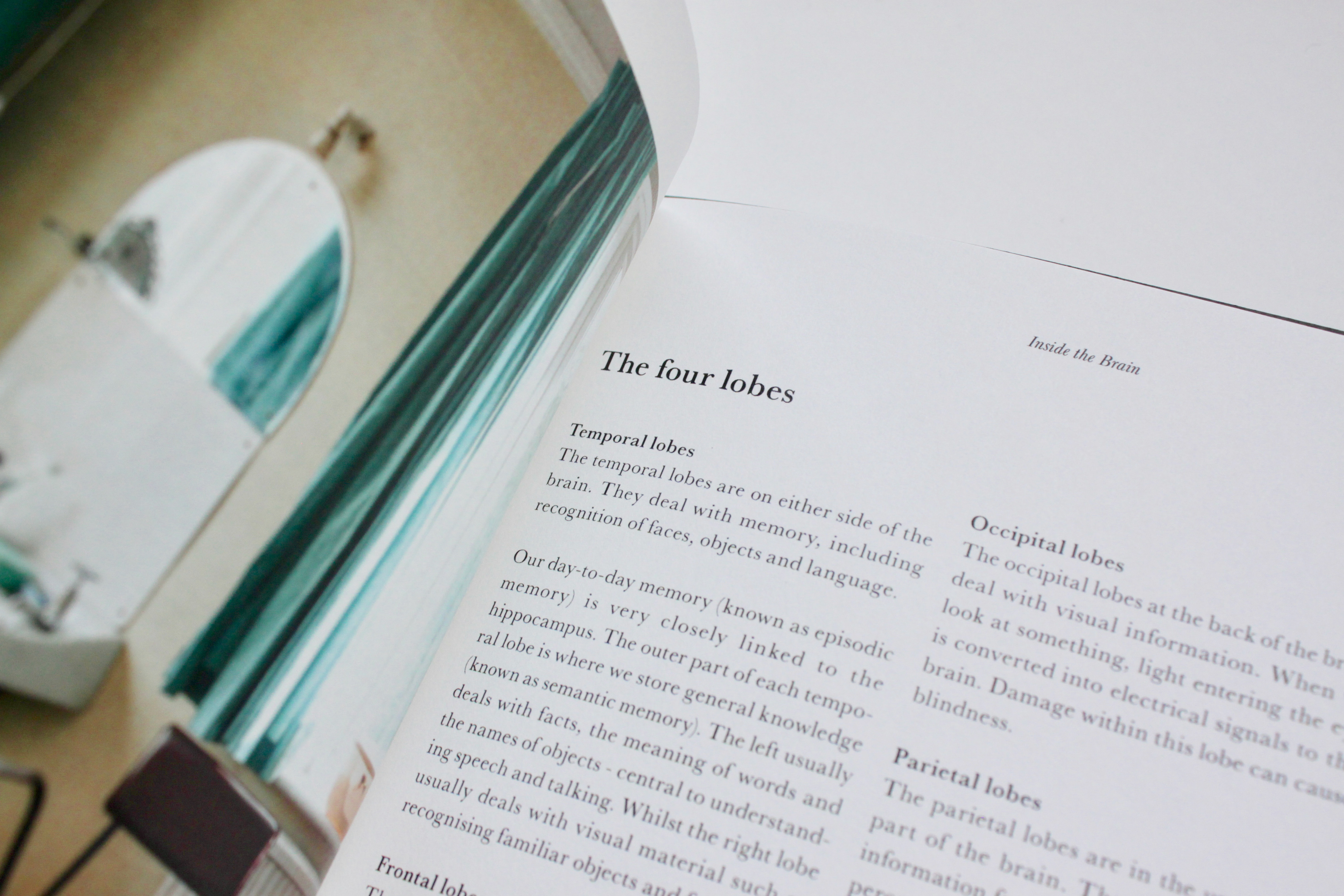
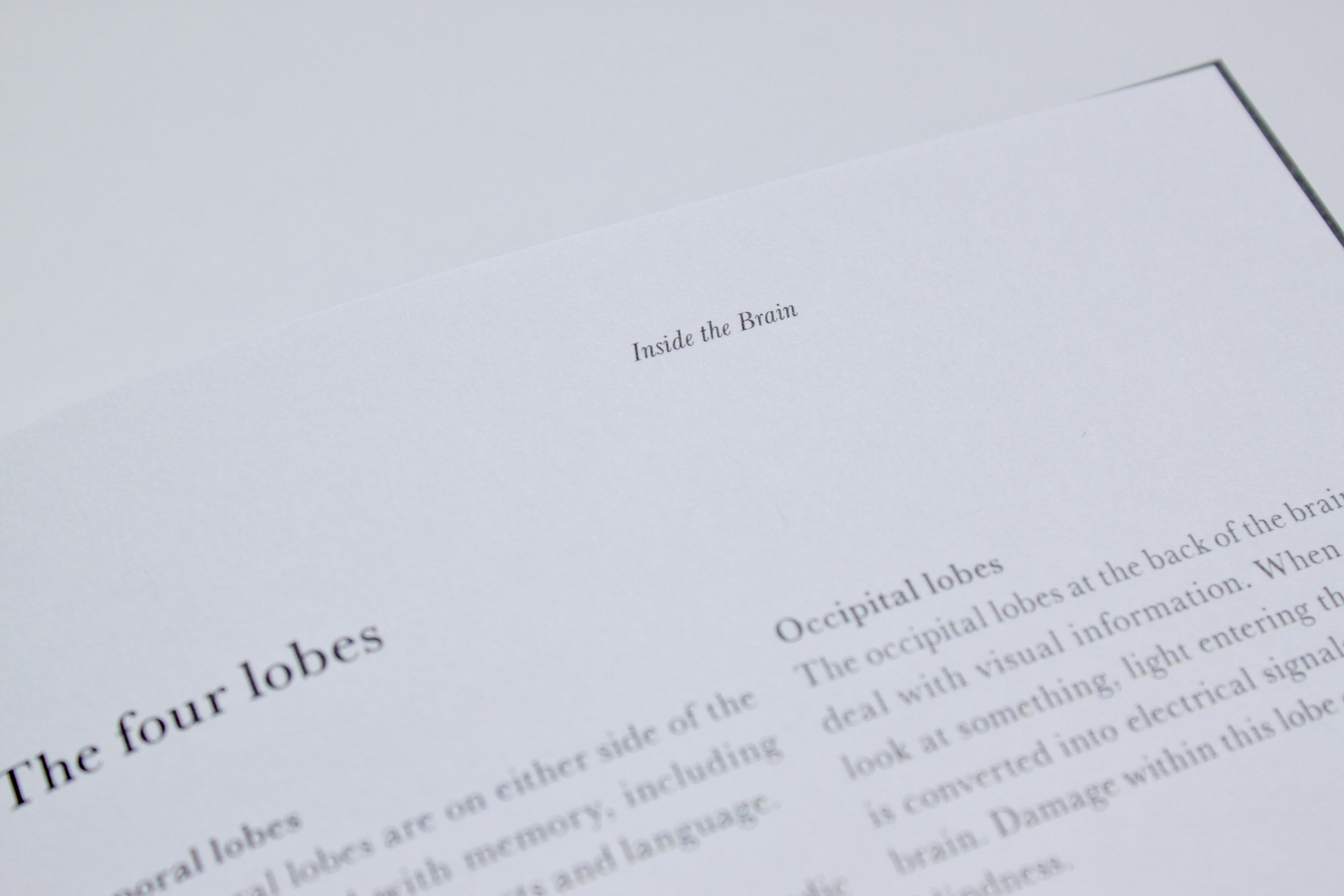
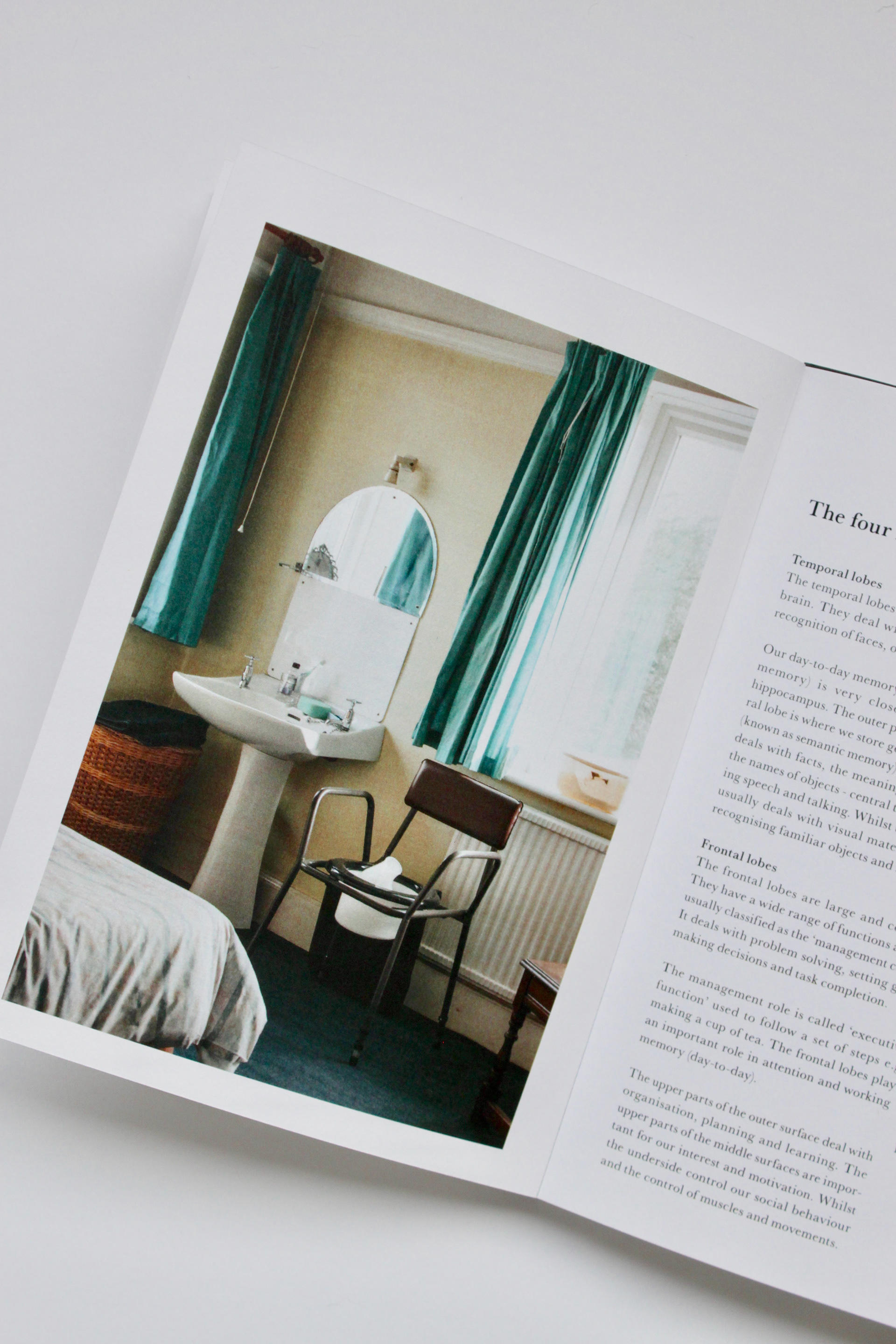
The dark grey pages facilitate the common occurrences, habits and interactions personally experienced with my Grandma and other individuals known to have first-handedly been affected by dementia. The type has been set to emulate the constant repetition of questions, statements and phrases expressed by the individual. This has been completed by the duplication, fragmentation and overlapping of words.
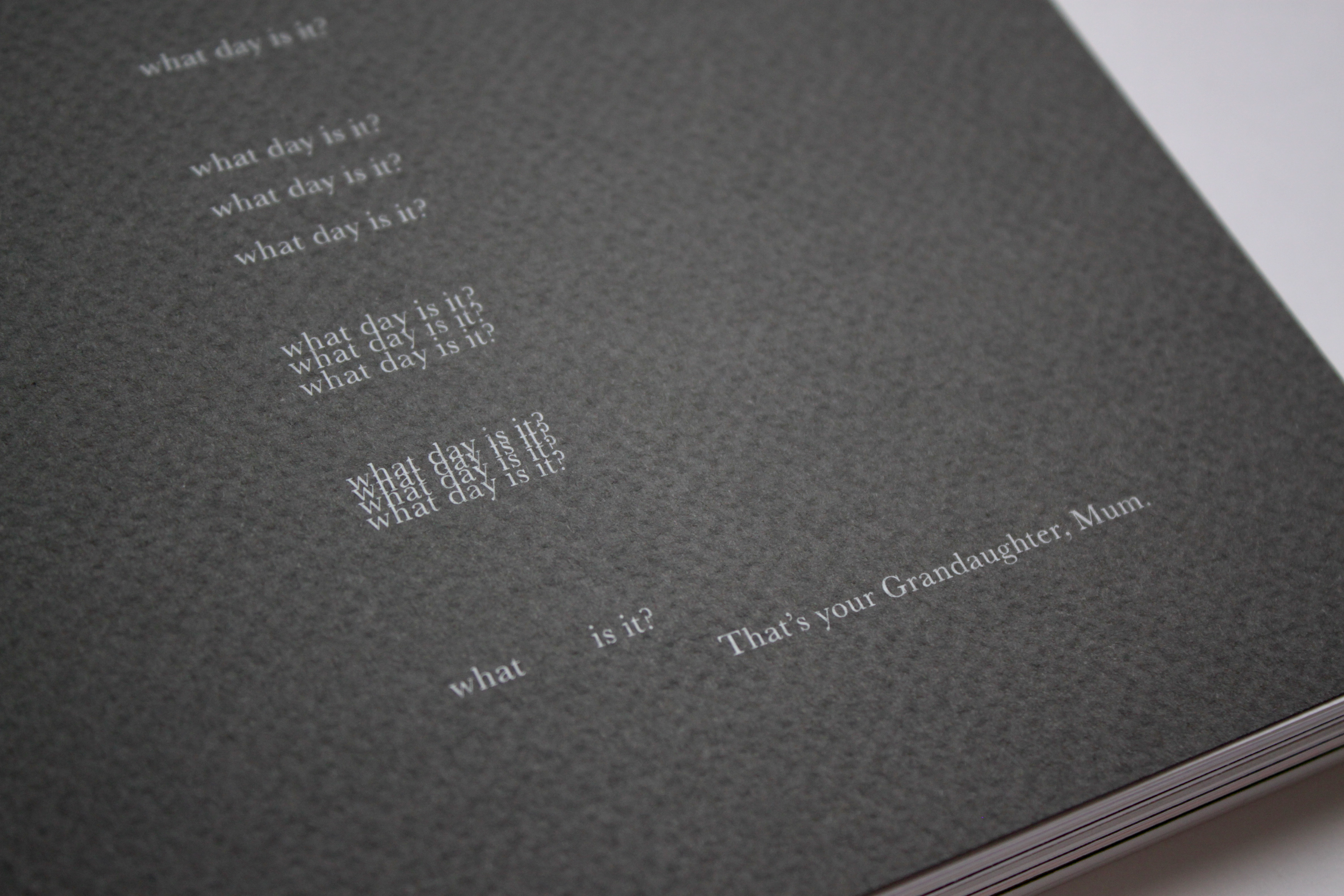
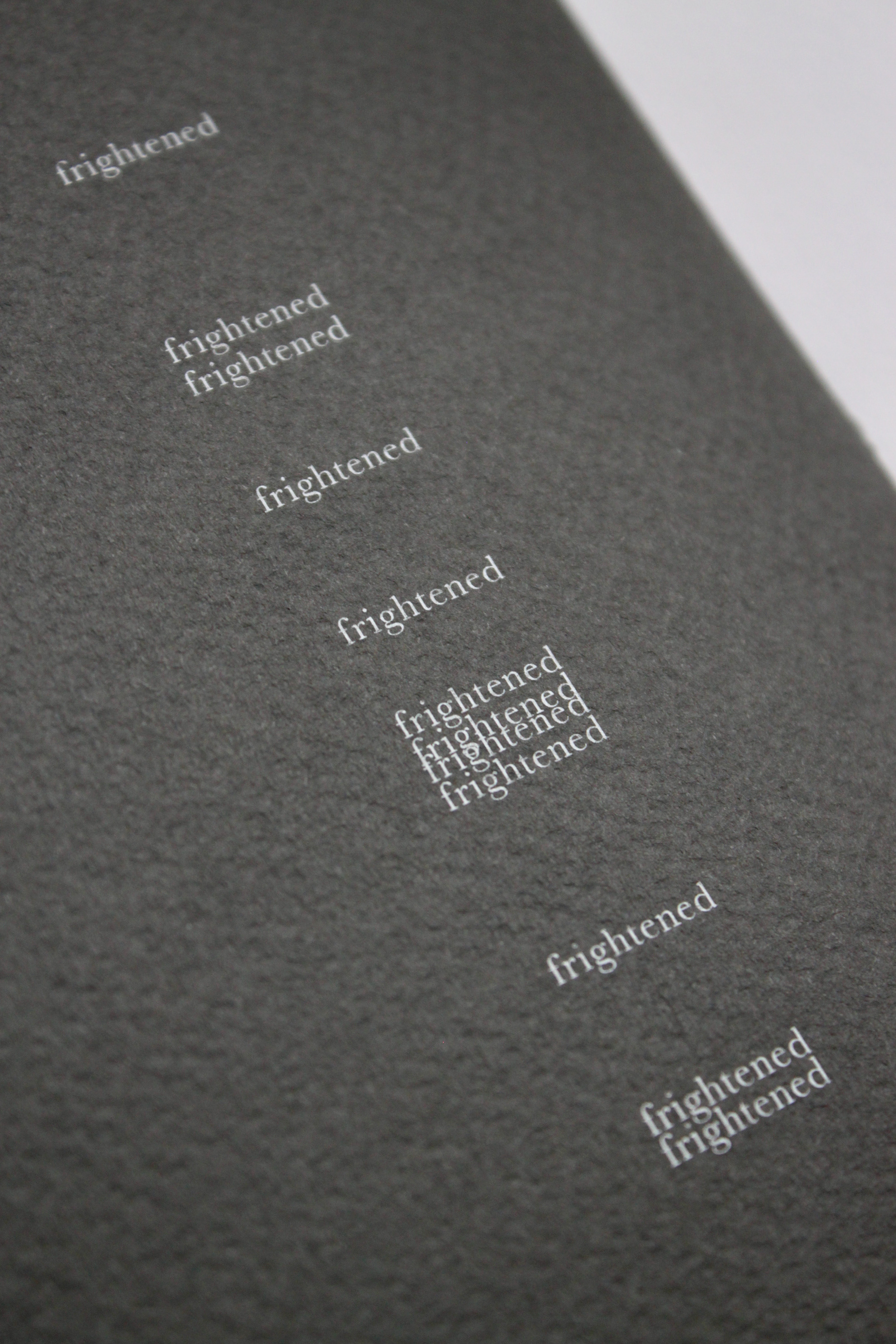
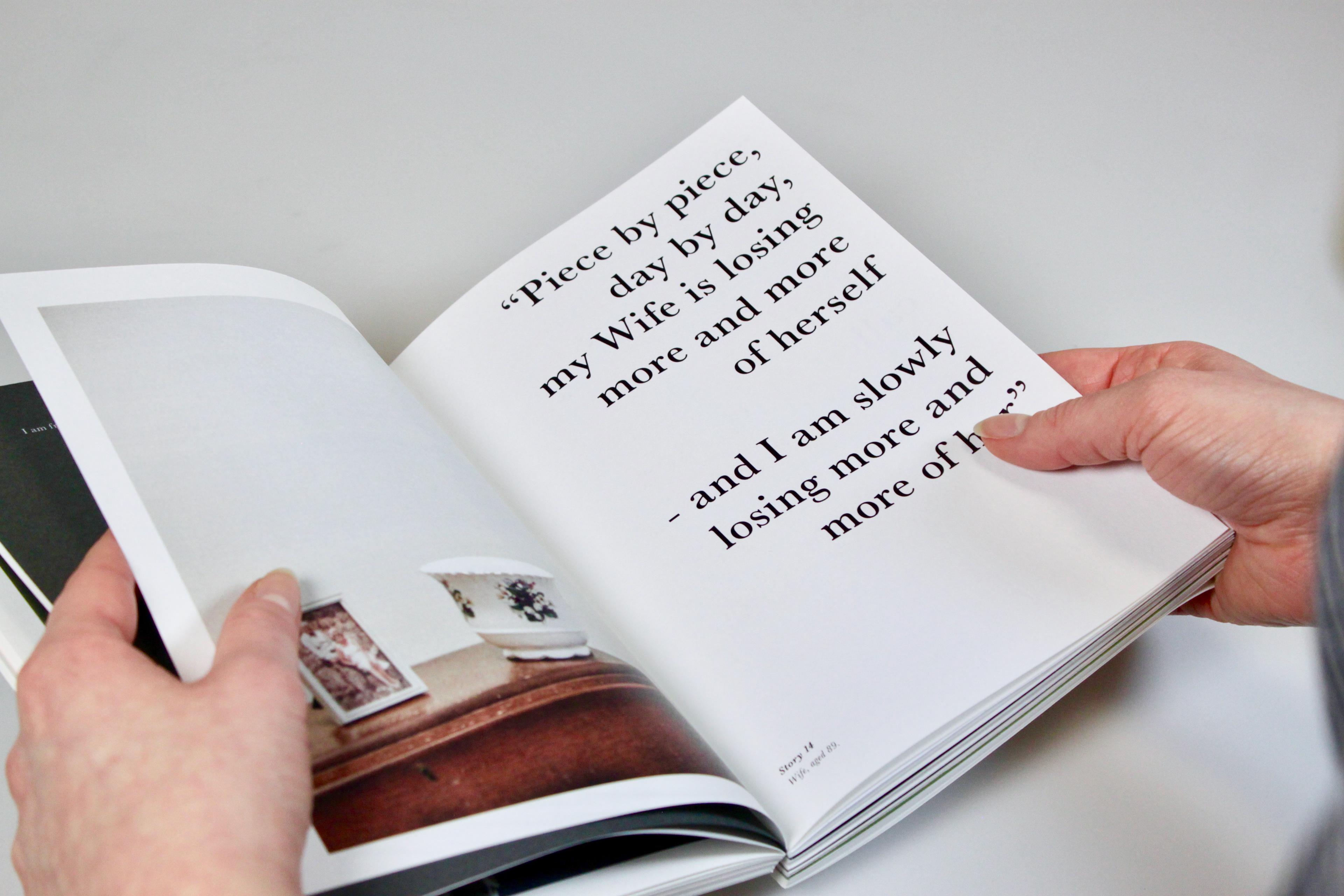
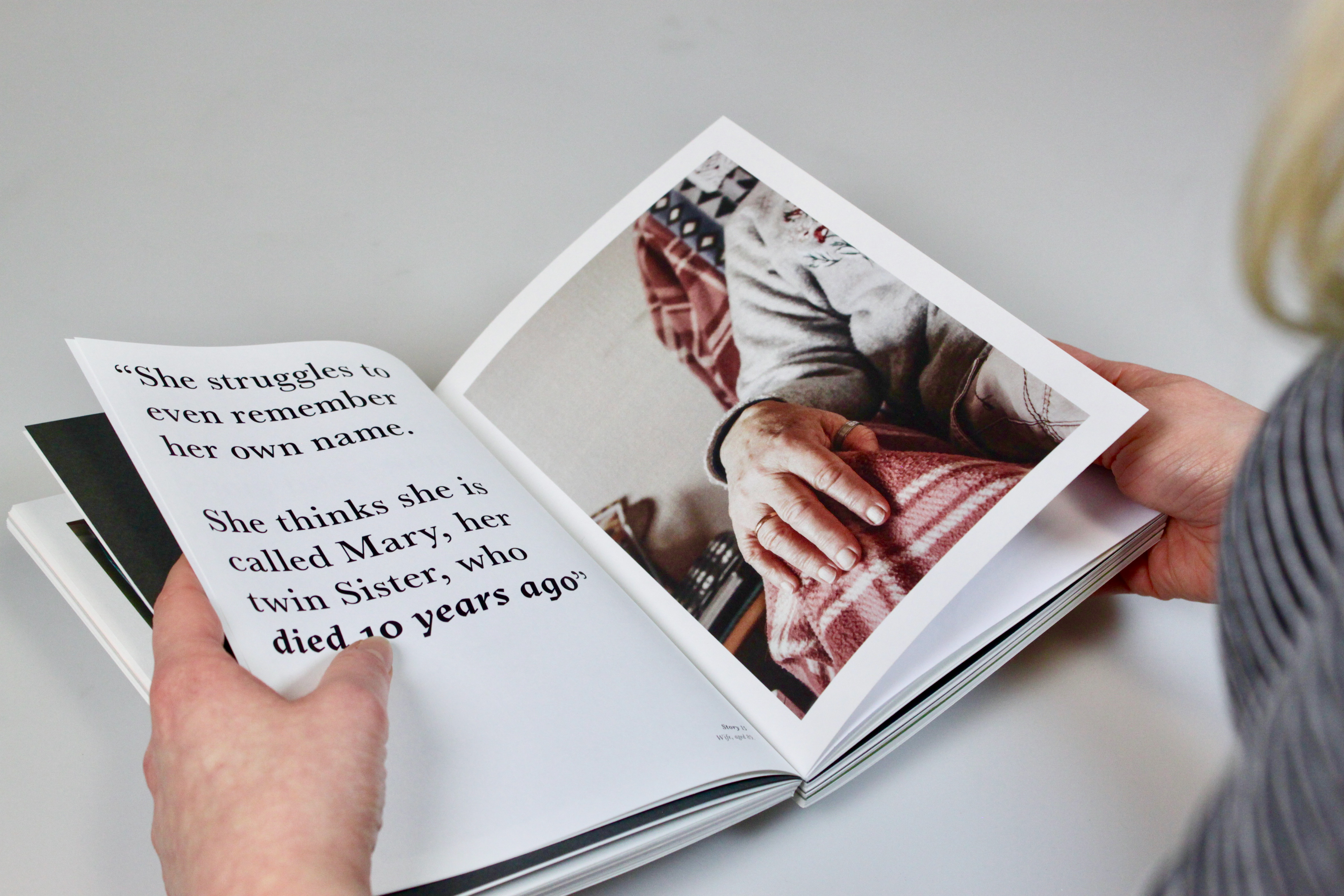
-
"Piece by piece, day by day, my Wife is losing more and more of herself - and I am slowly losing more and more of her. She struggles to even remember her own name. She thinks she is called Mary, her twin Sister, who died 10 years ago"
During one of my visits to a care home in Falmouth. I met a lovely couple. The wife, Margret lived there, whereas the Husband did not. He told me endless stories, but one thing stood prominent within my mind - he informed me that sometimes Margret misunderstands and confuses herself with her twin sister, Mary. However, Mary passed away over 10 years ago. He presented me with a piece of paper, which shows the time he was attempting to teach his wife her name again. He kindly let me have it and to commemorate his story, I included this within the publication. It shows how she commonly misspelt her name or got it confused with Mary, her twin sister. A truly heartbreaking story.
-

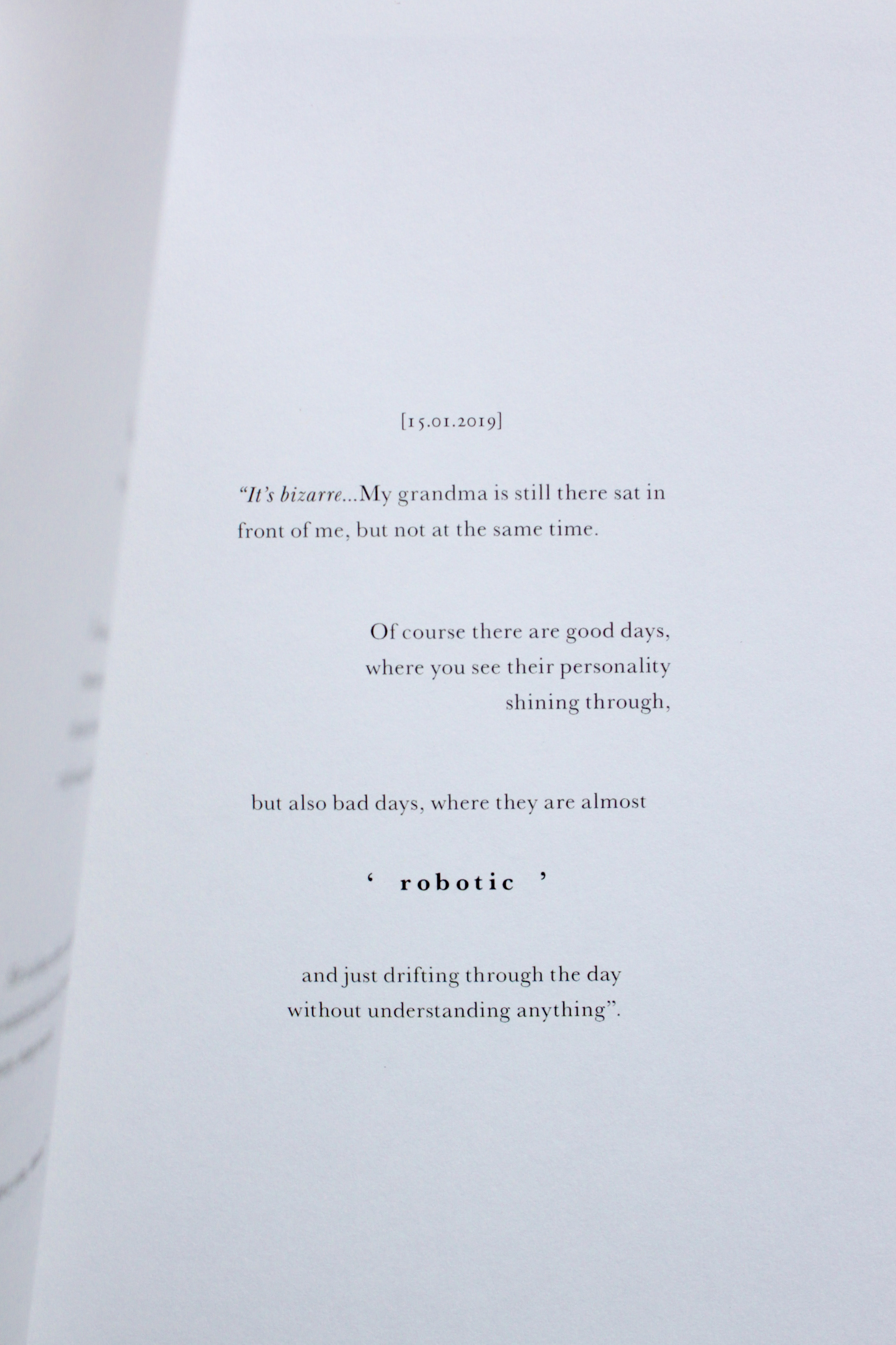
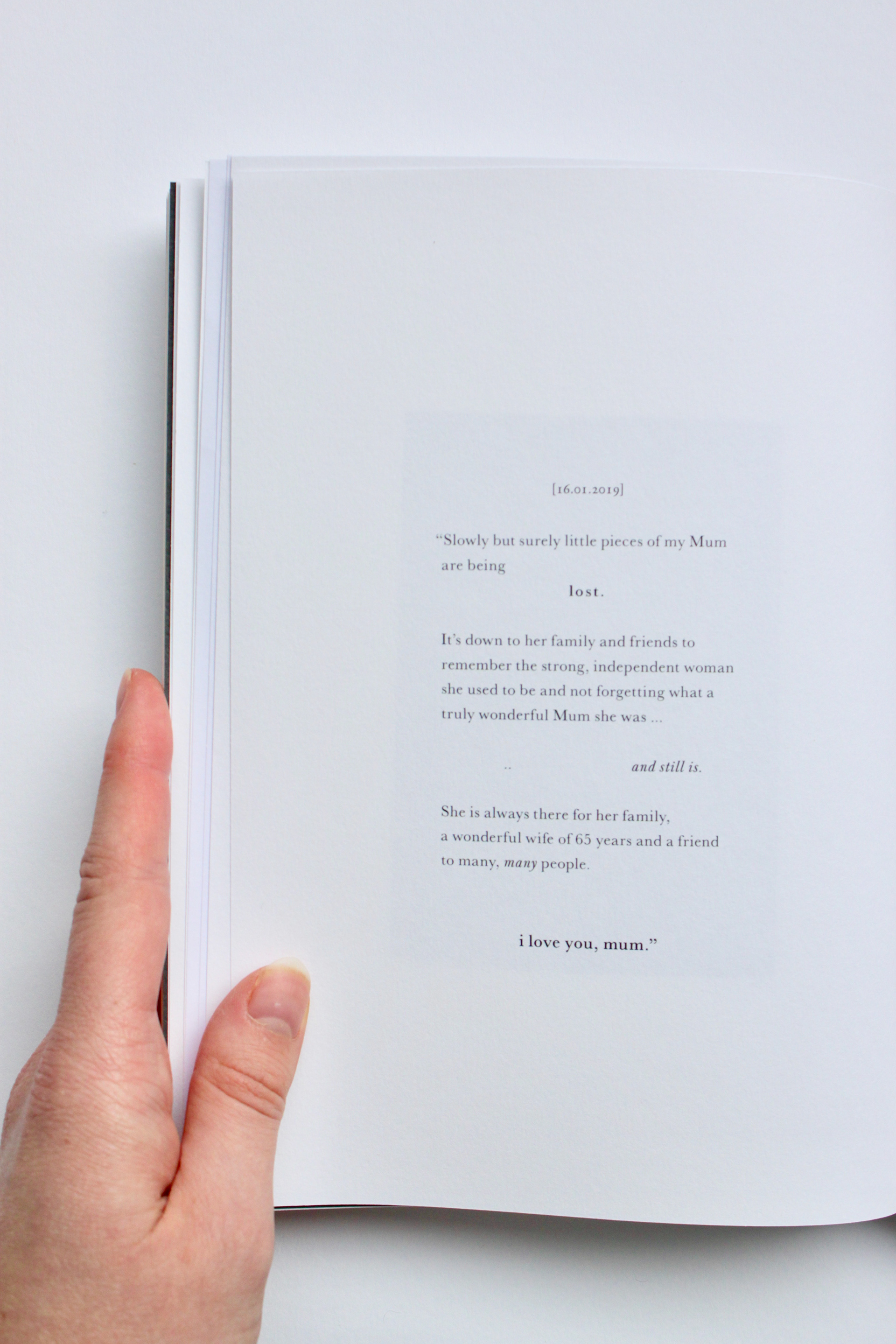
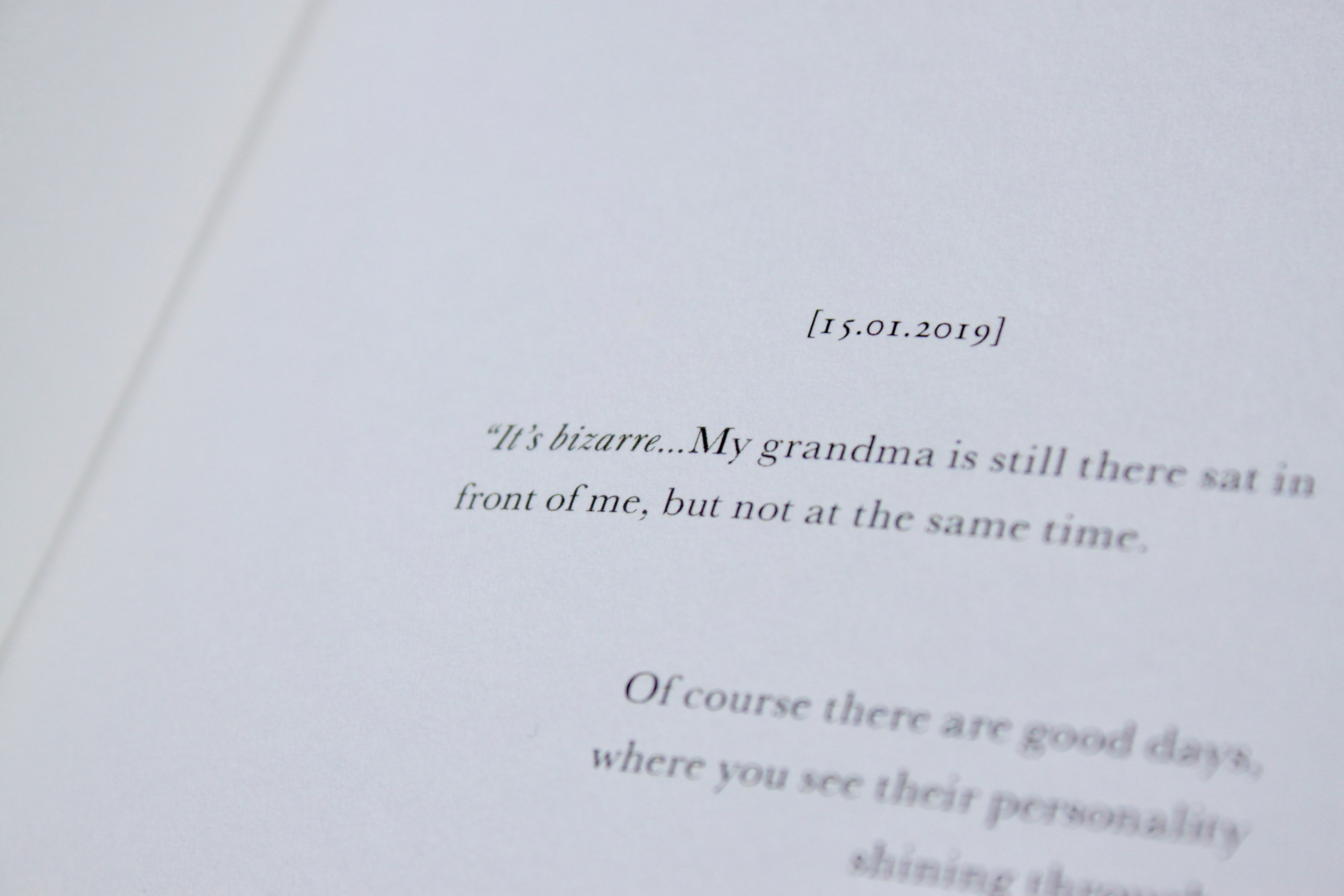
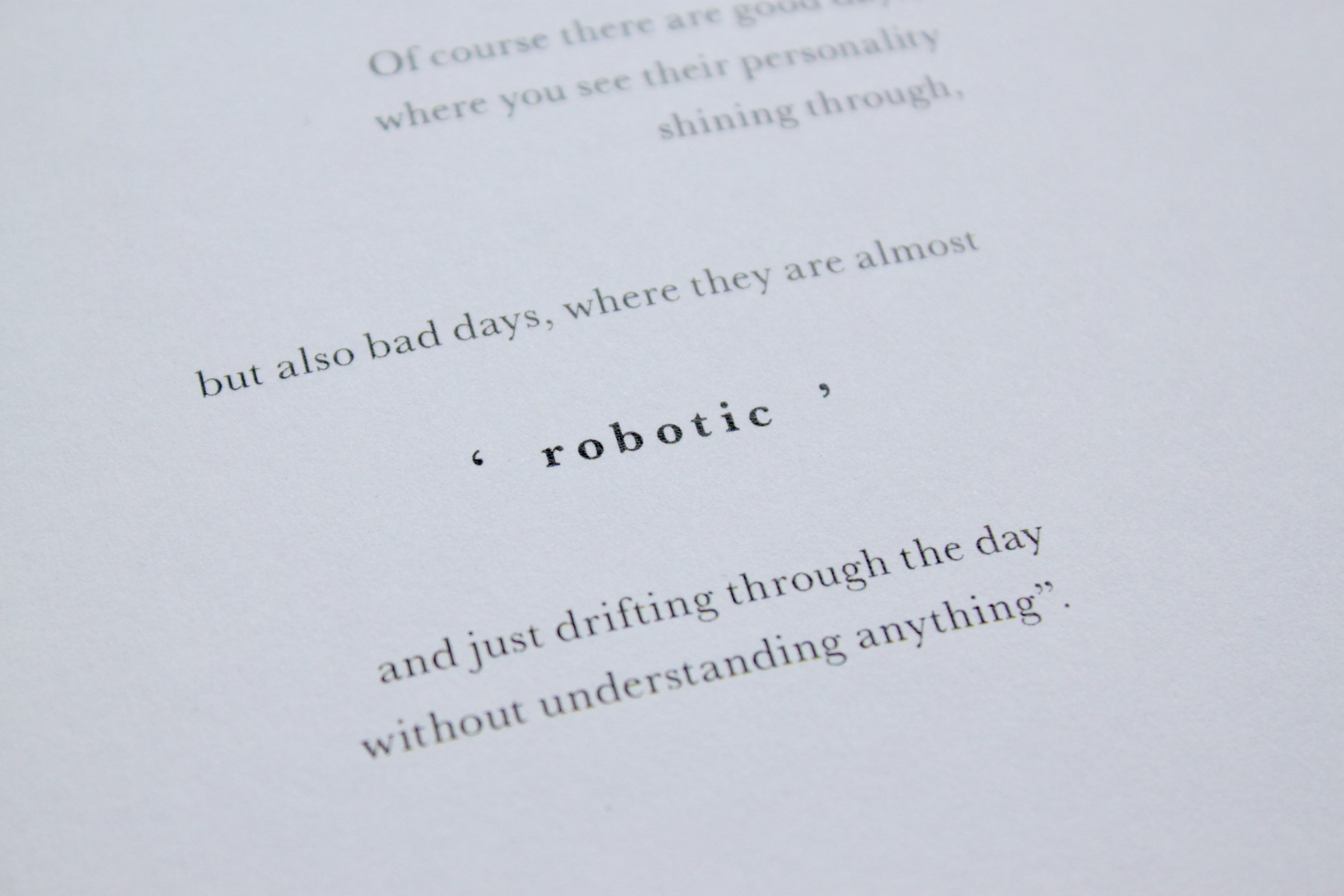
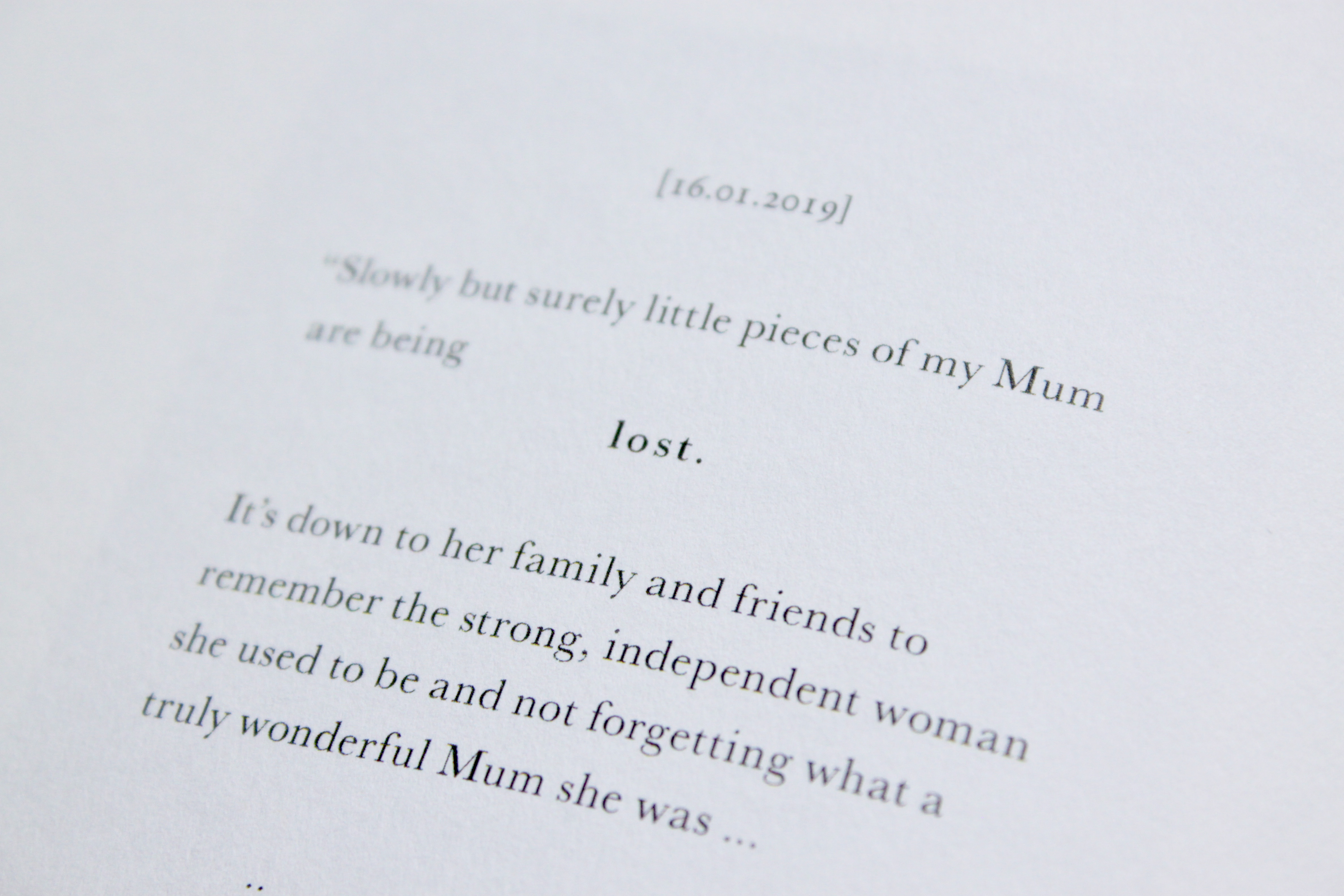
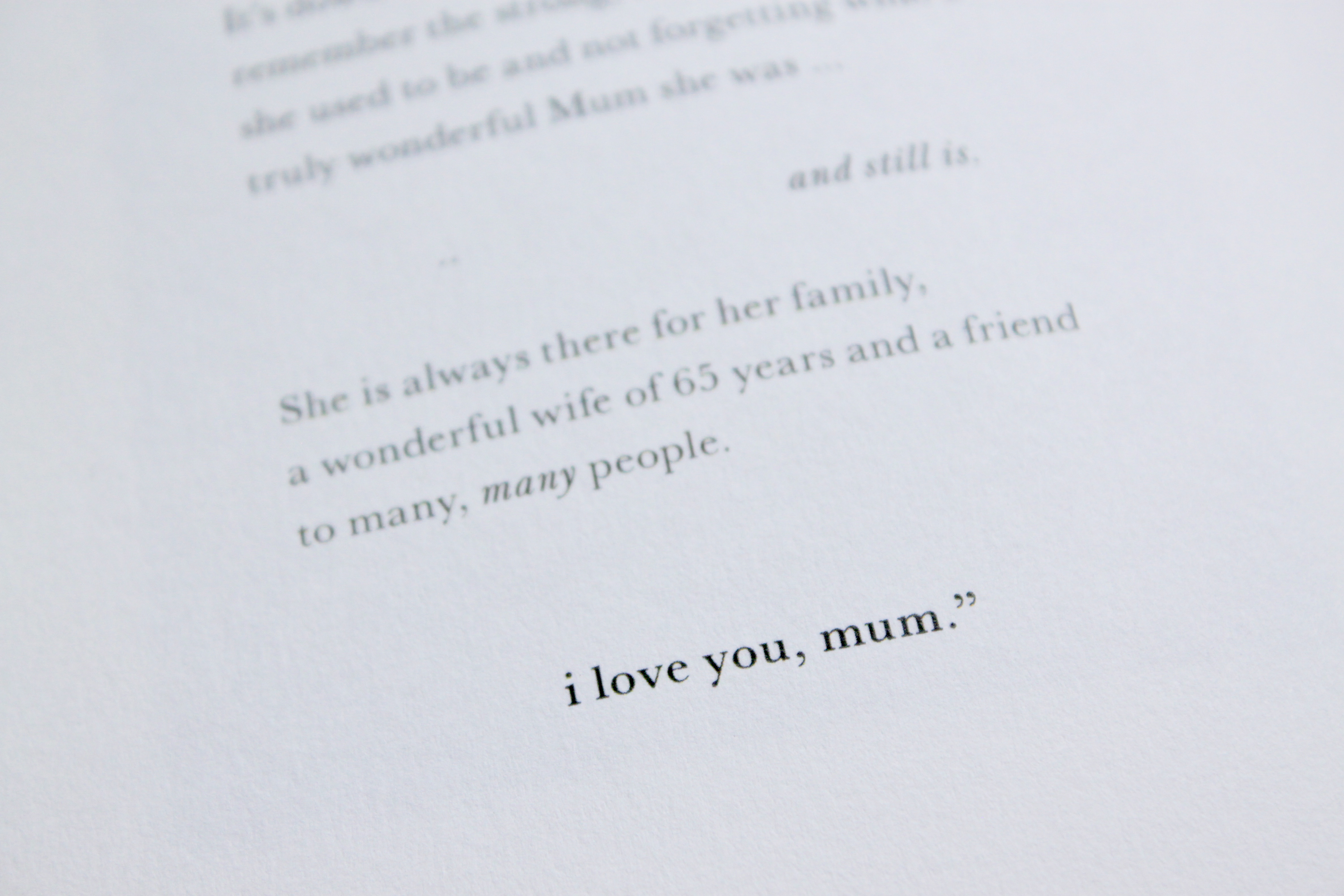
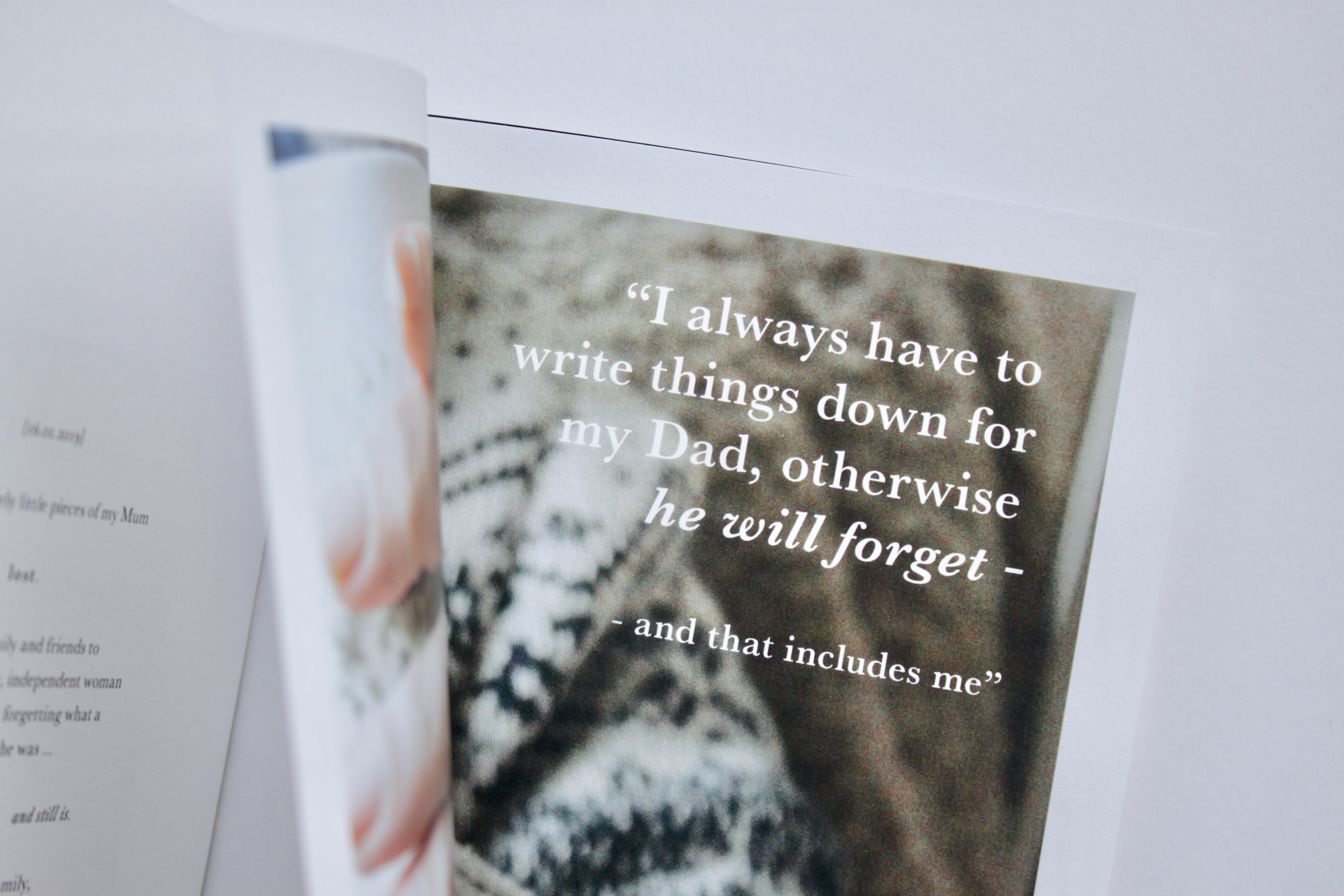
-
"I always have to write things down for my Dad, otherwise he will forget - and that includes me"
Notes written by Son, to remind Father his name and to take medication
-
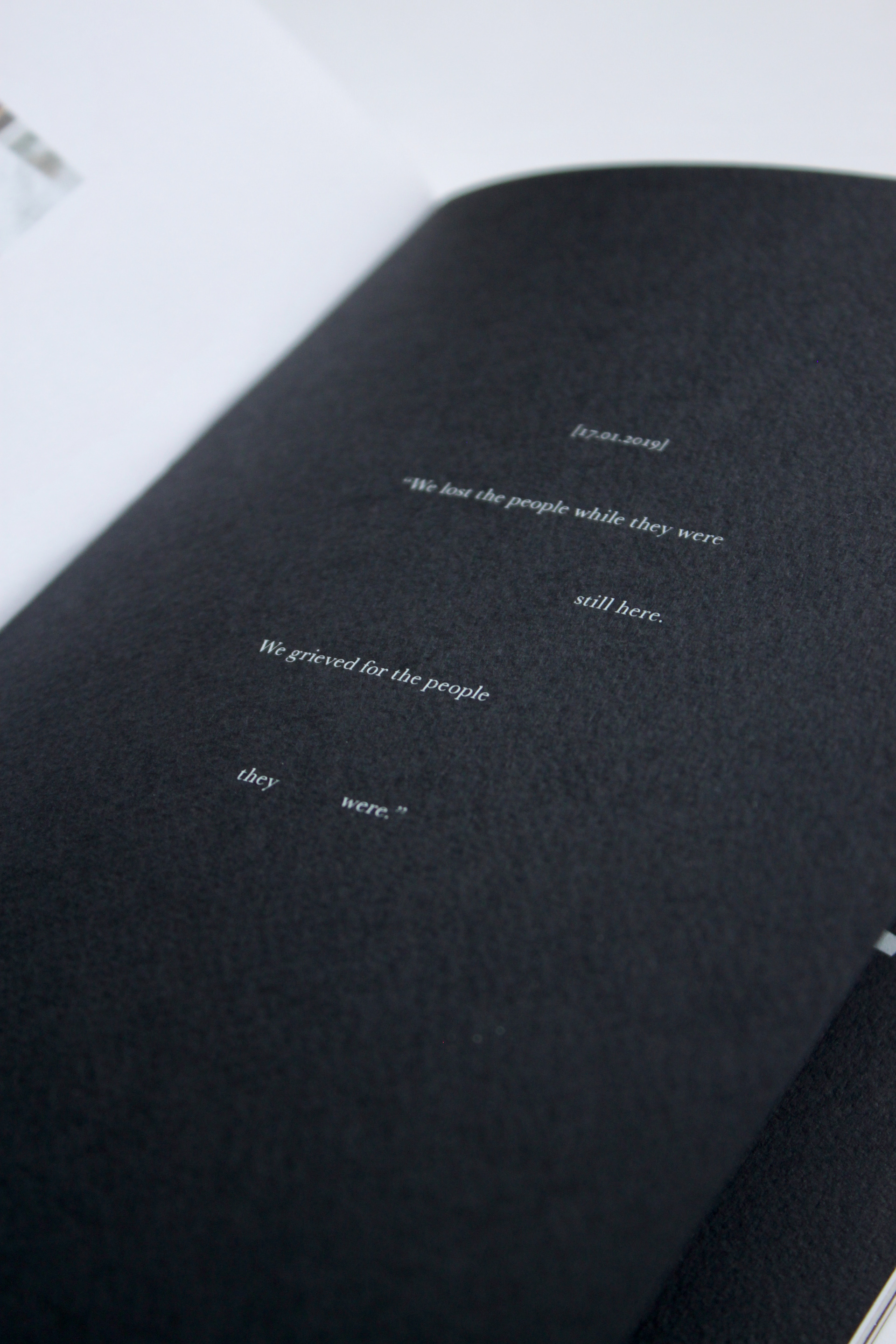
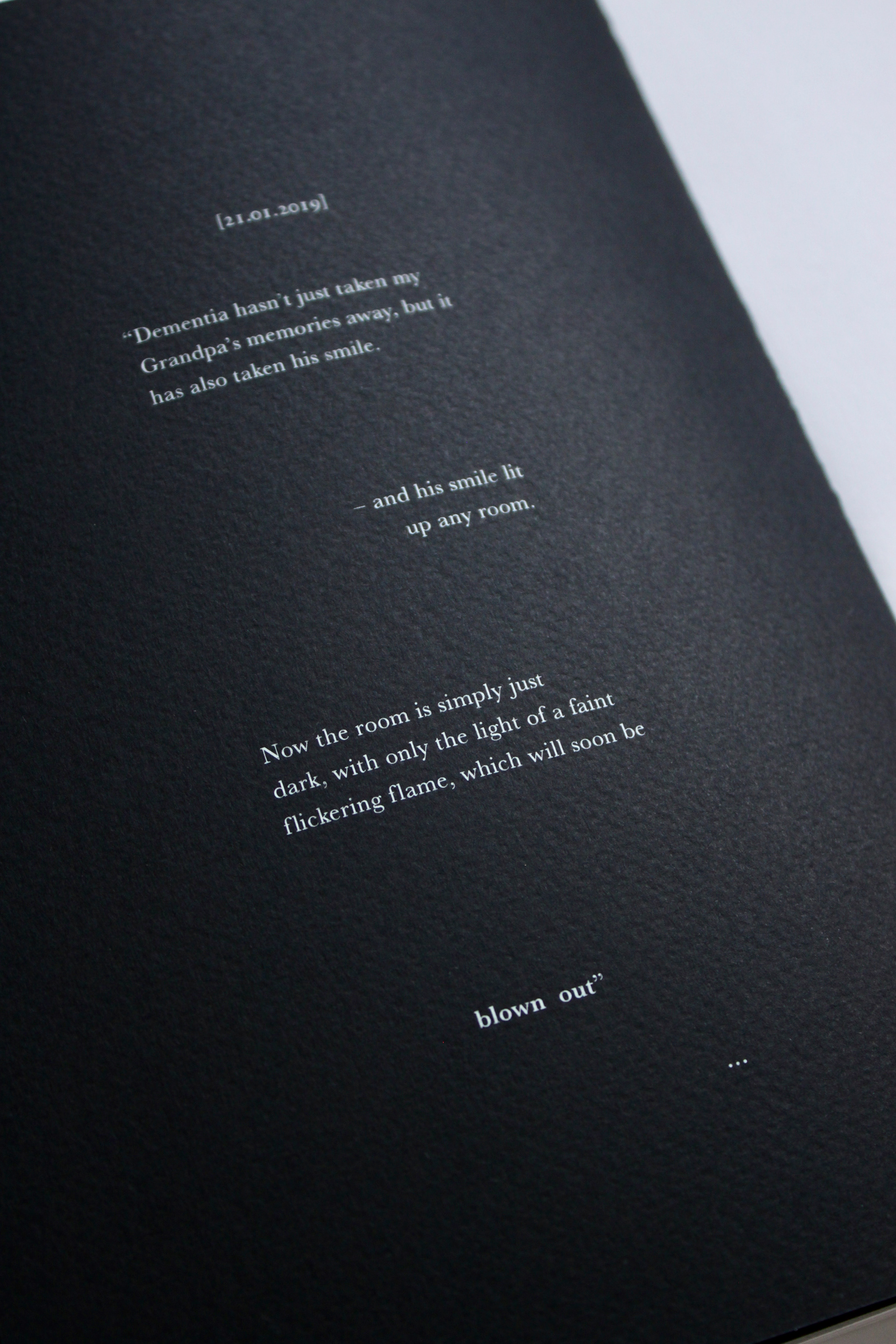
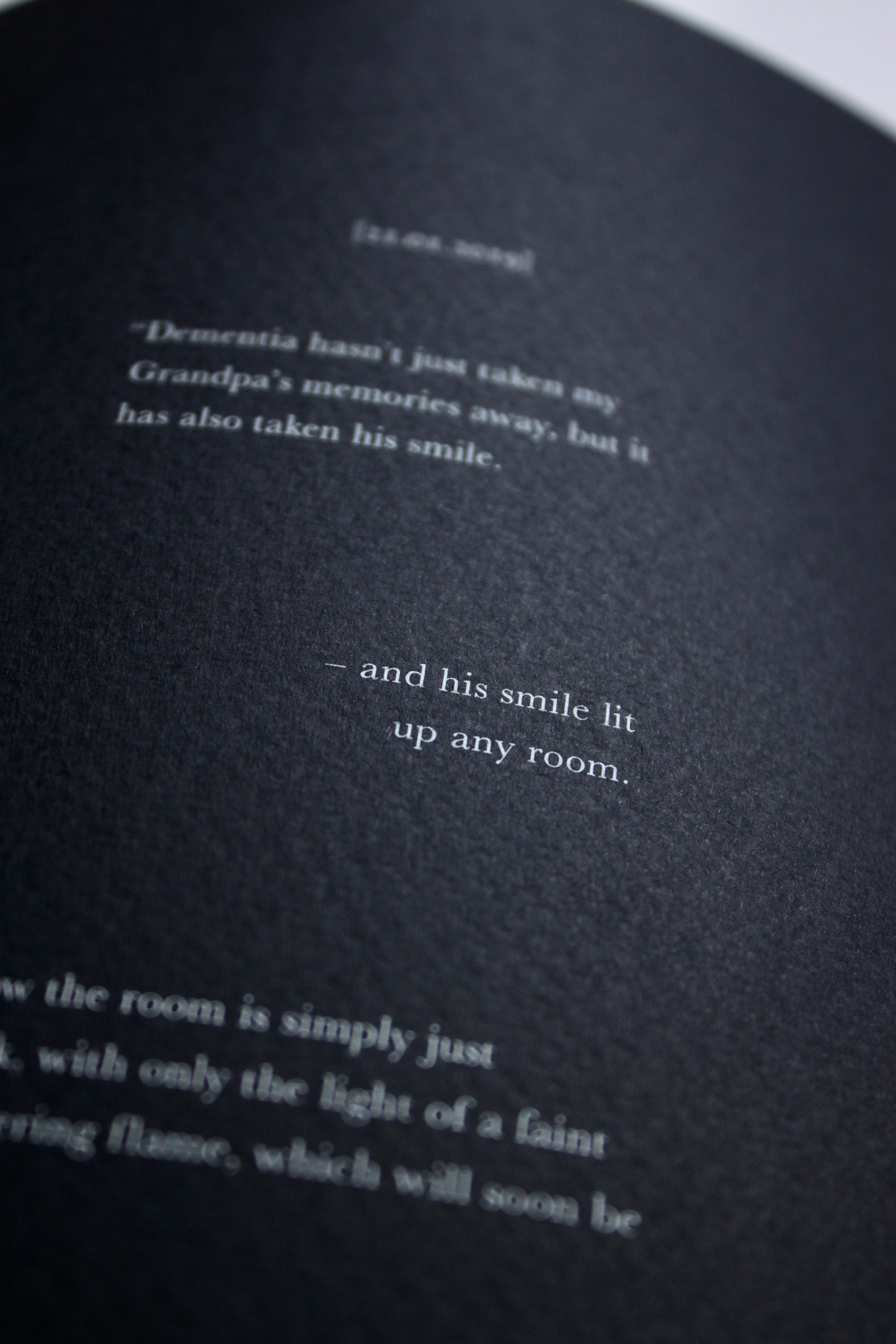
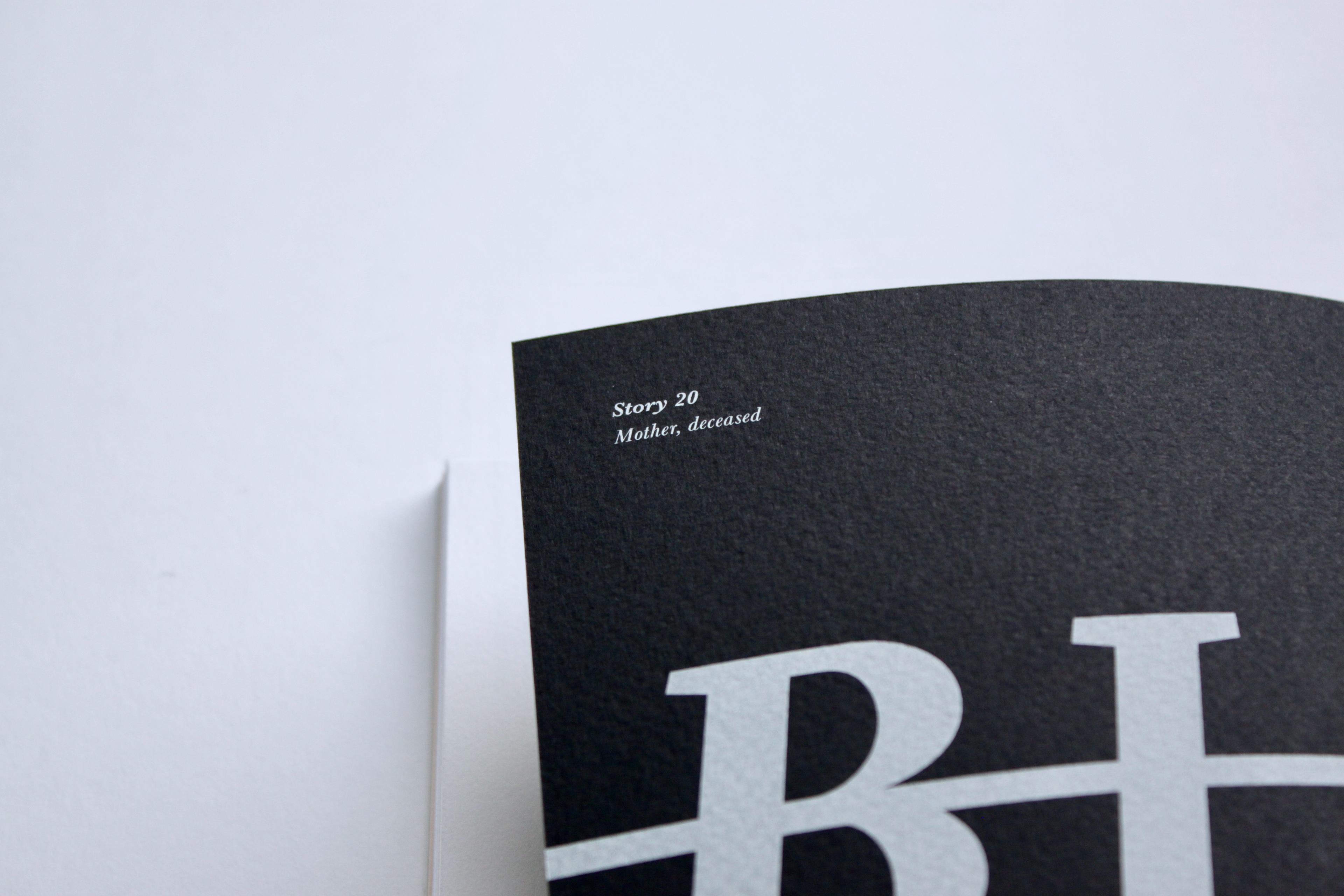
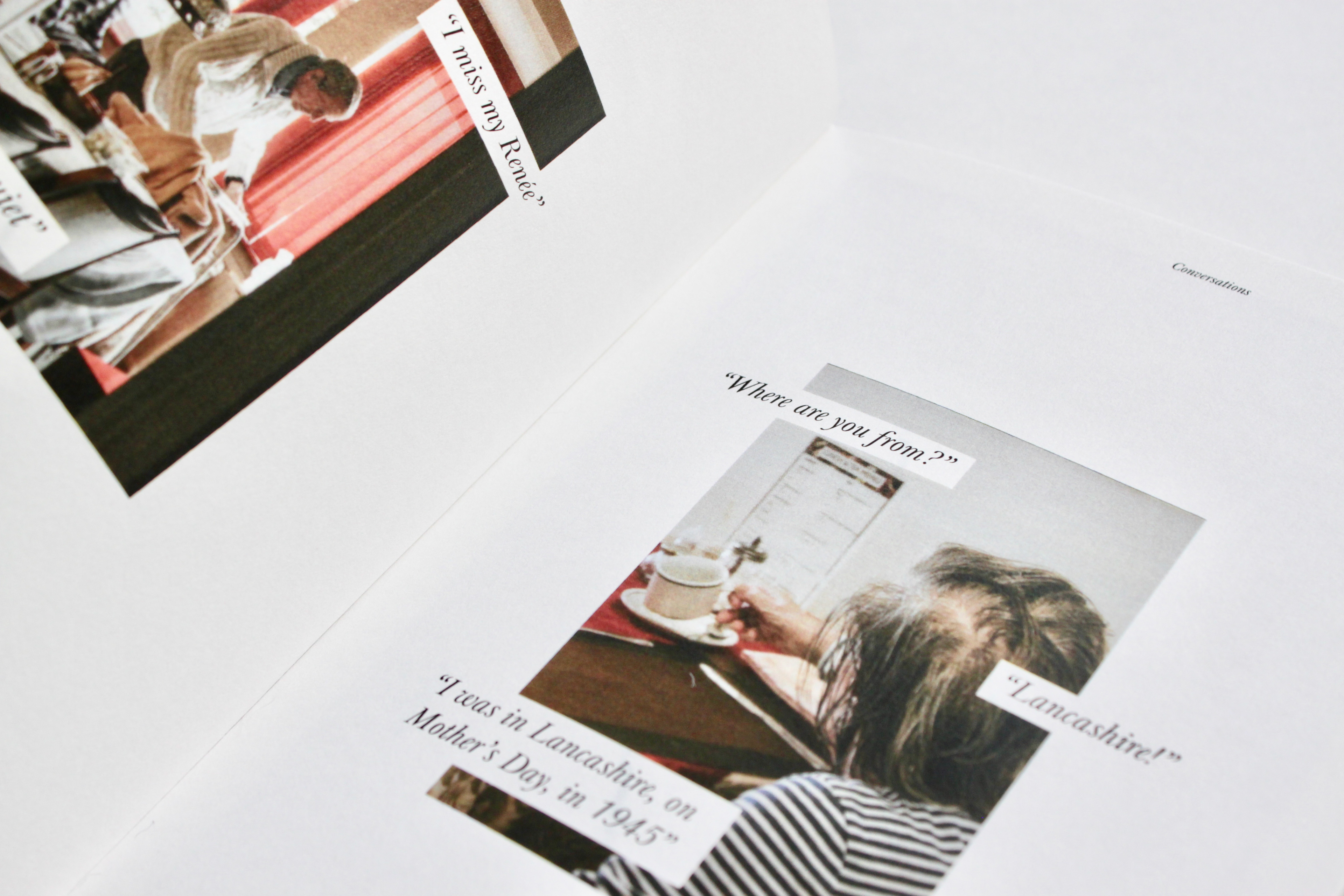
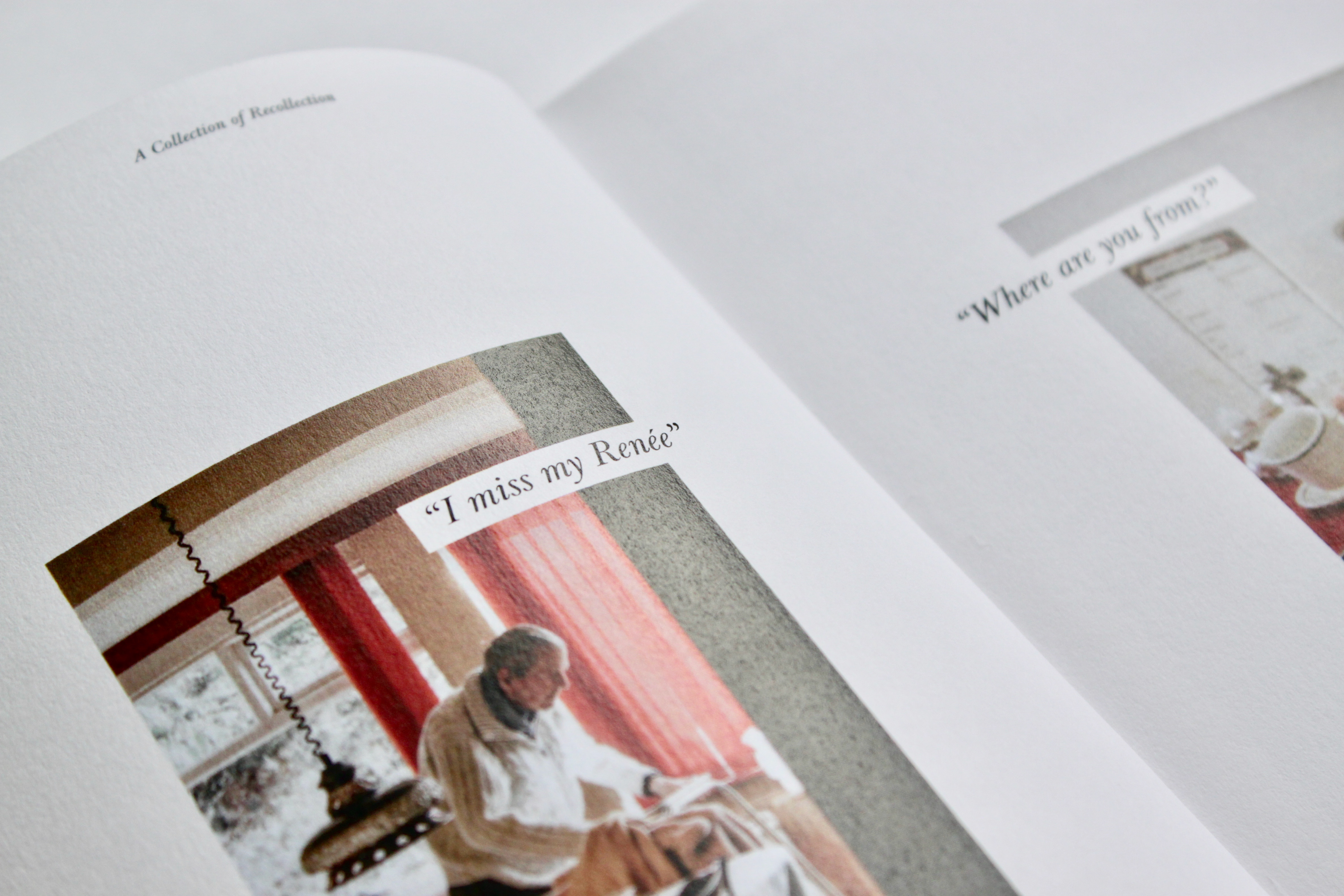
Paper Cutting and Embossing
To imitate the deterioration and the overall impact of the different causes of dementia on the brain, I decided to carve out three increasing shapes into the selected pages, following the stage descriptions (Mild, Moderate and Severe). The shapes resemble different areas of the brain, such as the hippocampus, which consequently become 'diseased' or are impacted overtime. The carvings are positioned at the base of the page and gradually expand, growing from one another. The carvings consequently cannot be reversed or revived, linking to the fact that dementia has no cure, and is a slow, long decline and depression. The holes finalise by taken over the entirety of the page as the reader progresses into the 'severe' stage.
Page embossing has been used to allude the fading and imprint of memories on the brain. Short-term memories do not hold a prominent presence within the brain unlike long-term - therefore the embossing represents these long-term memories that have left a strong, life-long imprint.
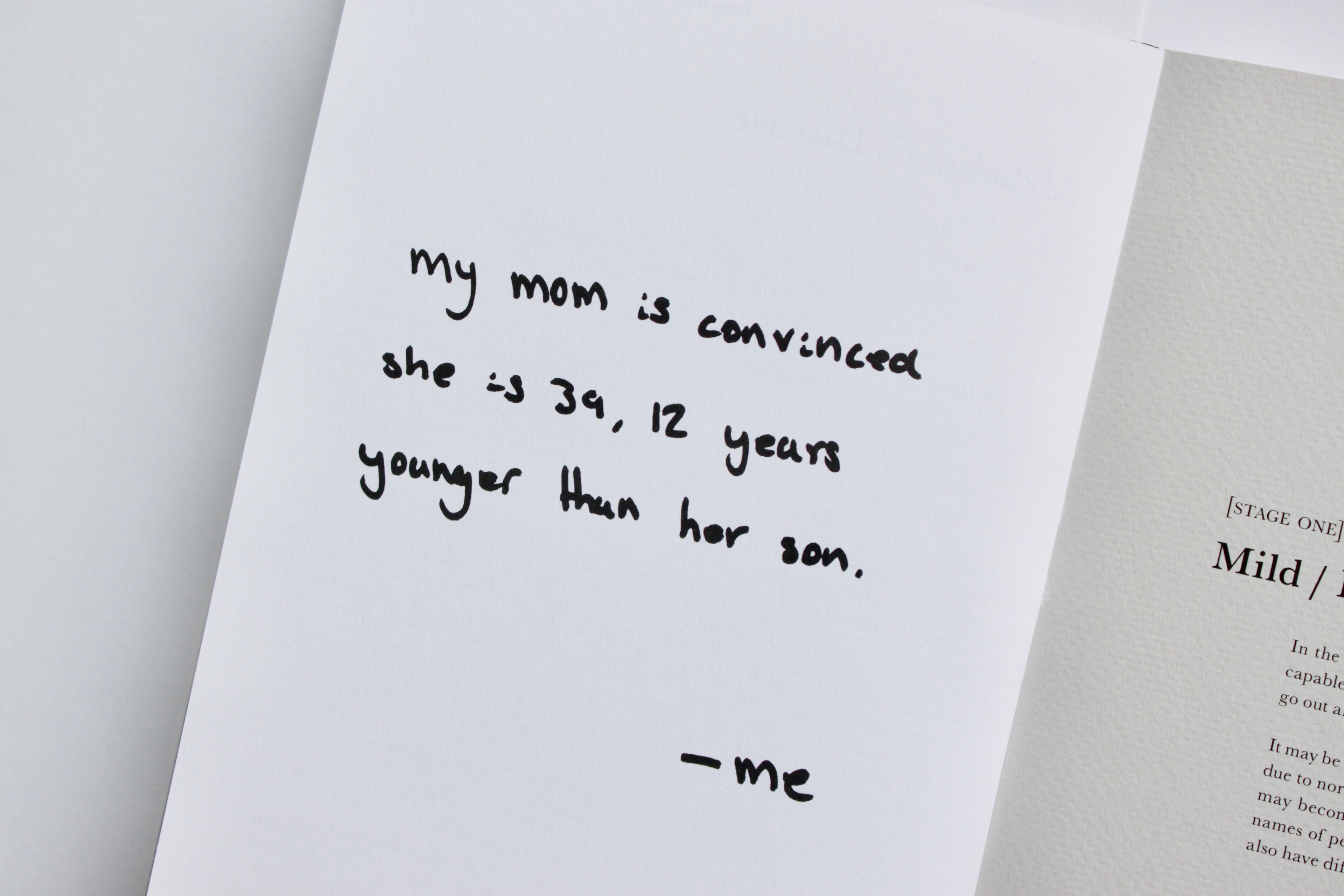
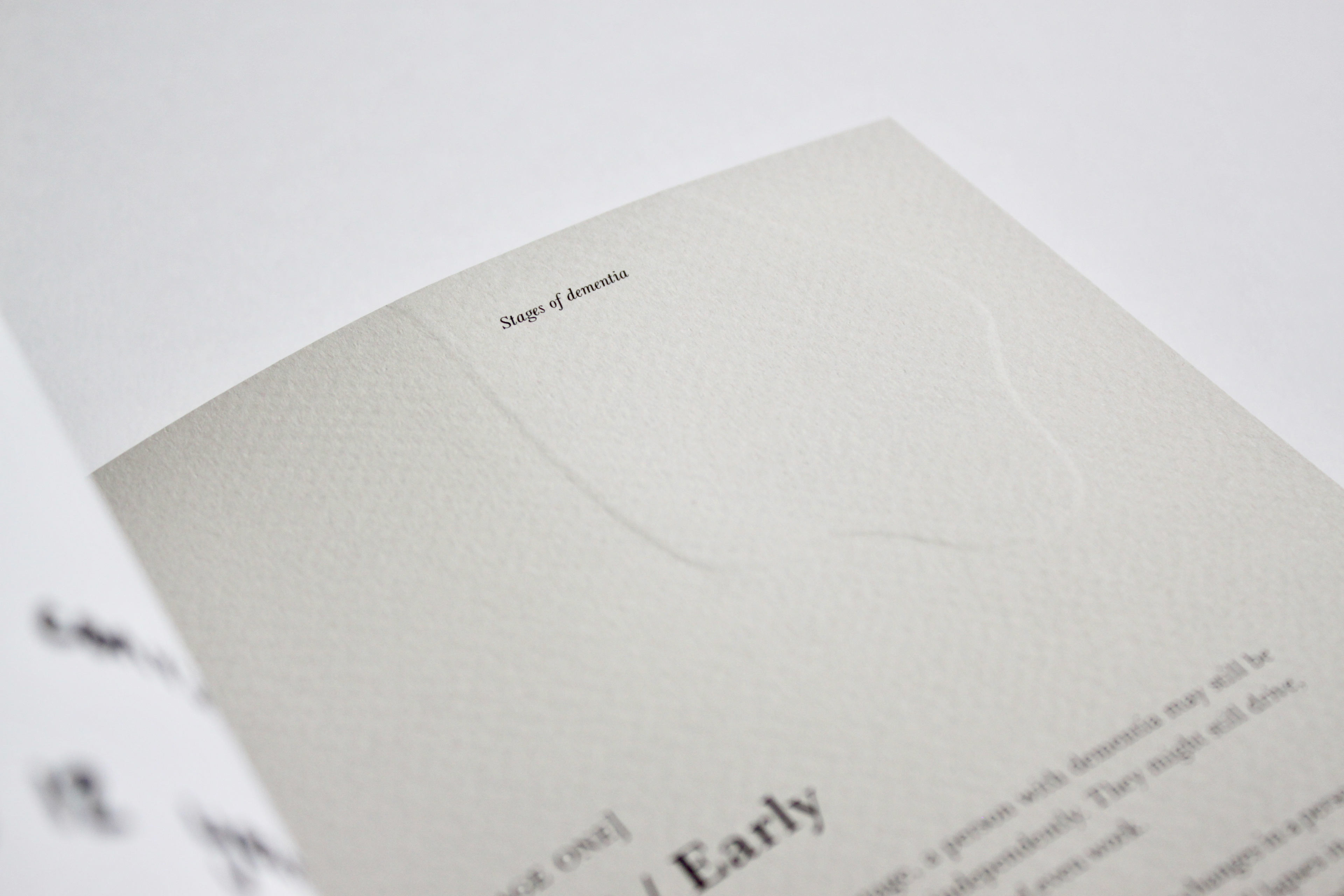
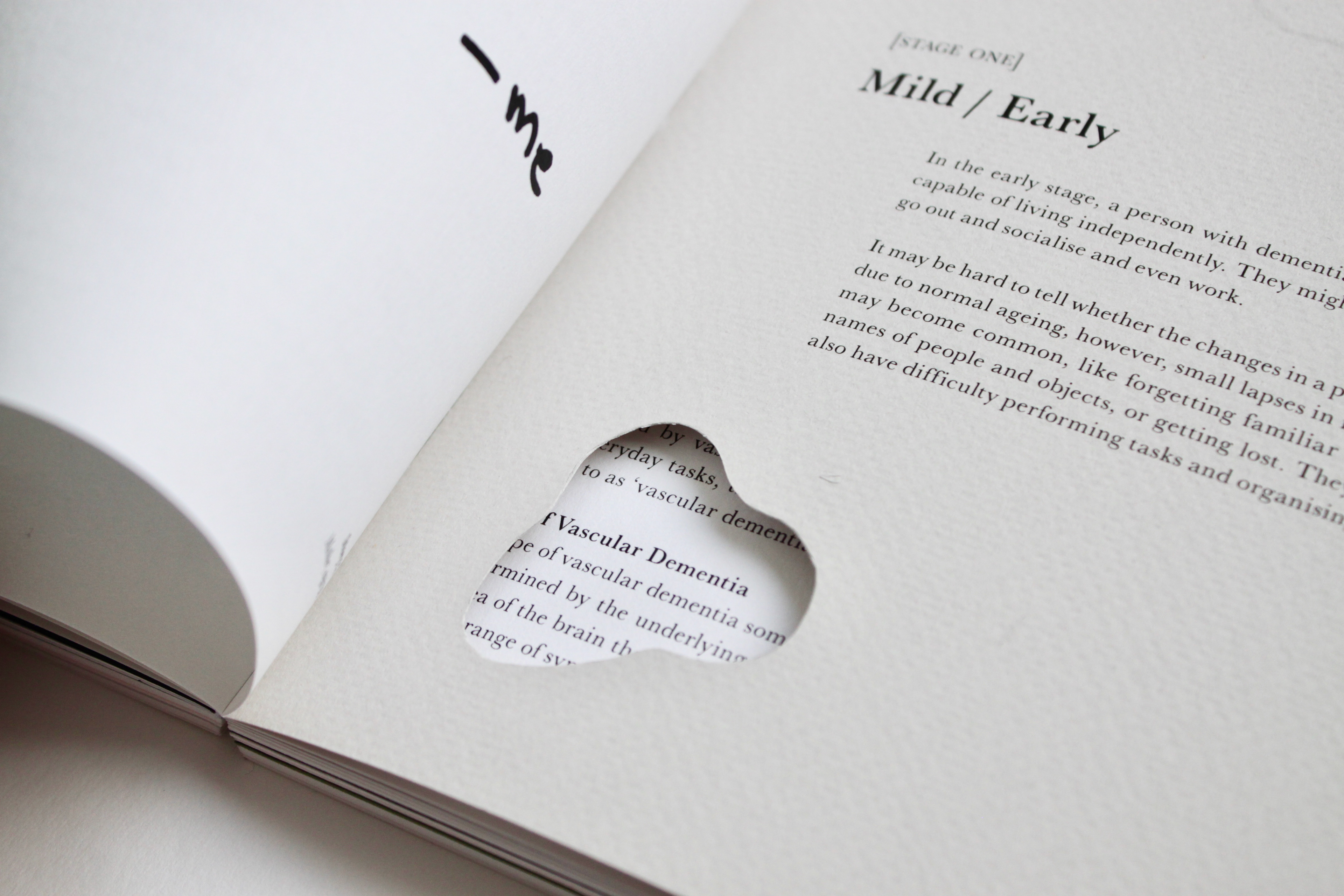
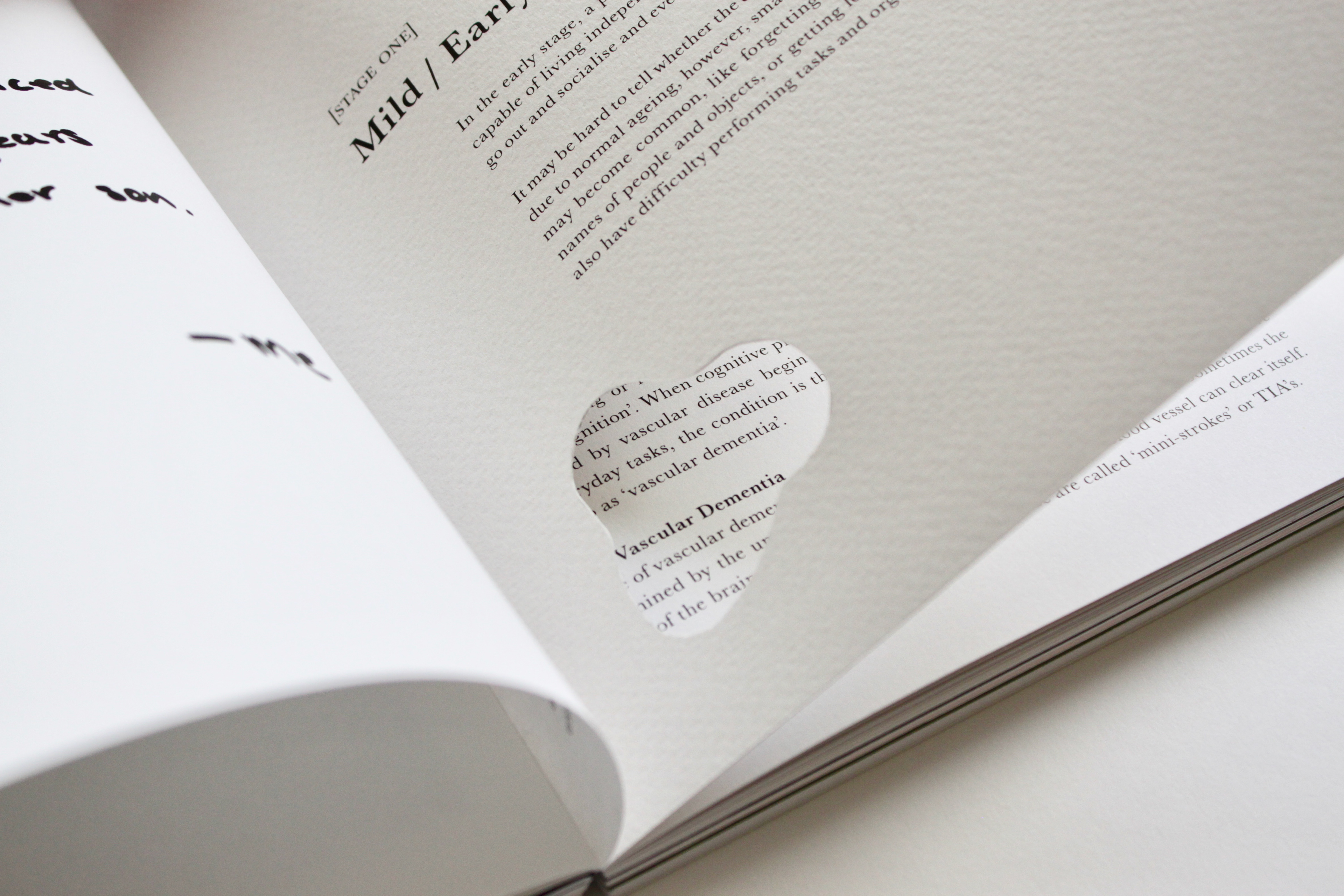
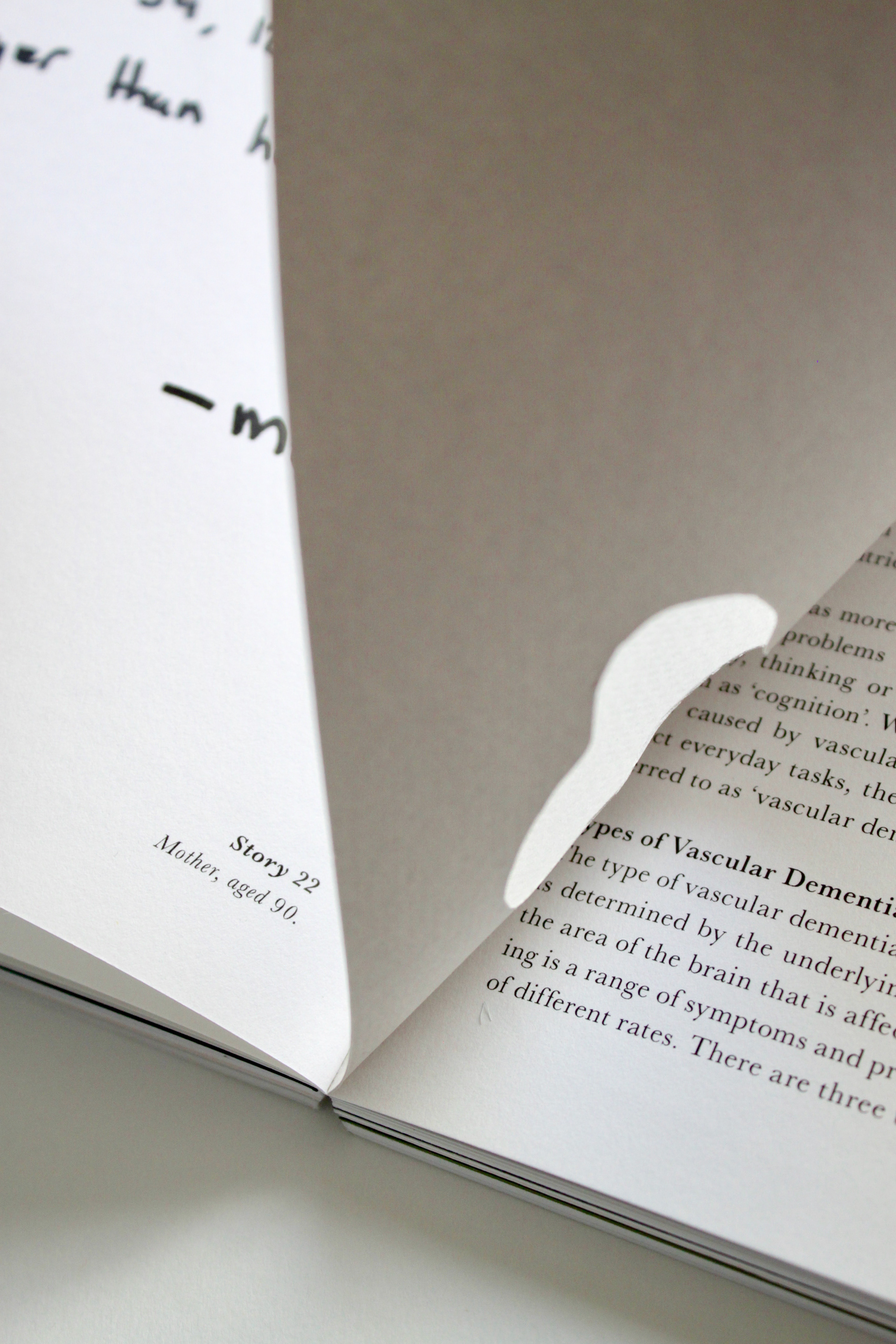
-
"My Mum is convinced she is 39, 12 years younger than her Son - me"
Mother, aged 90
-
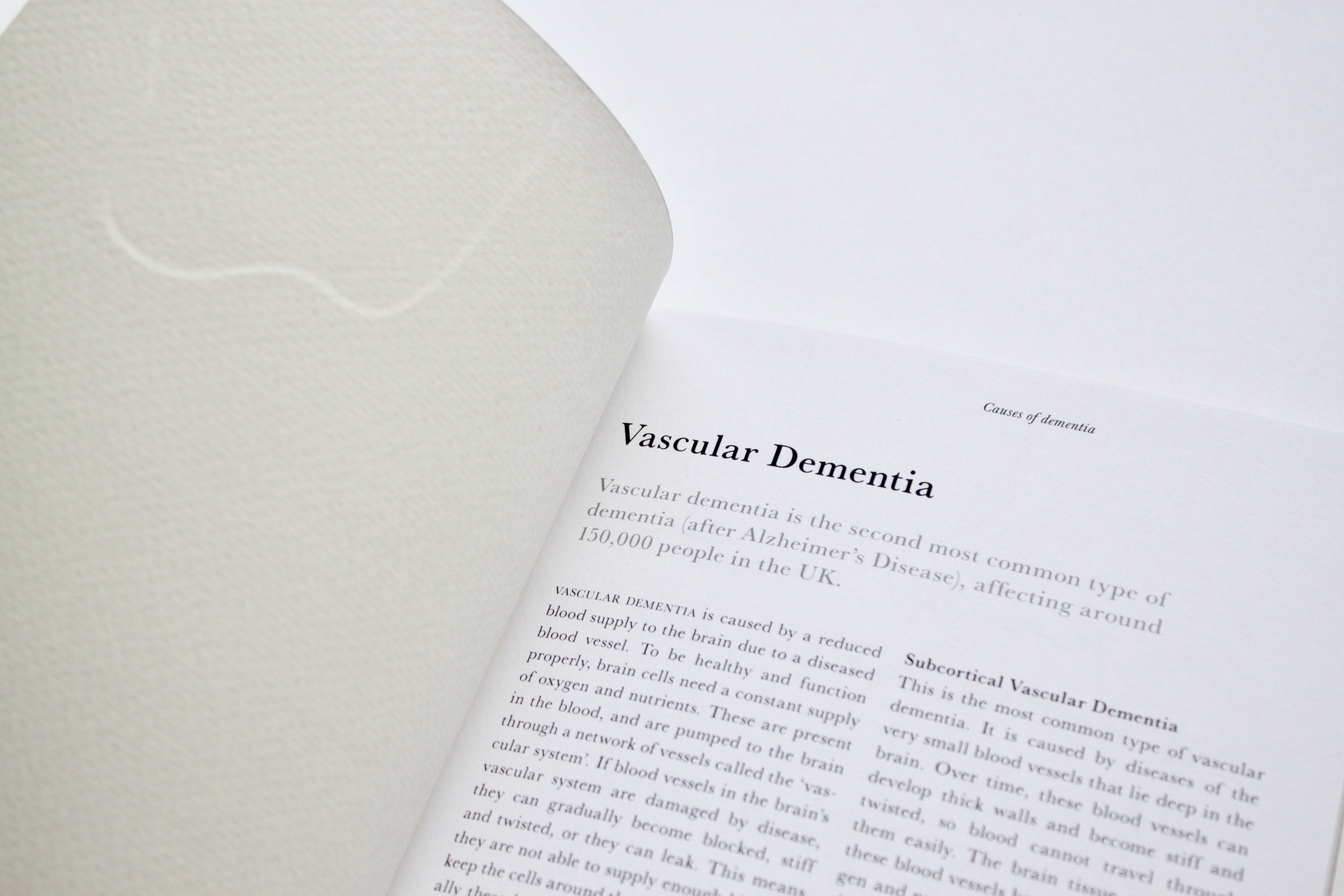
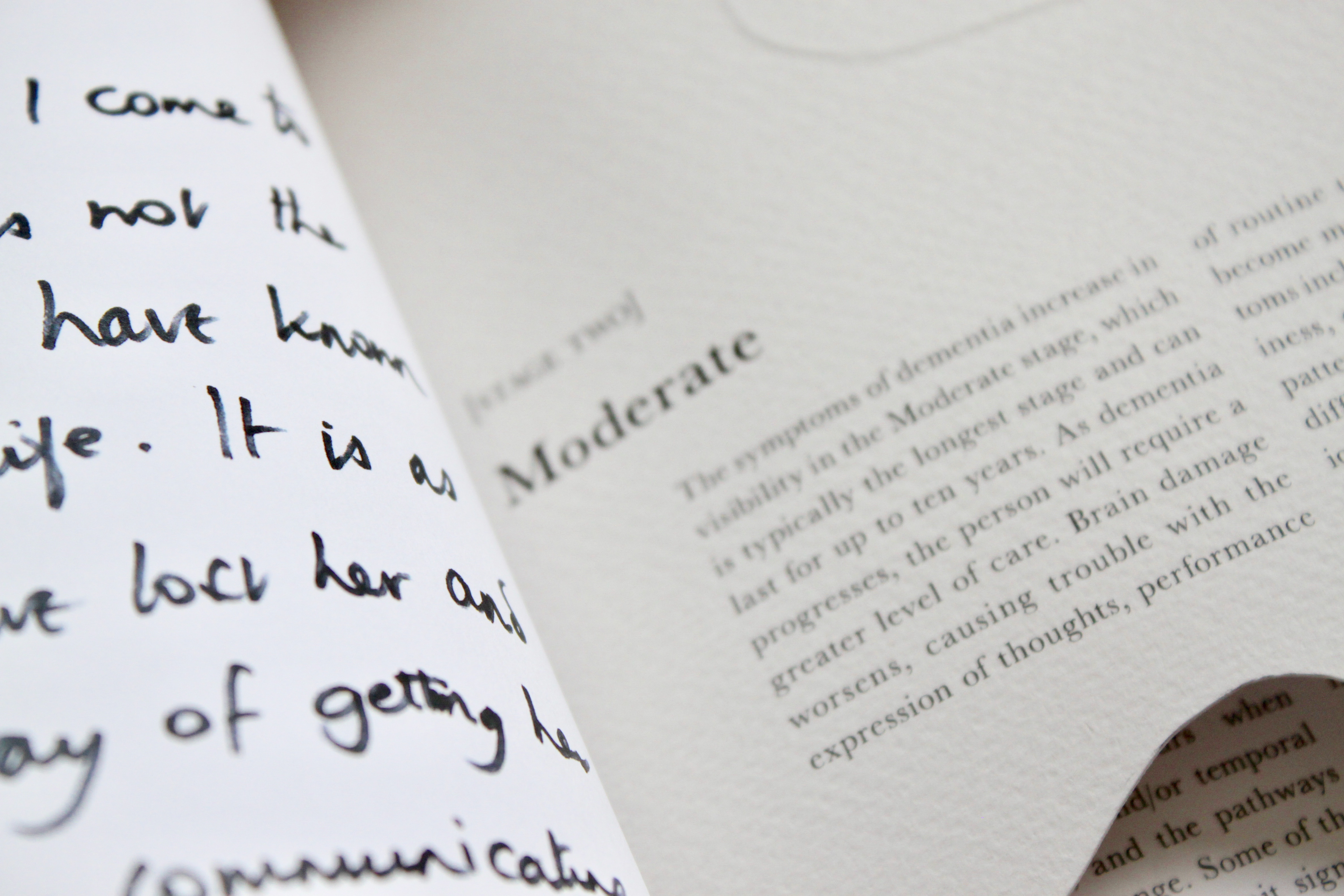
-
"The person that I come to visit now is not the Mother that I have known for all my life. It is as though I have lost her and have no way of getting her back..."
-
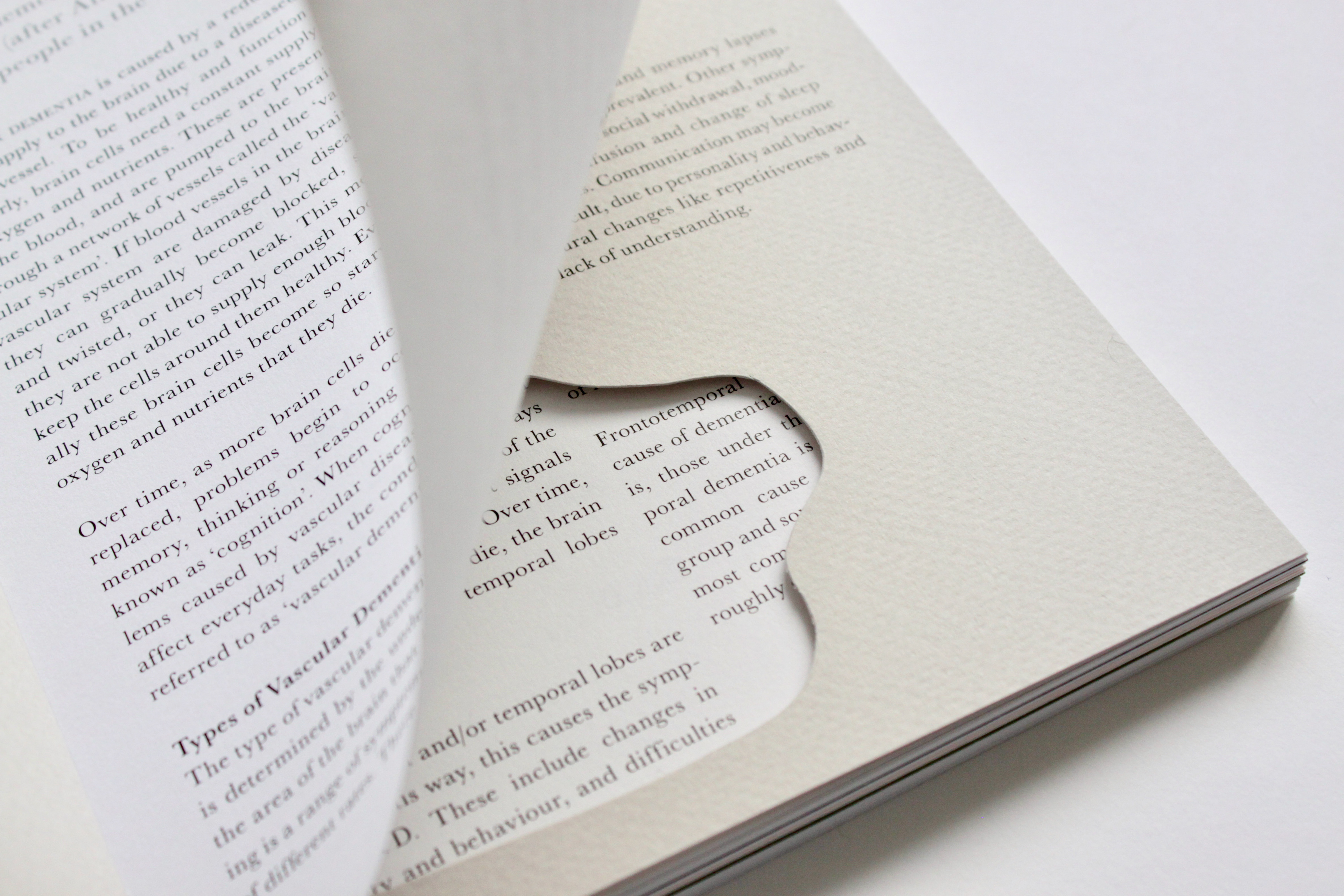
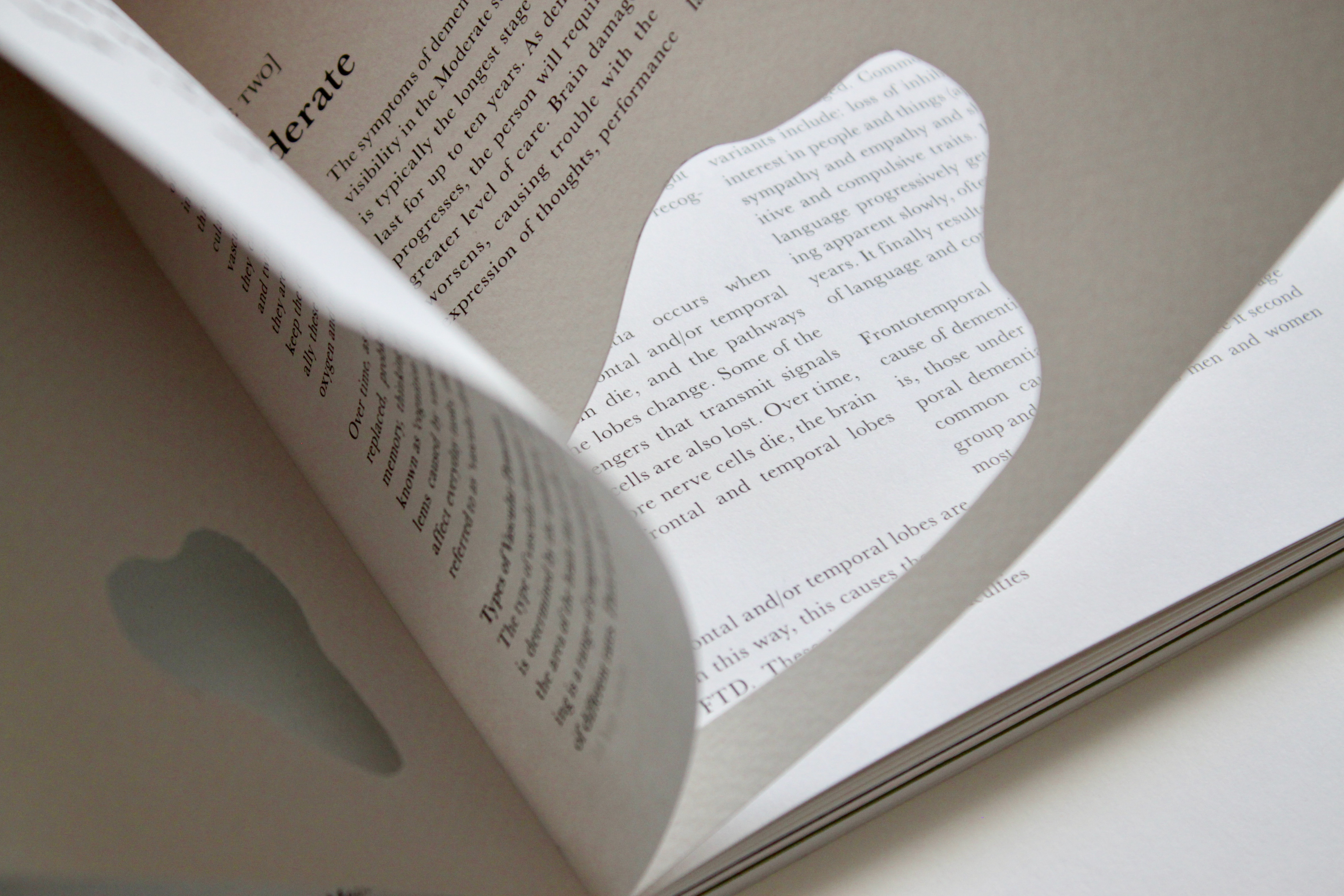
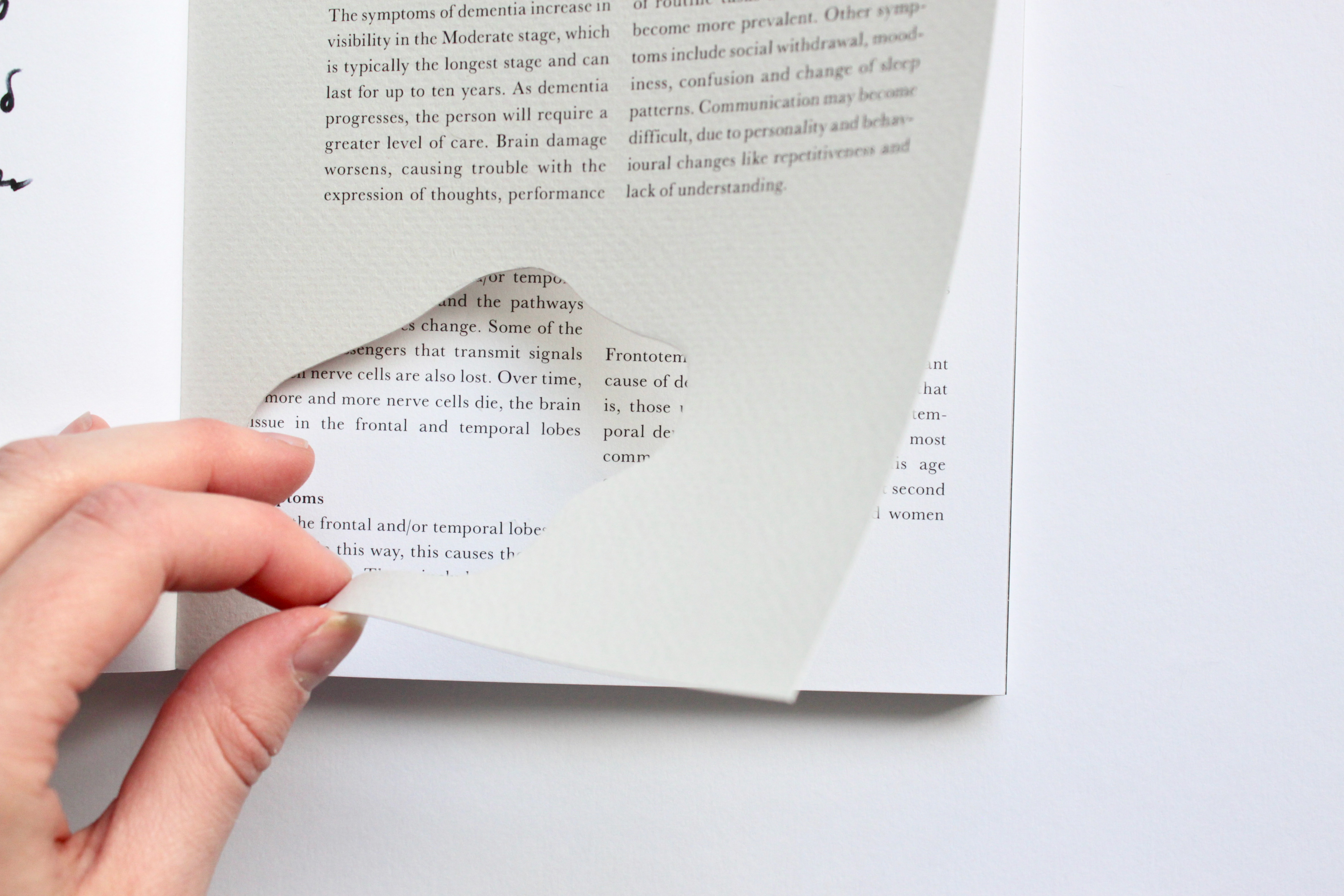

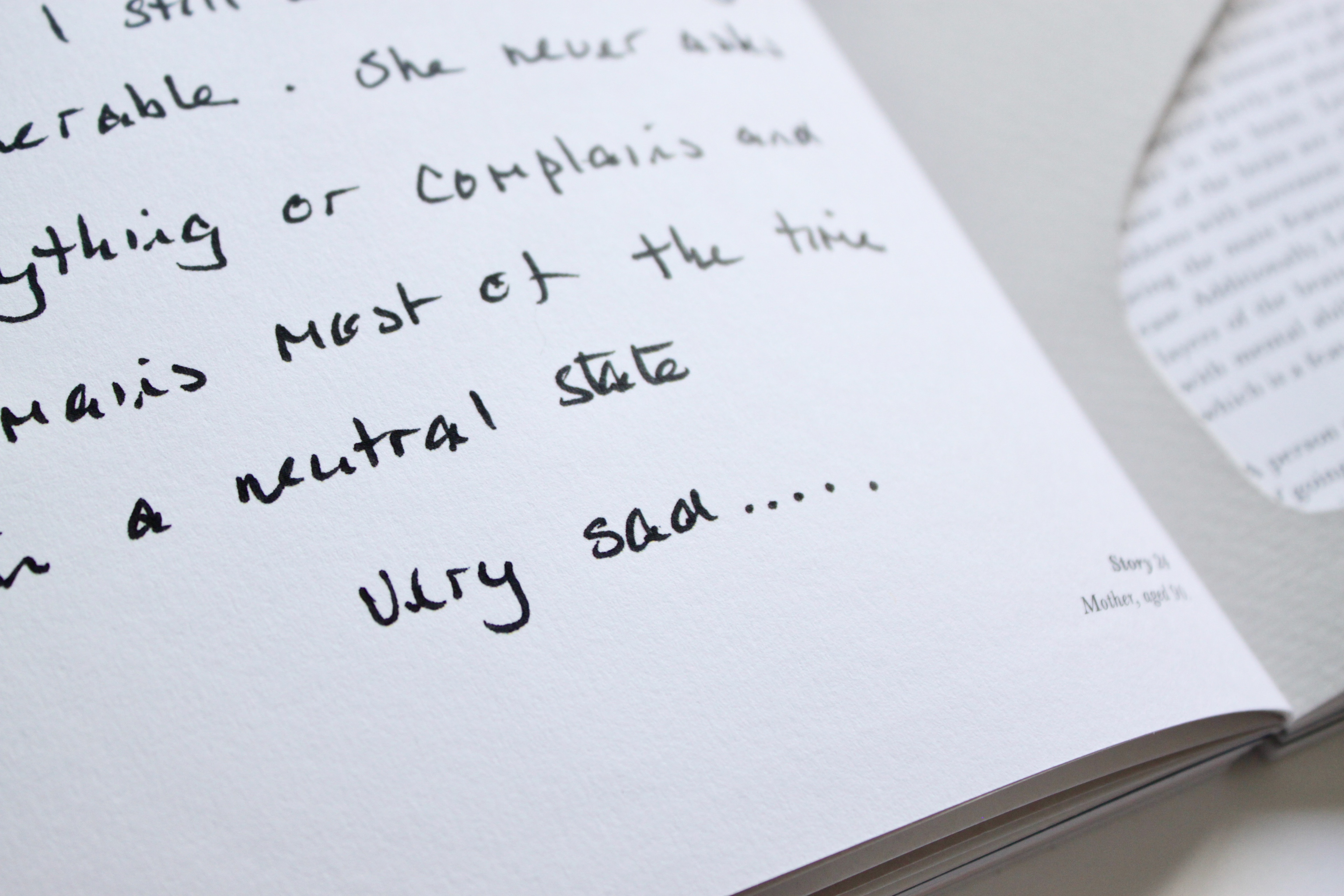
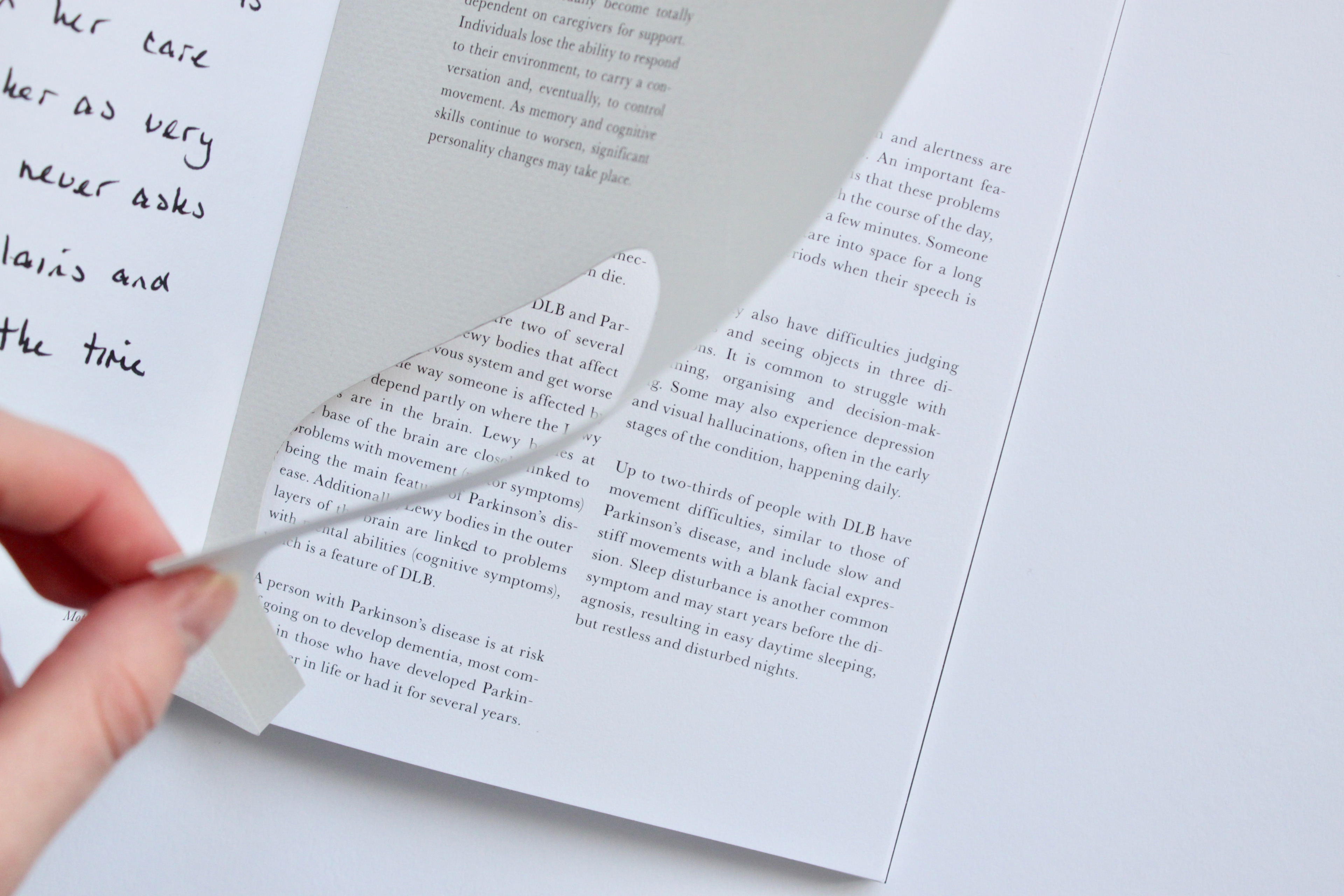
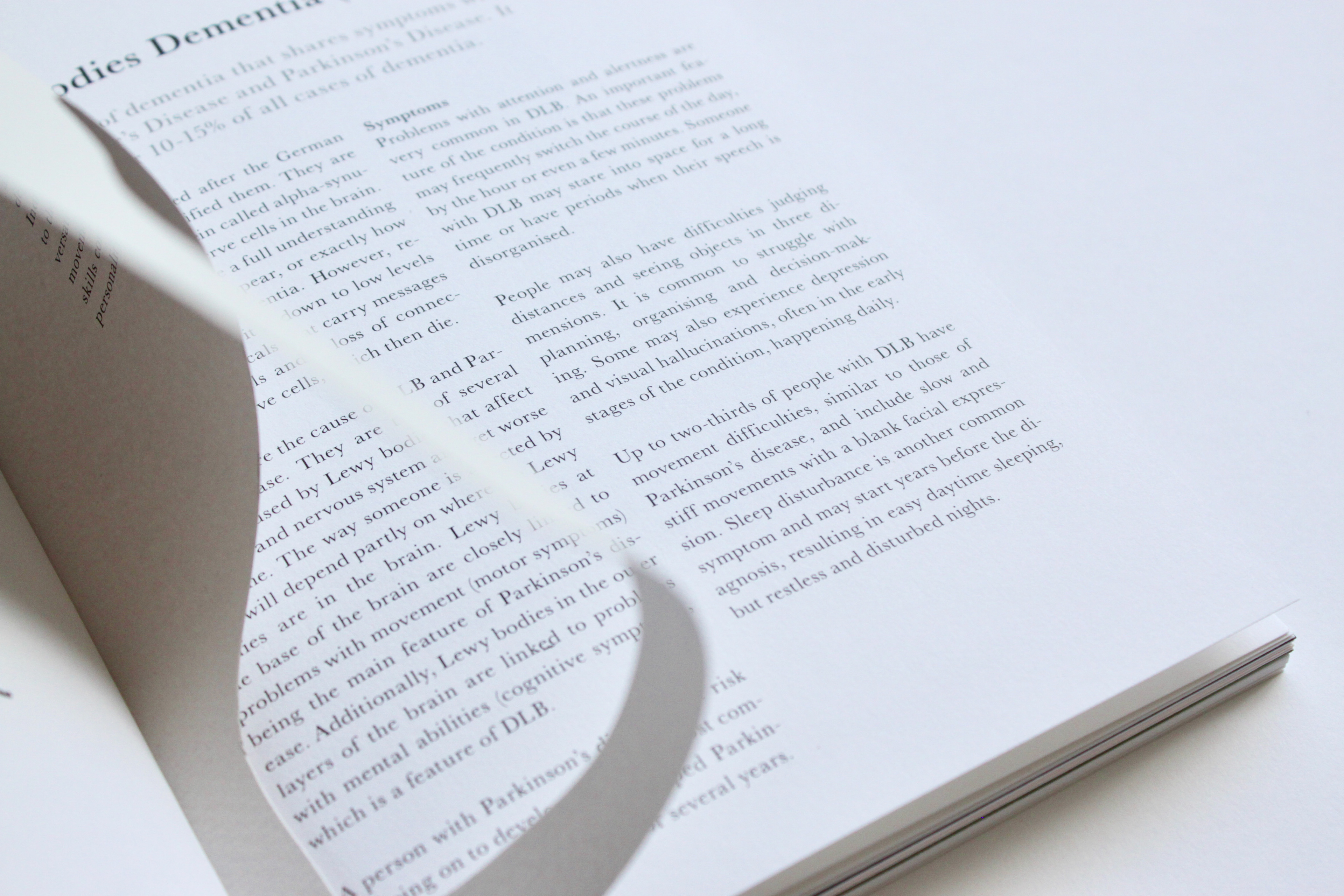
As the holes gradually increase in the size, the fragility and delicacy of the pages also increases, causing the reader to be more cautious and protective over the publication. This is similar in the case of individuals caring for loved ones in the later stages of dementia - they become increasingly more fragile and therefore require a lot more care and protection.
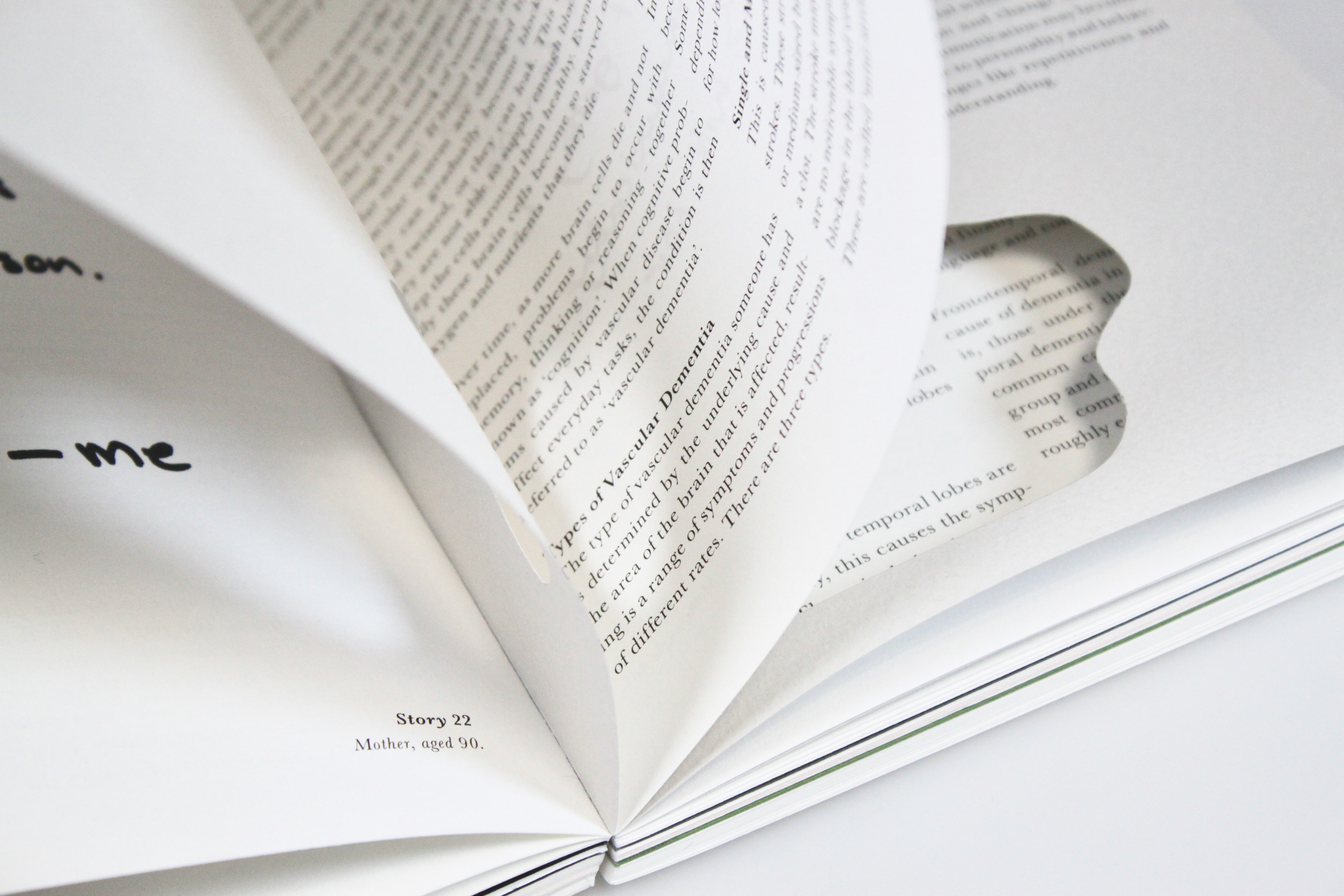

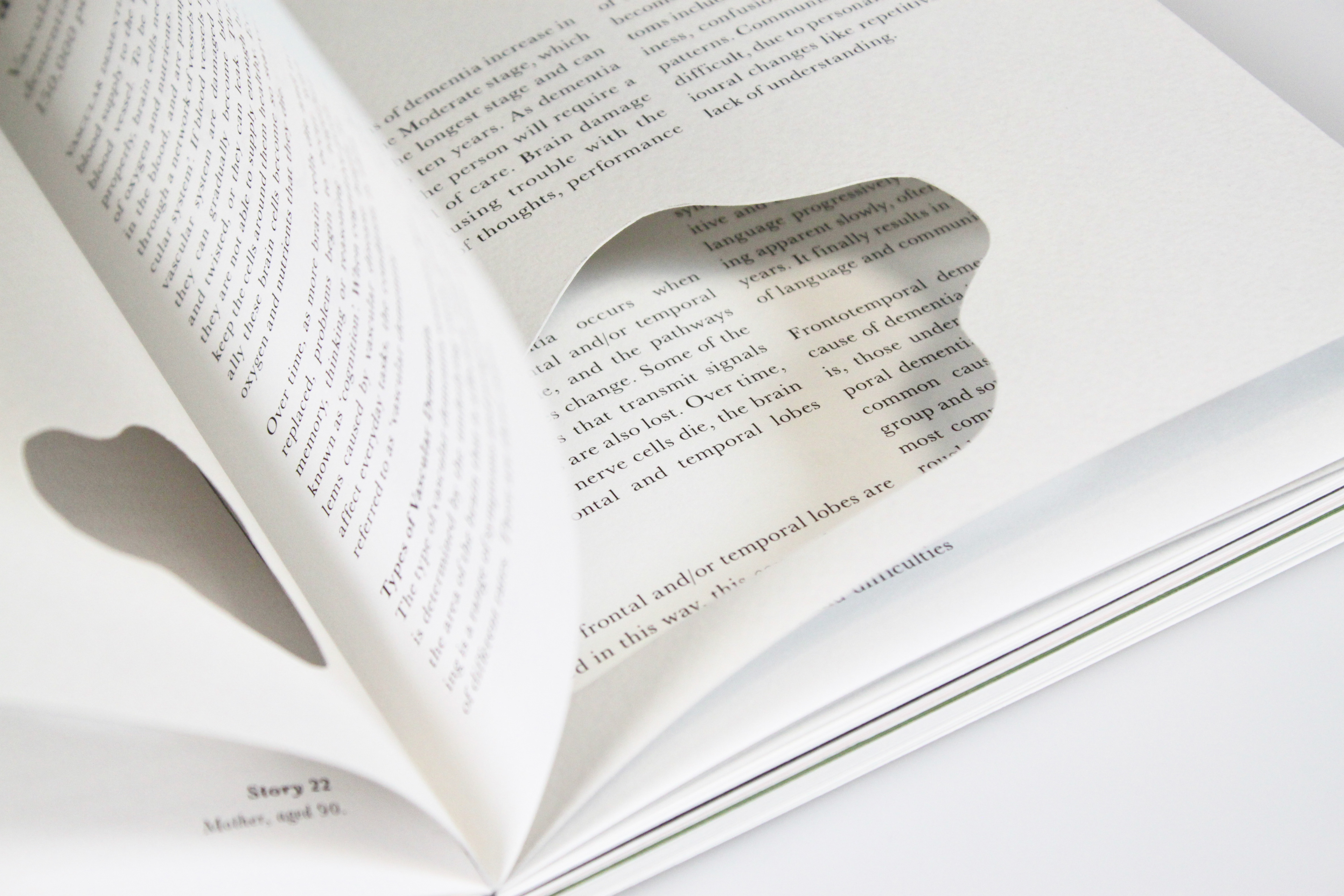

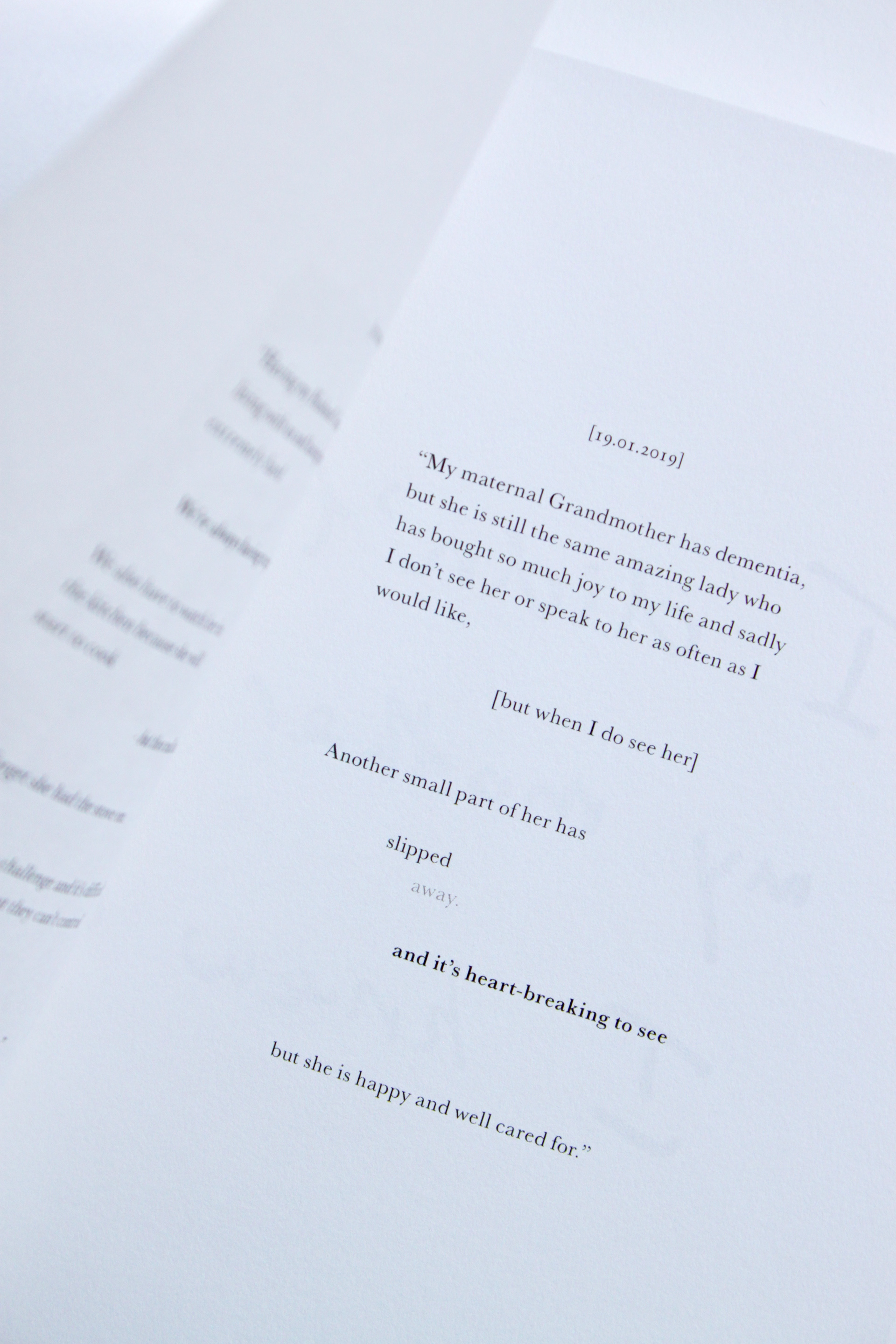
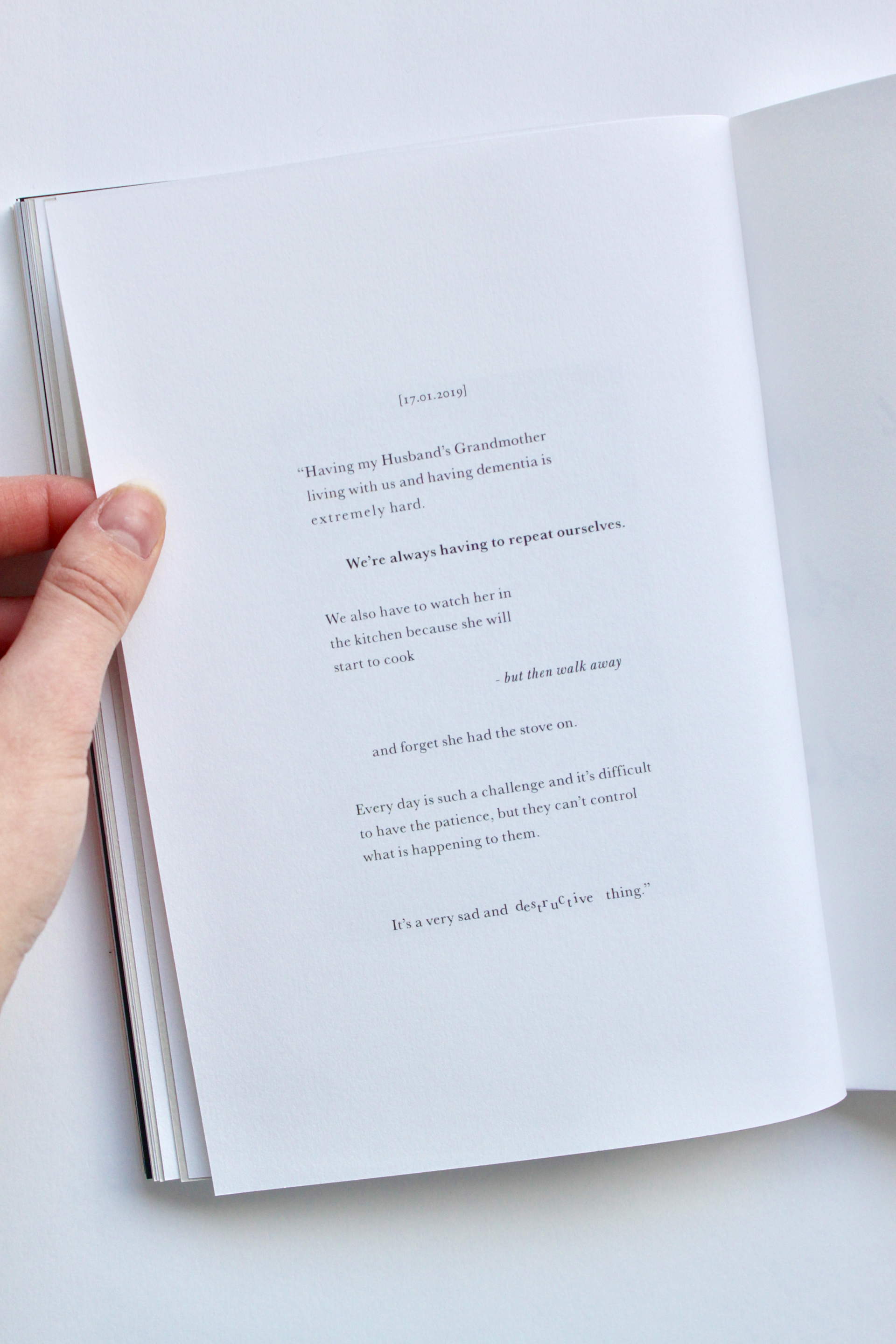
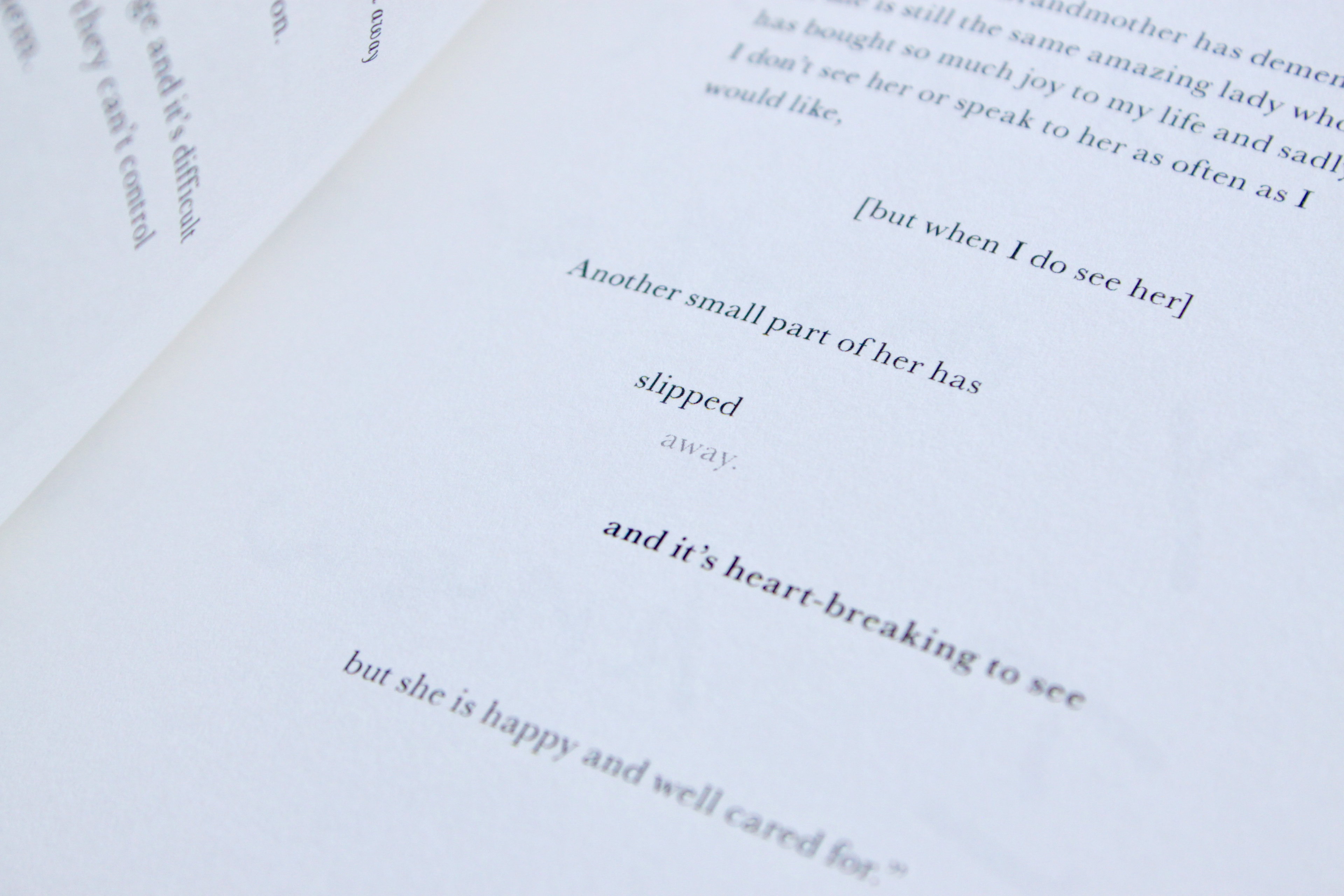
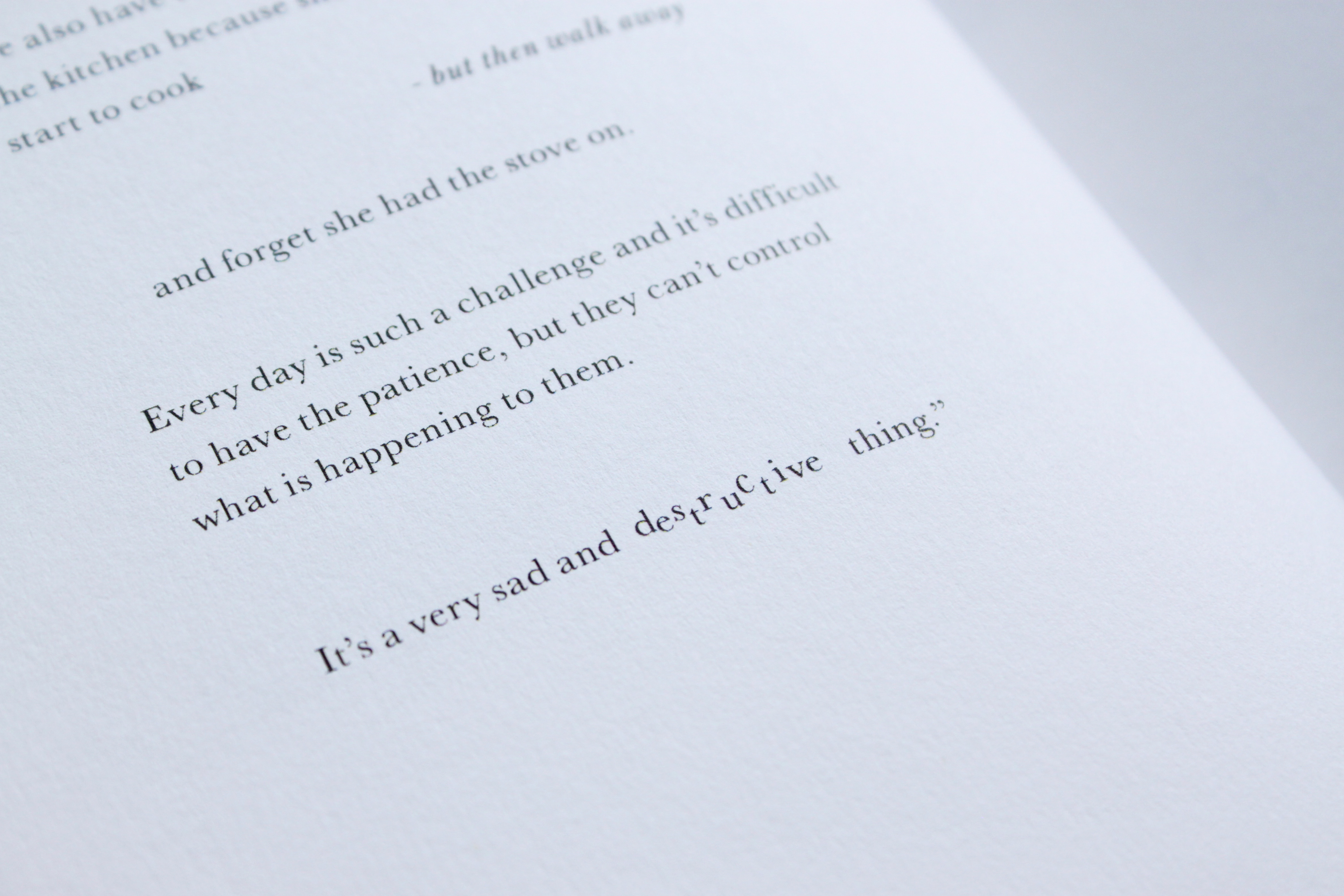
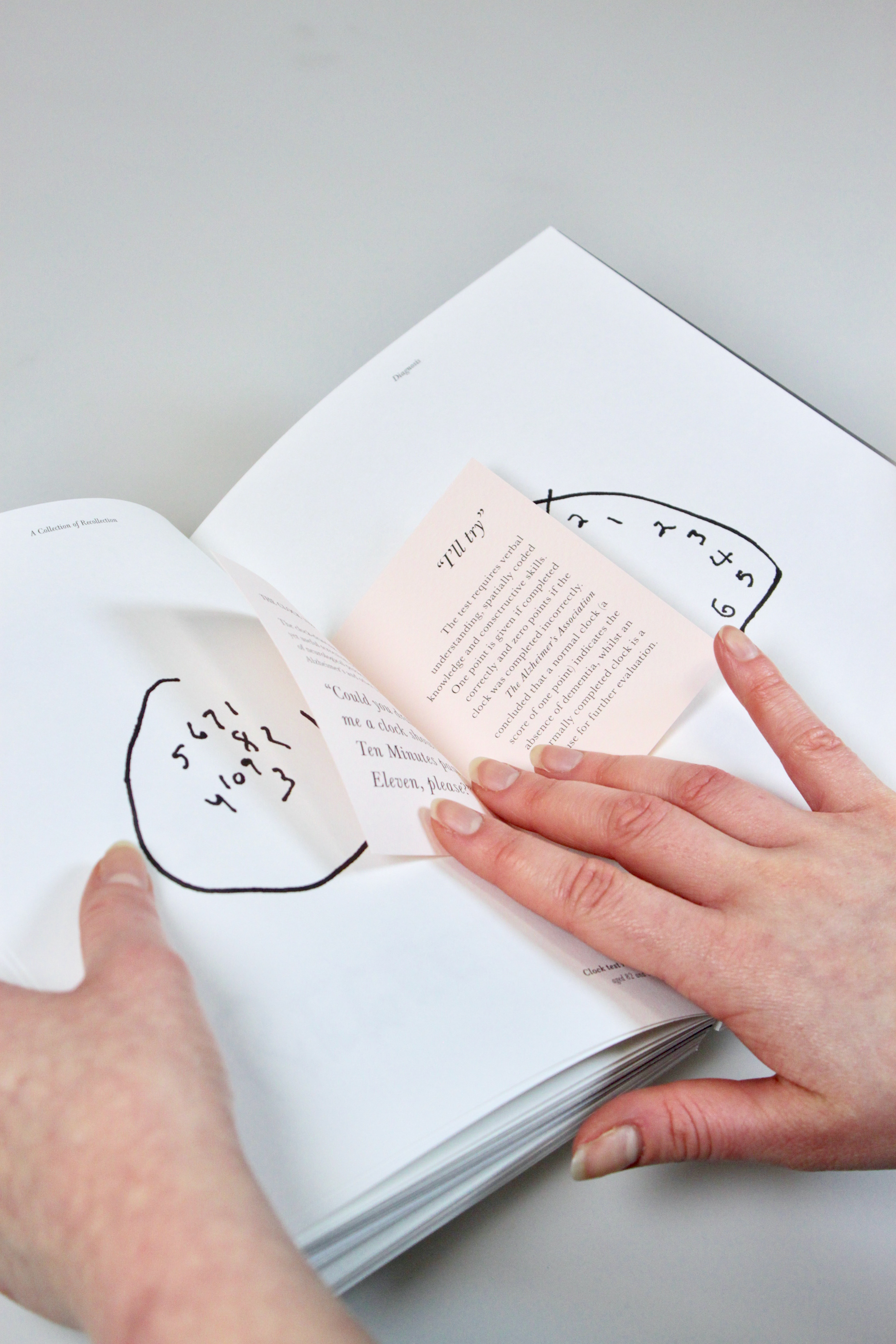
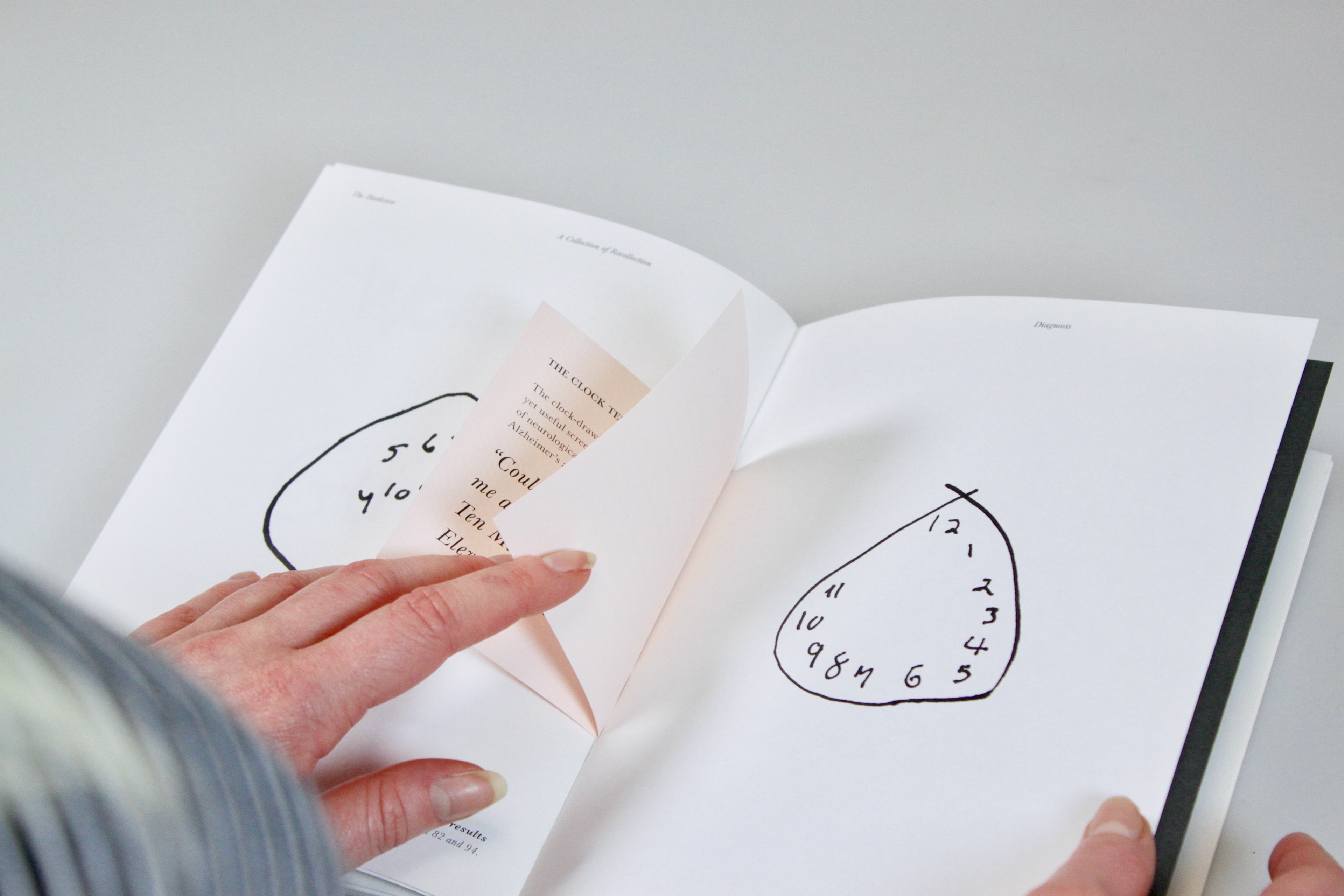
Diagnosis Clock Test
To diagnose dementia a basic clock-test is completed upon a visit to the GP. These results have been sourced from my Grandma's various attempts, and shows her decline and how much time can make a difference. The small tip-in alludes a doctors file, containing results, descriptions of the test and the communication that occurred at the appointment.
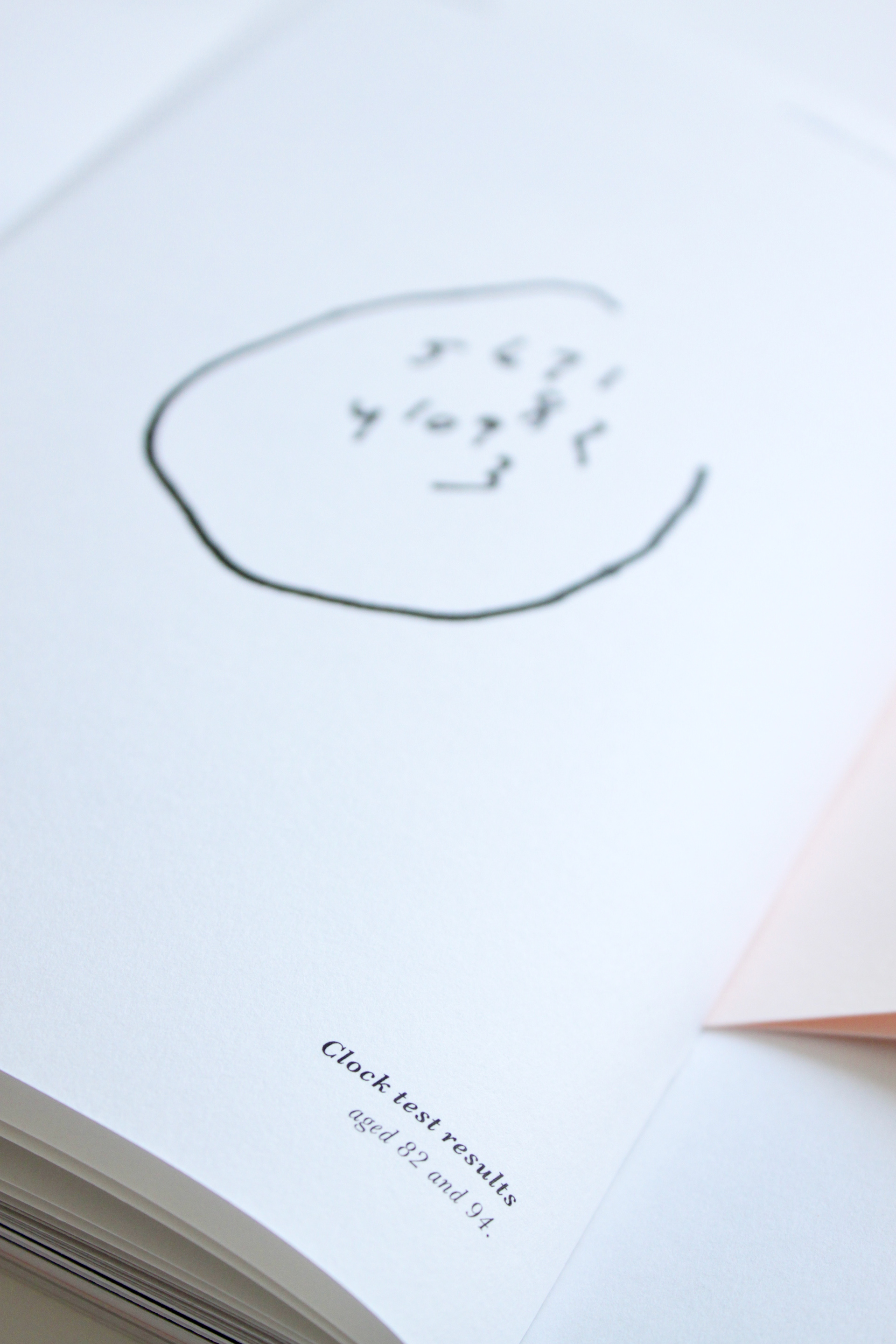
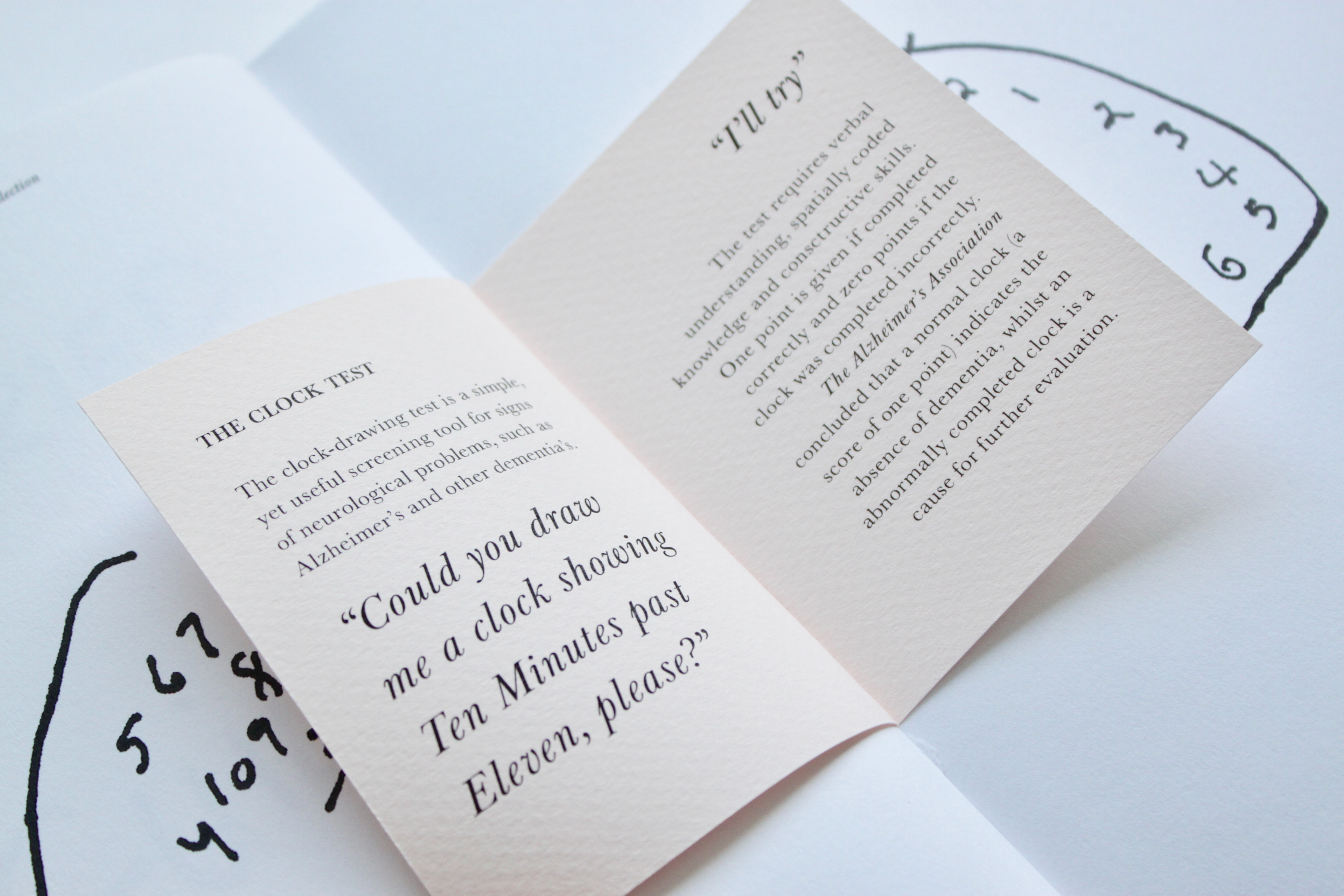
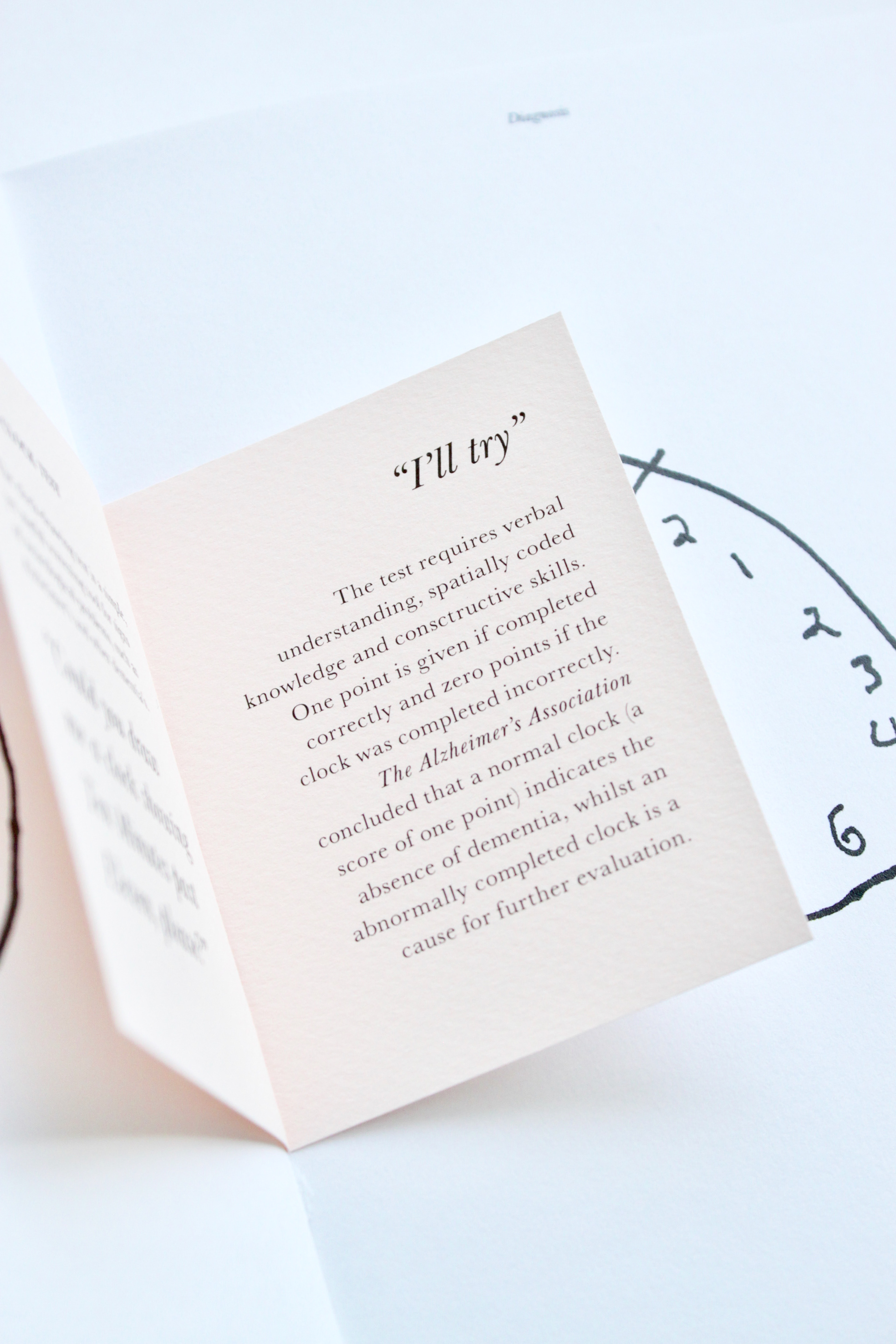
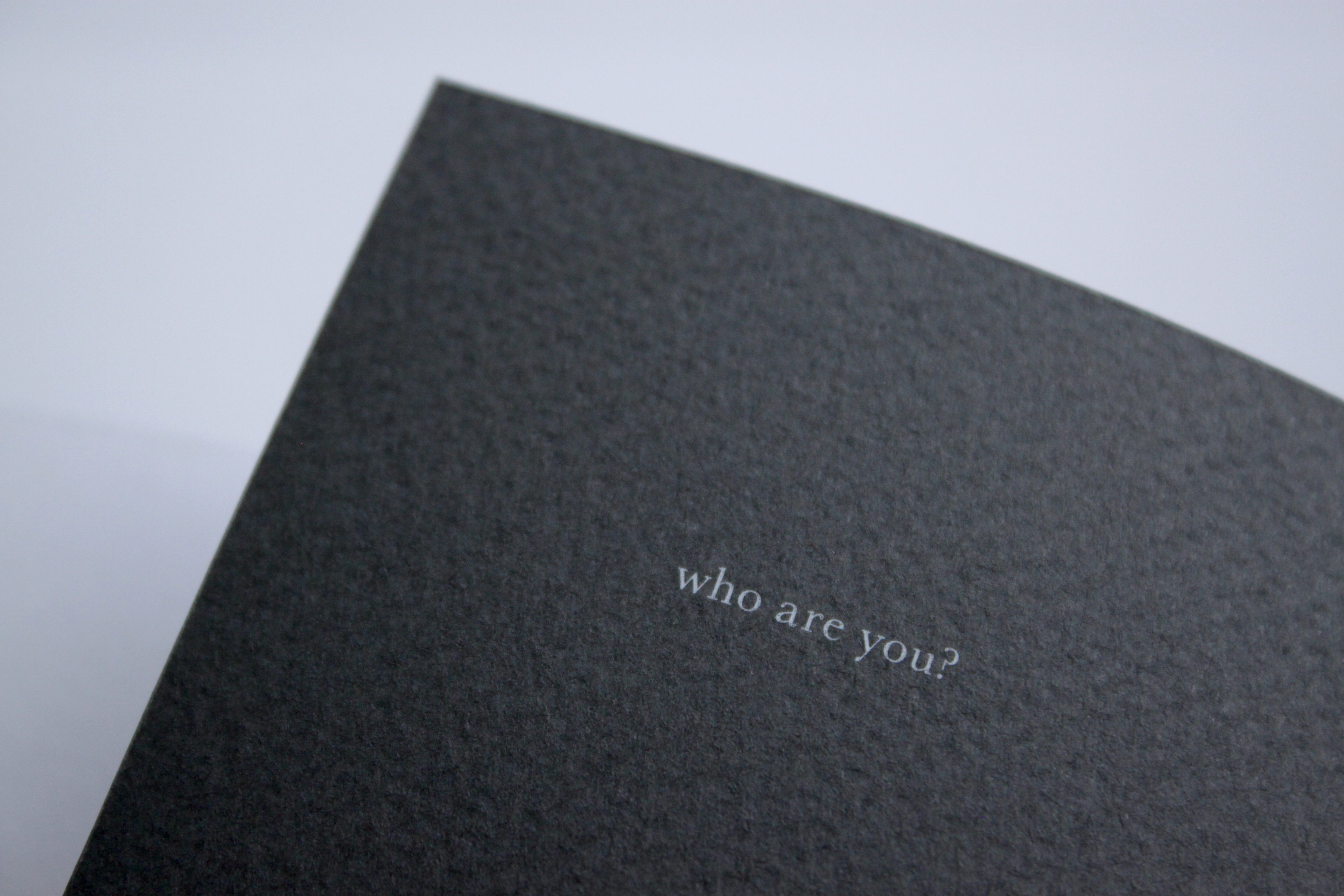
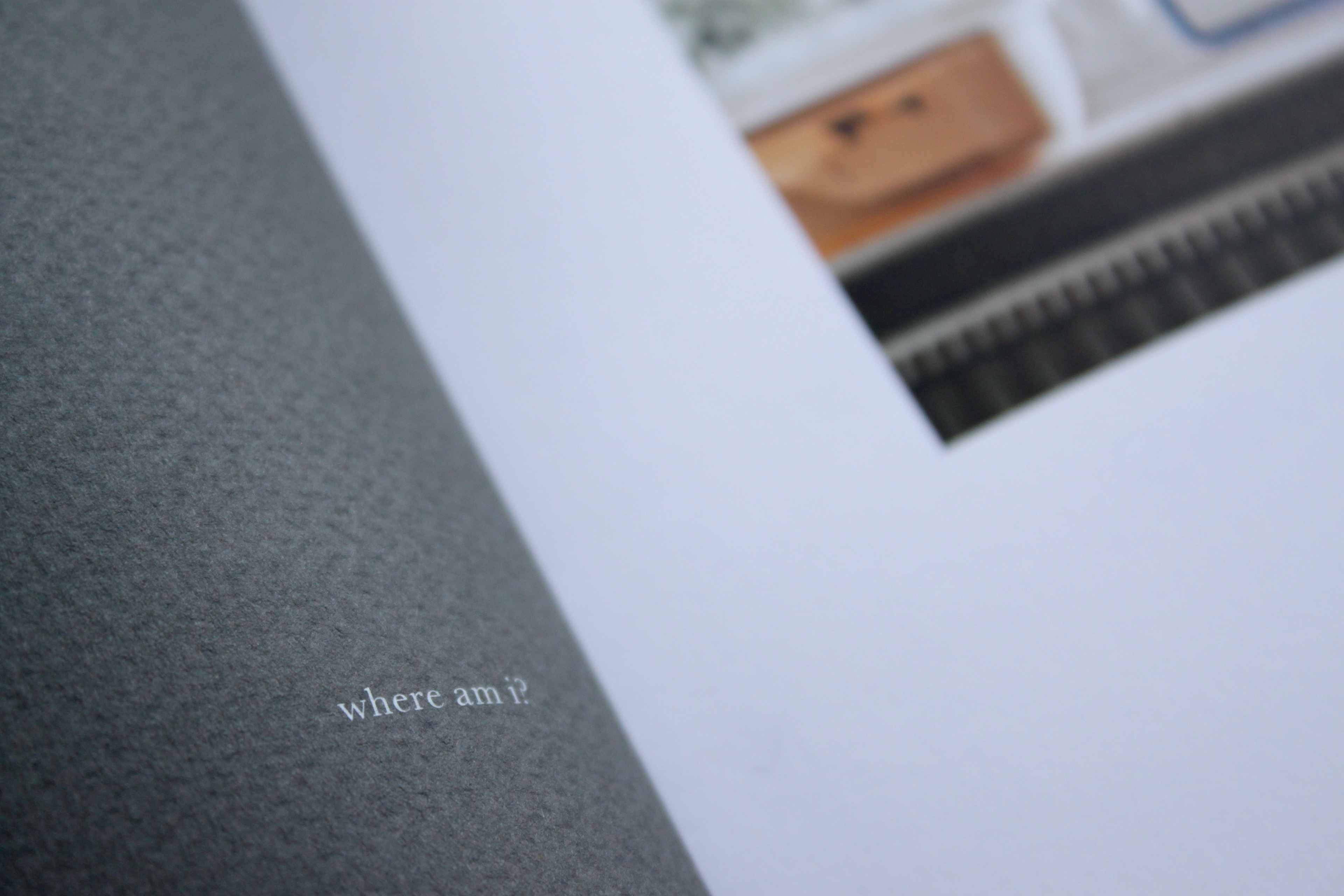
Writing sourced from a family friendly who suffers with dementia. The words are responses to the simple question "How do you feel?". The shake and movement of the handwriting link with the defined feelings. Again, the misspelling and sometimes unreadable words correlates to the gradual loss of ability.
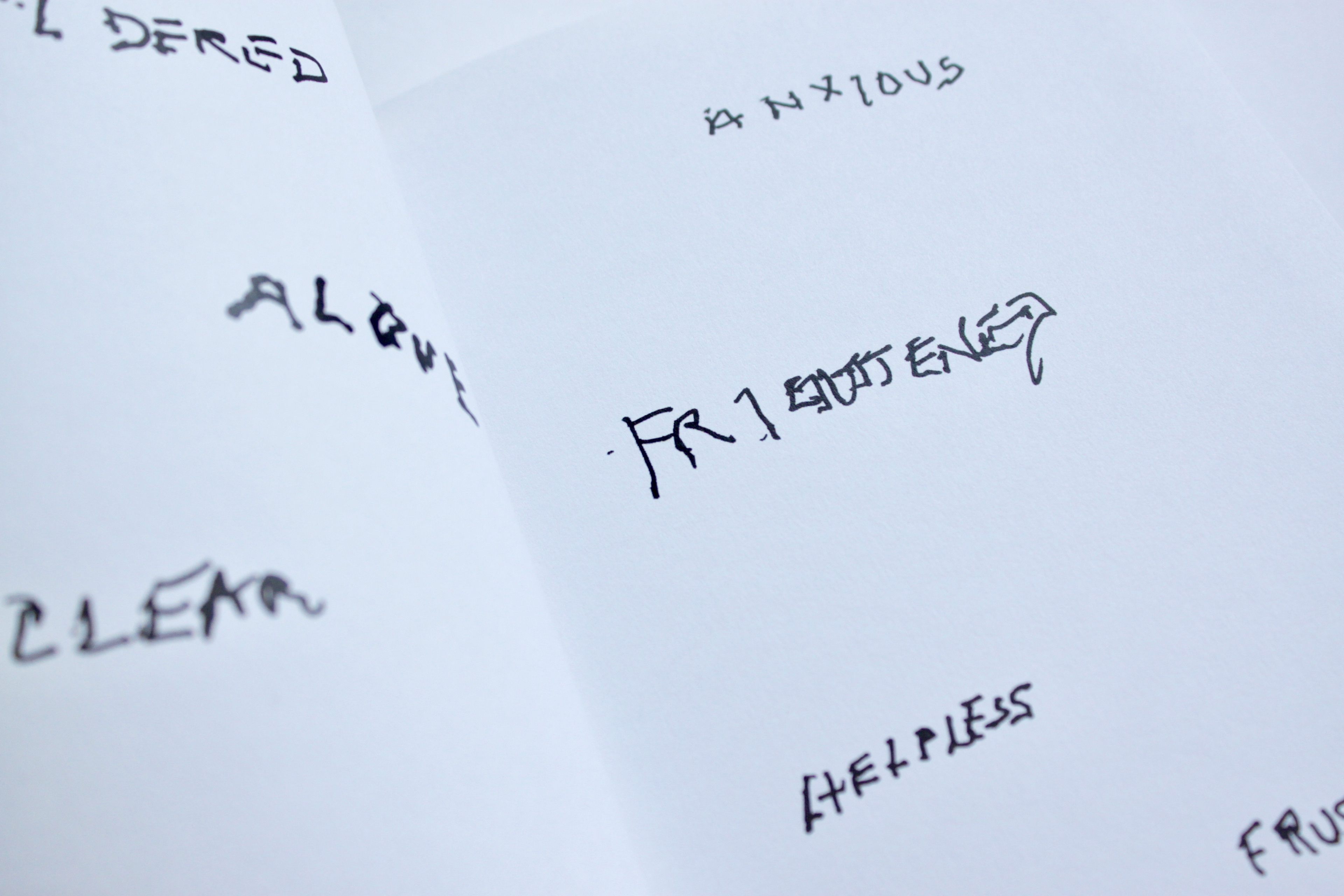
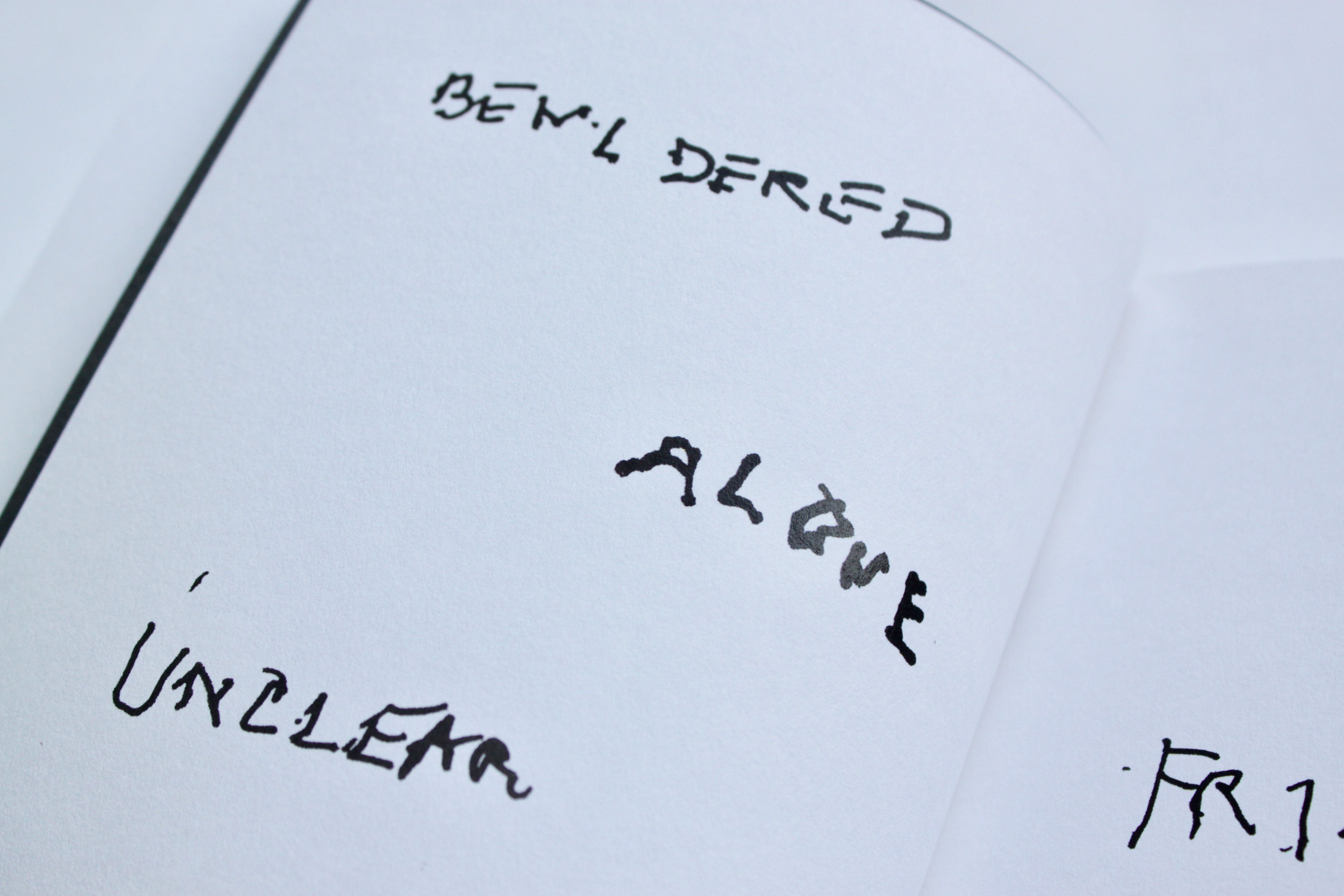
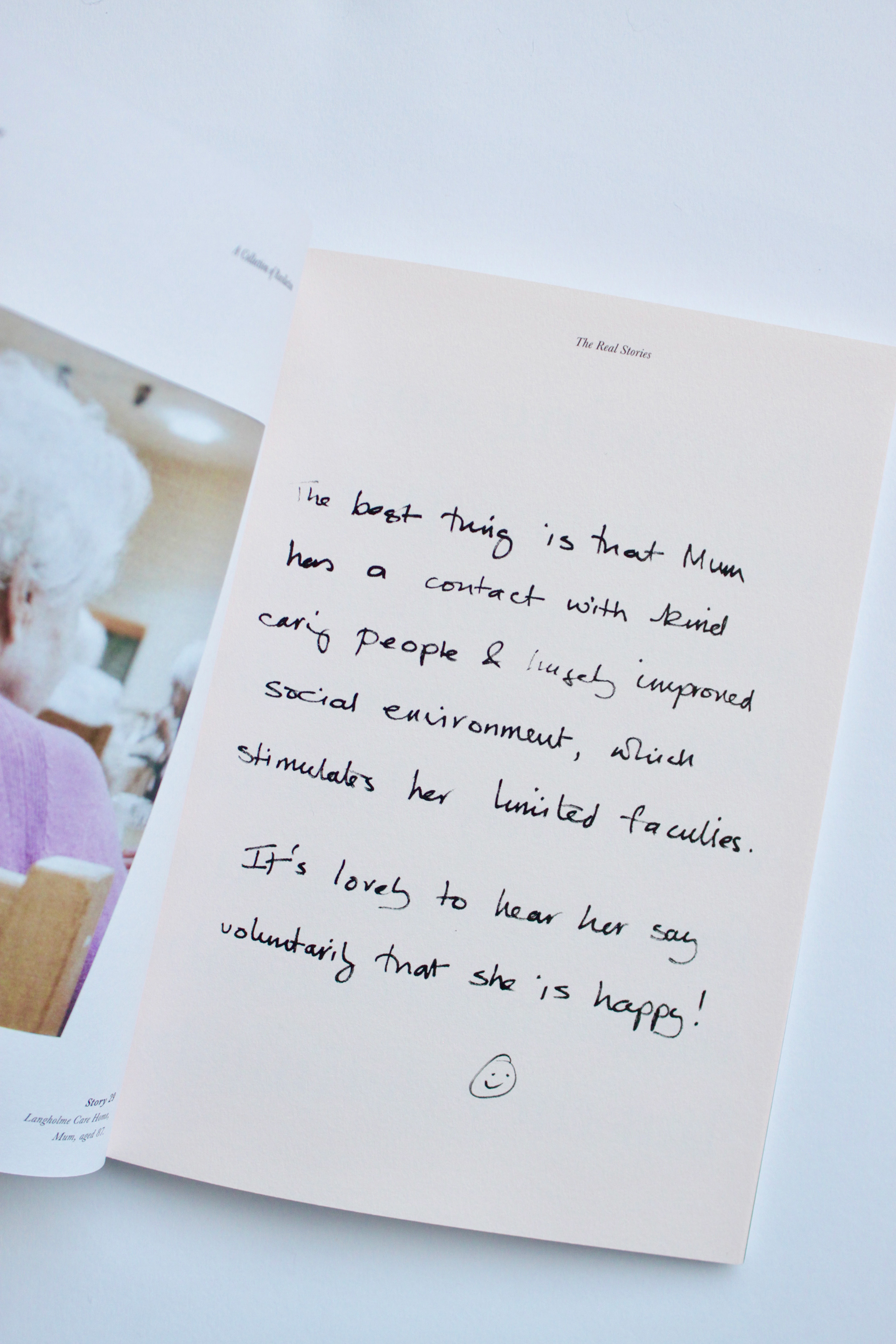
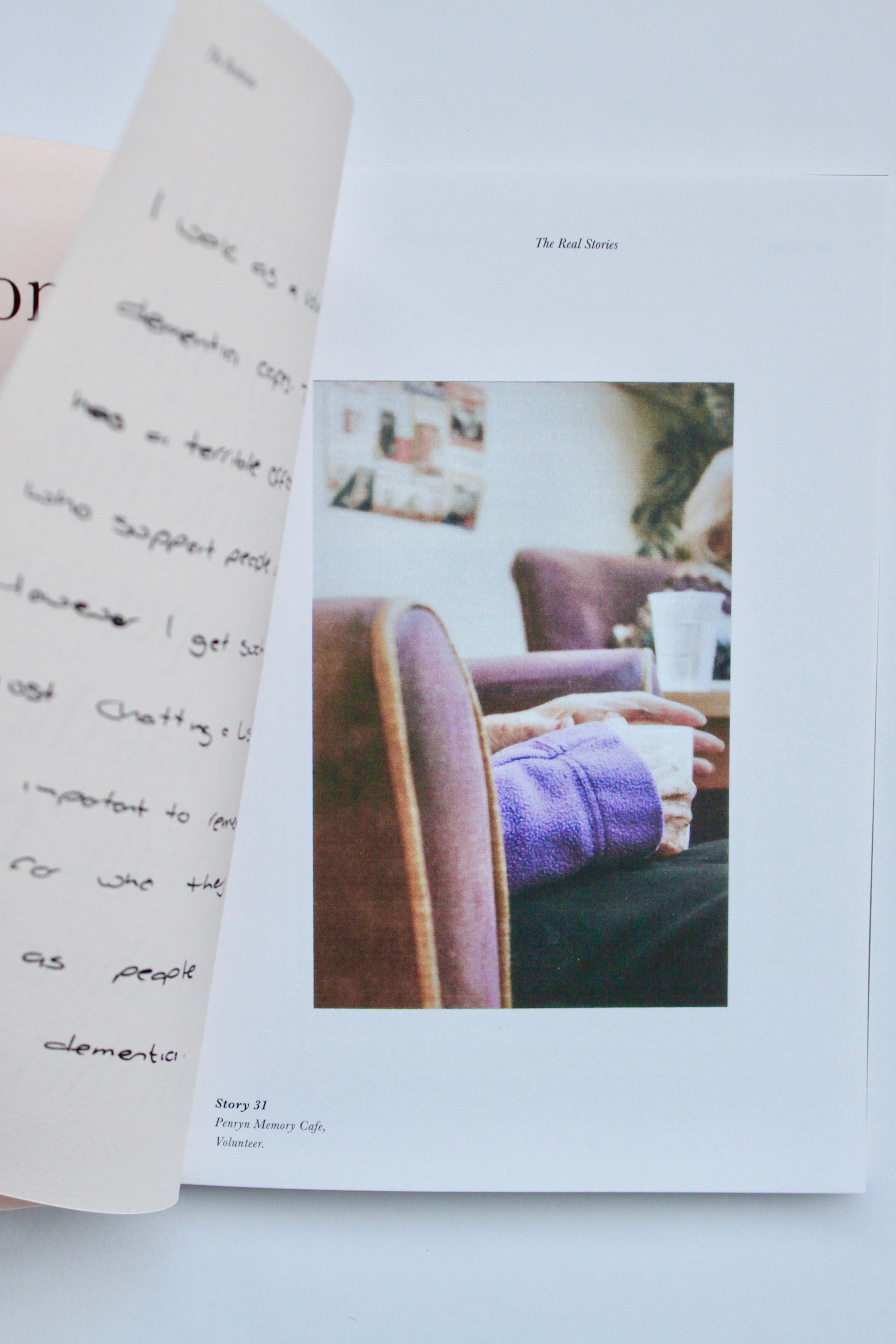
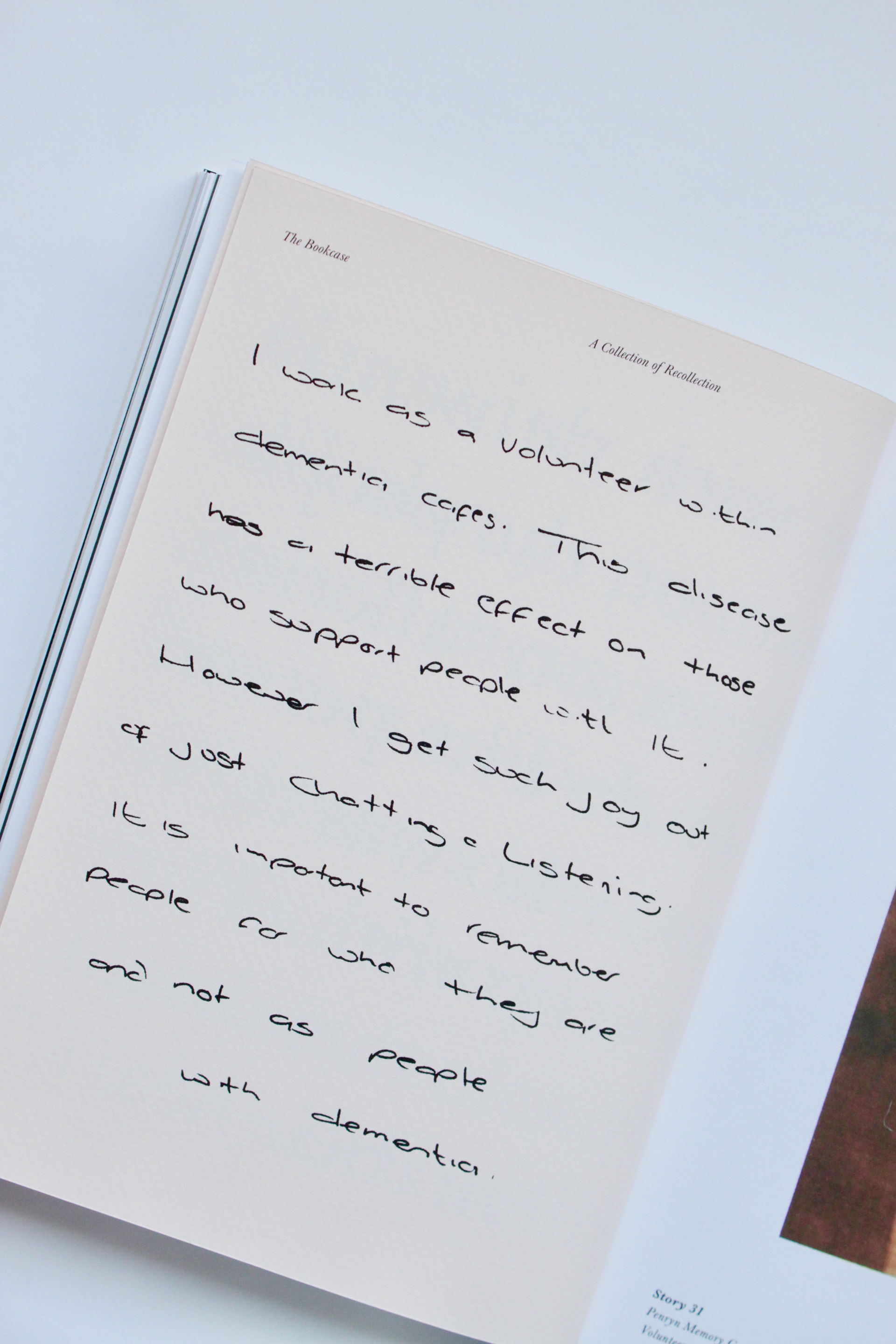
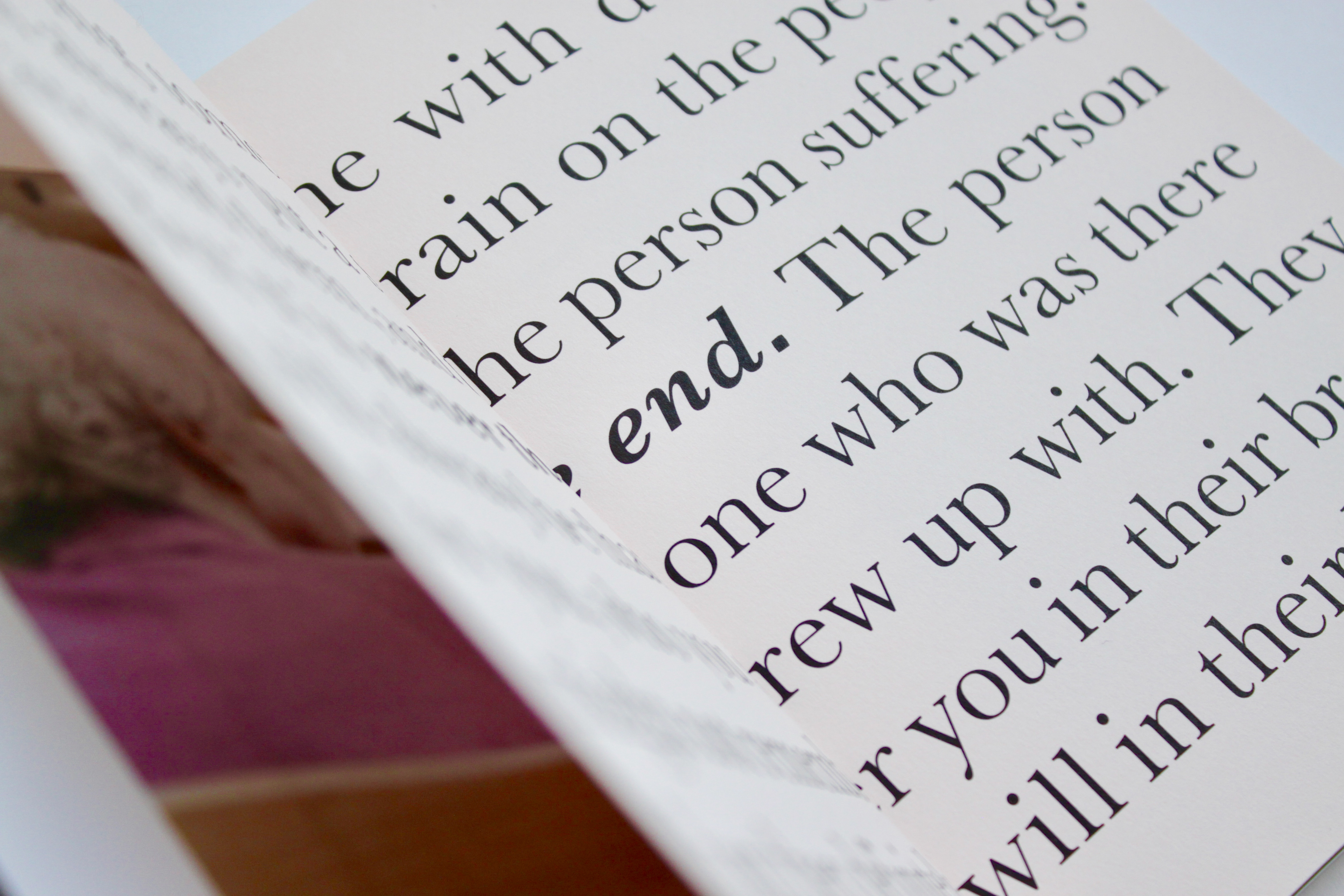

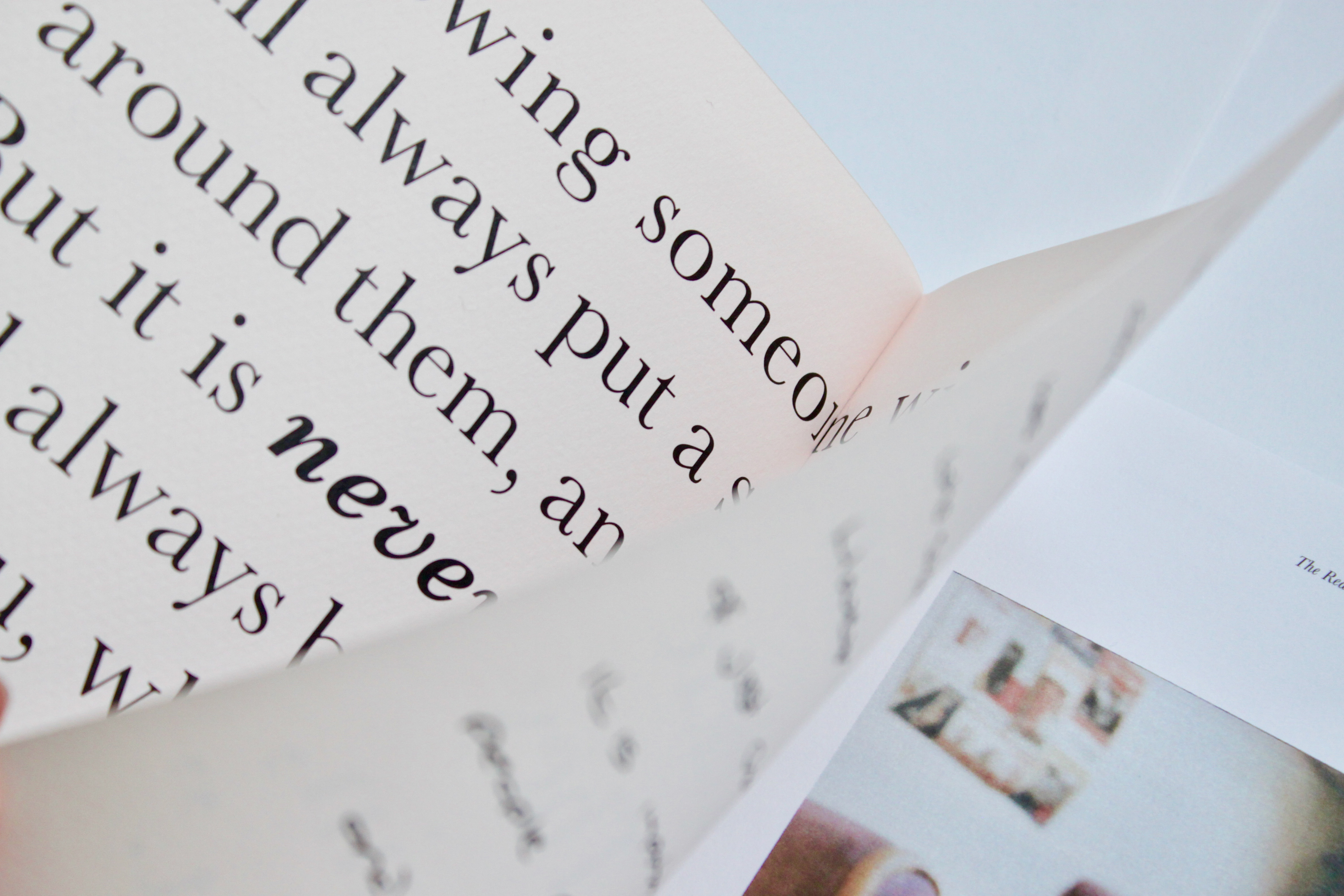
The Penryn Memory Cafe
On the 17th January 2019, I visited the Memory Café based in the Heart of Penryn. The café was set up in September 2015 to provide support to those people living with dementia in the local community. The Memory Cafe is ran by a group of volunteers of all ages, from students to individuals who have closely been effected by Dementia. It allows a safe, supportive and welcoming space in which everyone feels a sense of connection and the chance to build warming friendships – and I can confirm, this is most definitely true.
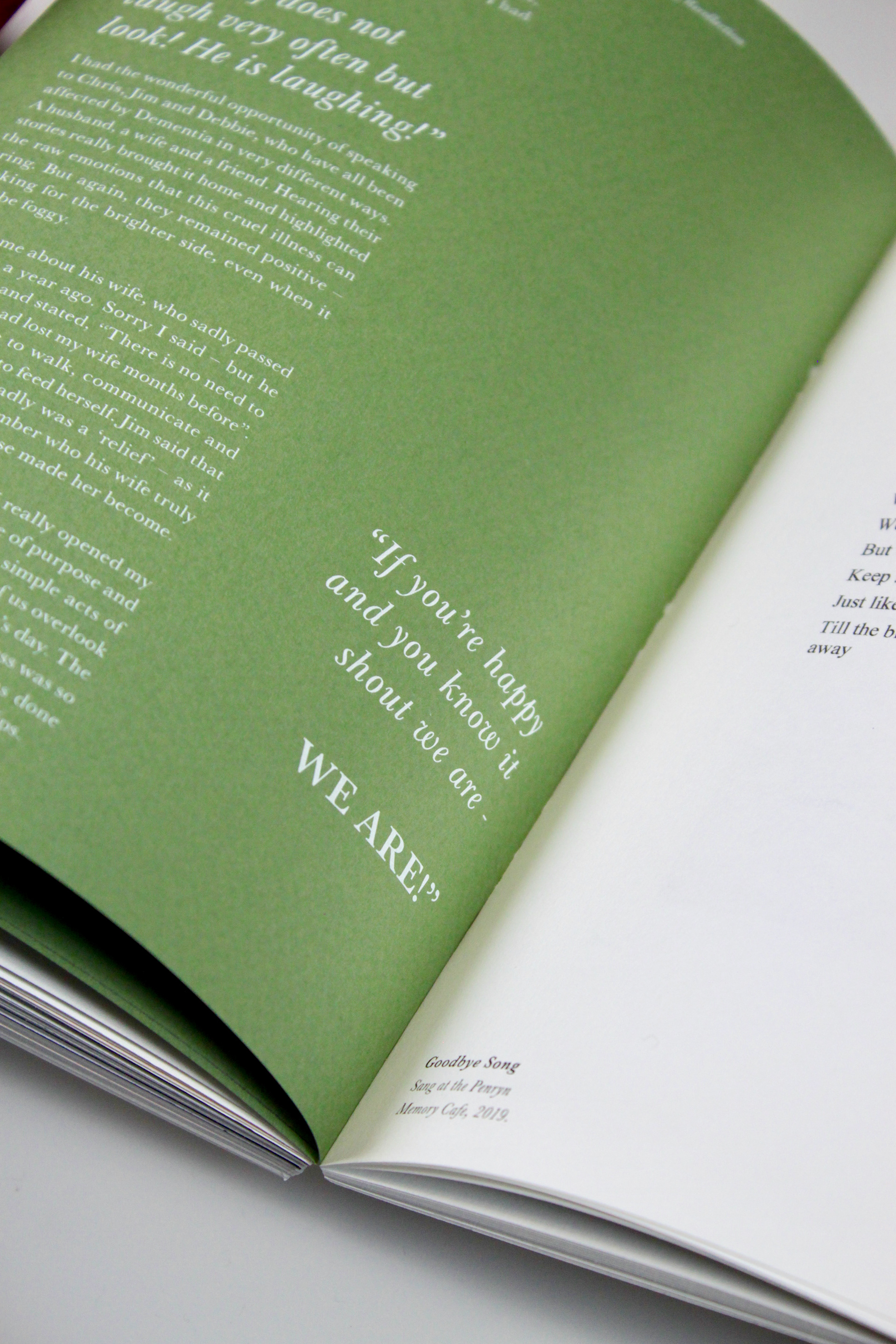
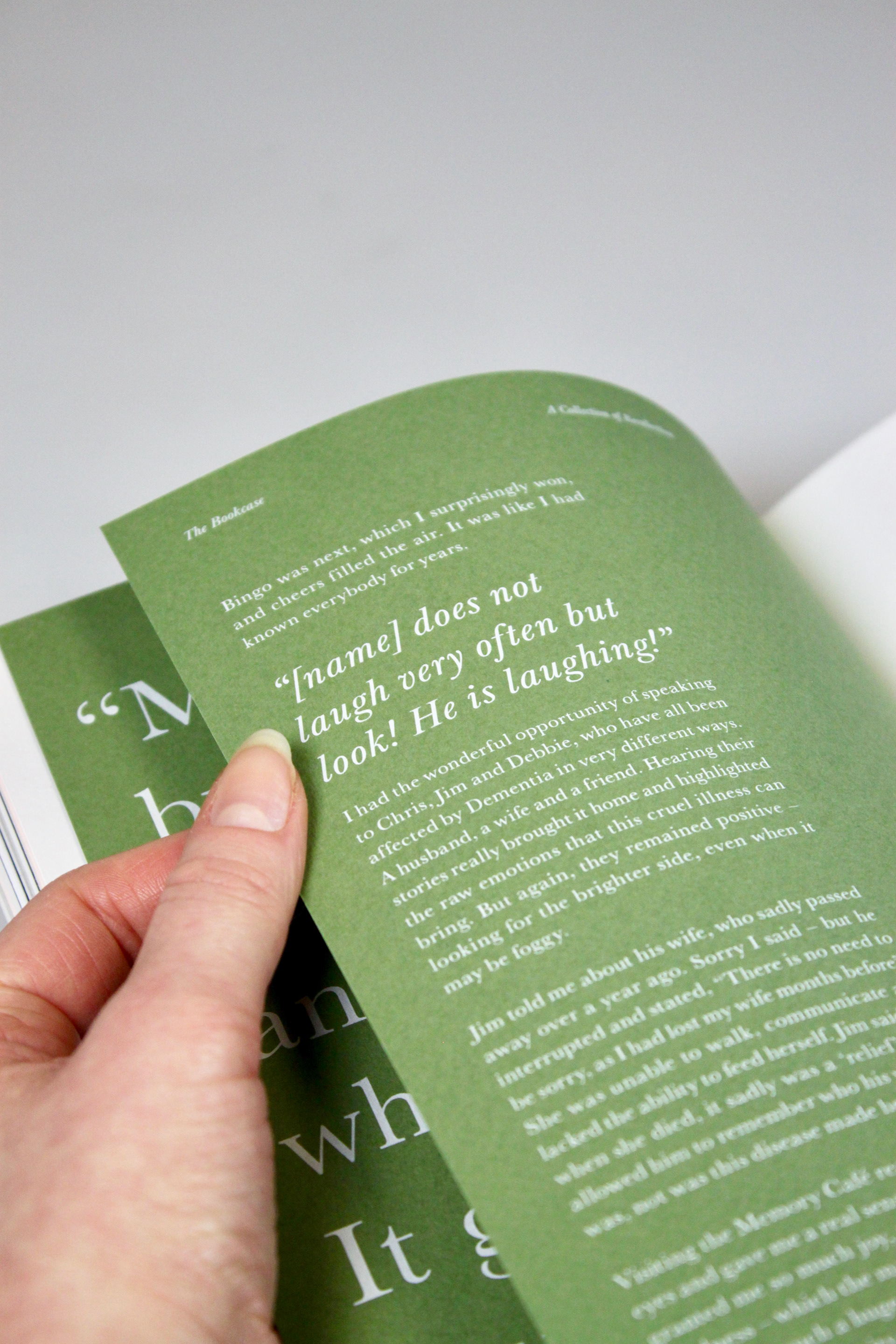
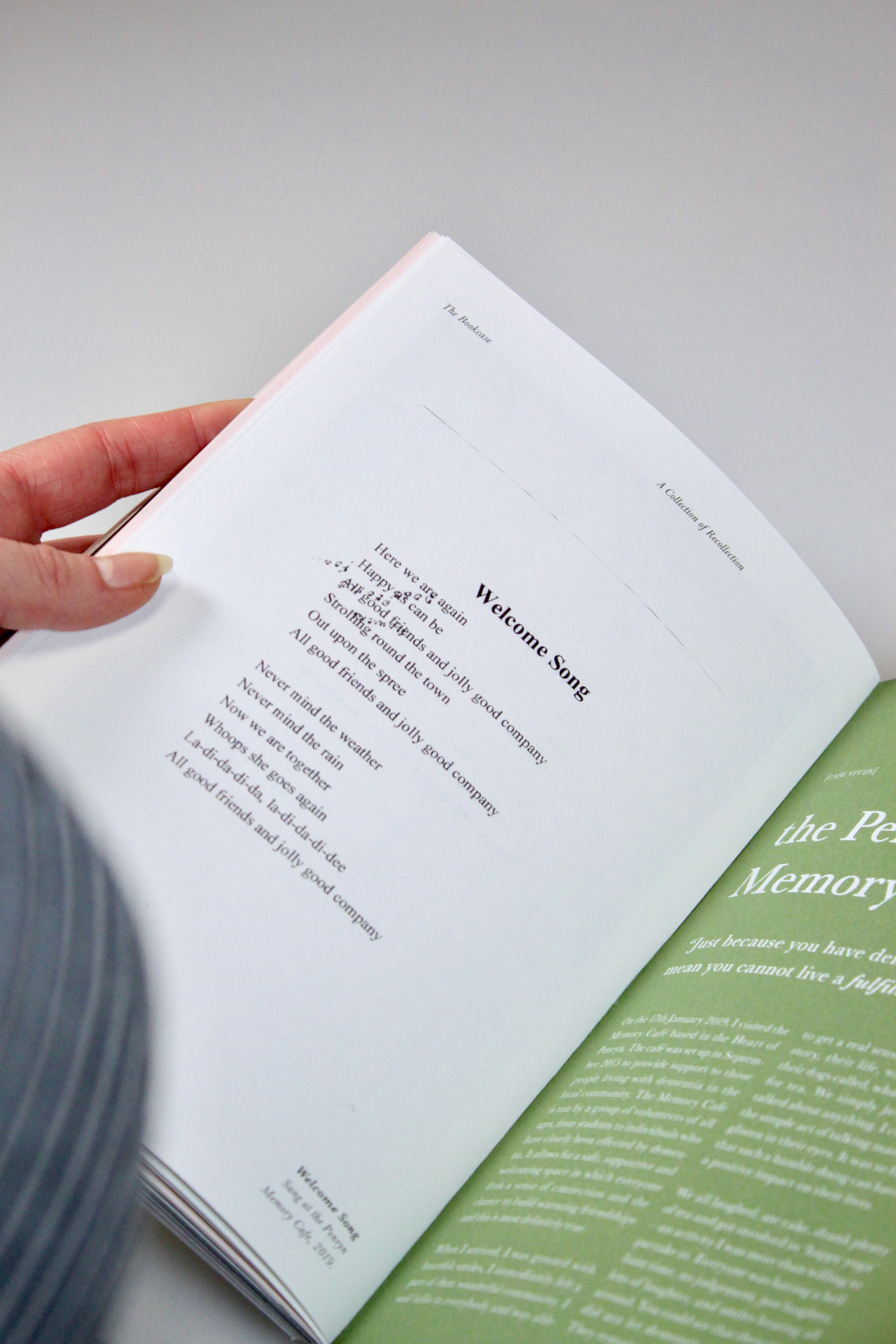
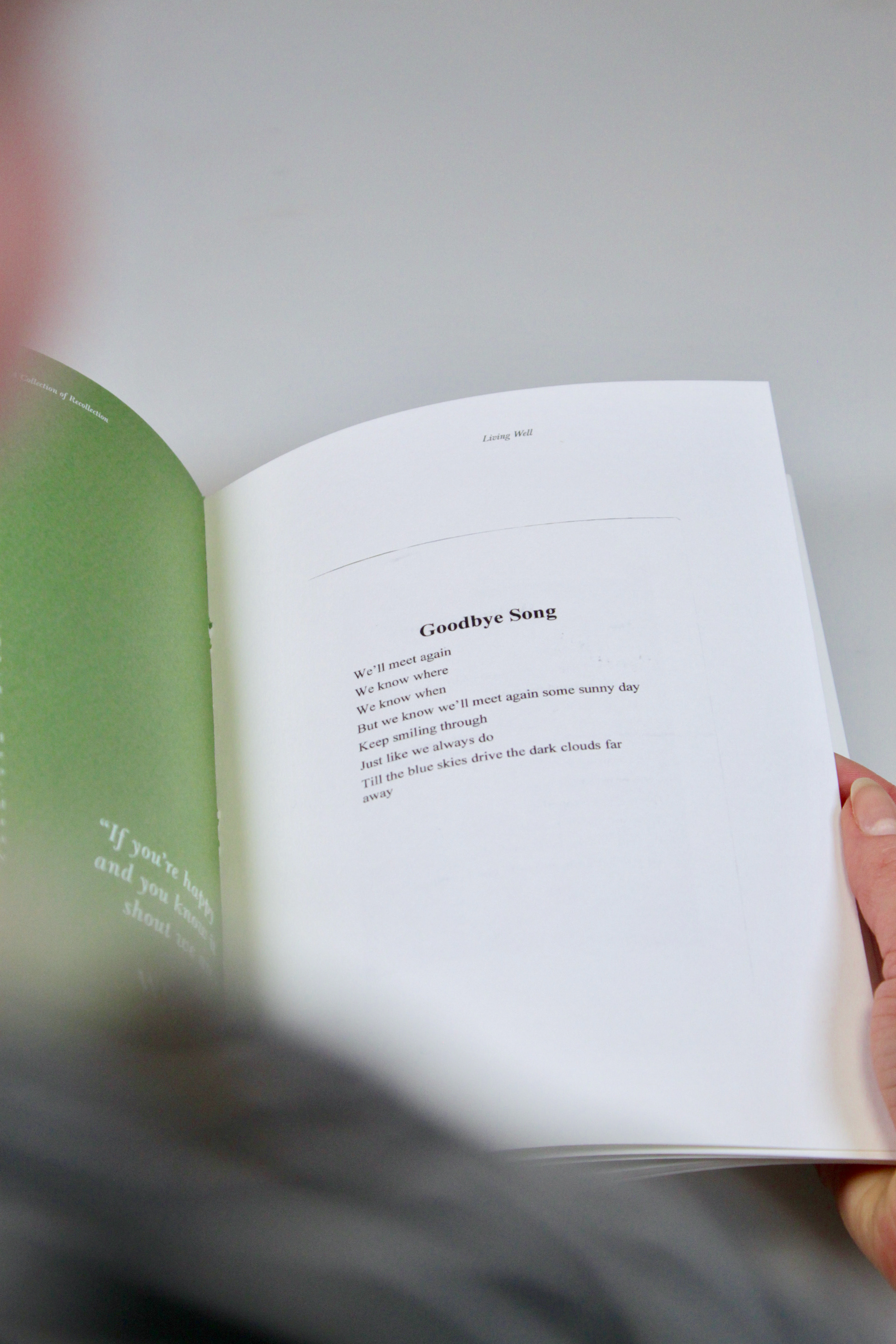
Dedication to my Grandma, Audrey
In remembrance 1928 - 2019
Just as I had finished the binding of the publication, my Grandma passed away. This was obviously a very upsetting time - however, whenever I look back at this project, I will know that this was for my Grandma and it holds such a special place in my heart. This chapter contains a handwritten account by me, the story of my Grandma, her handwriting and a selection of imagery from my childhood.
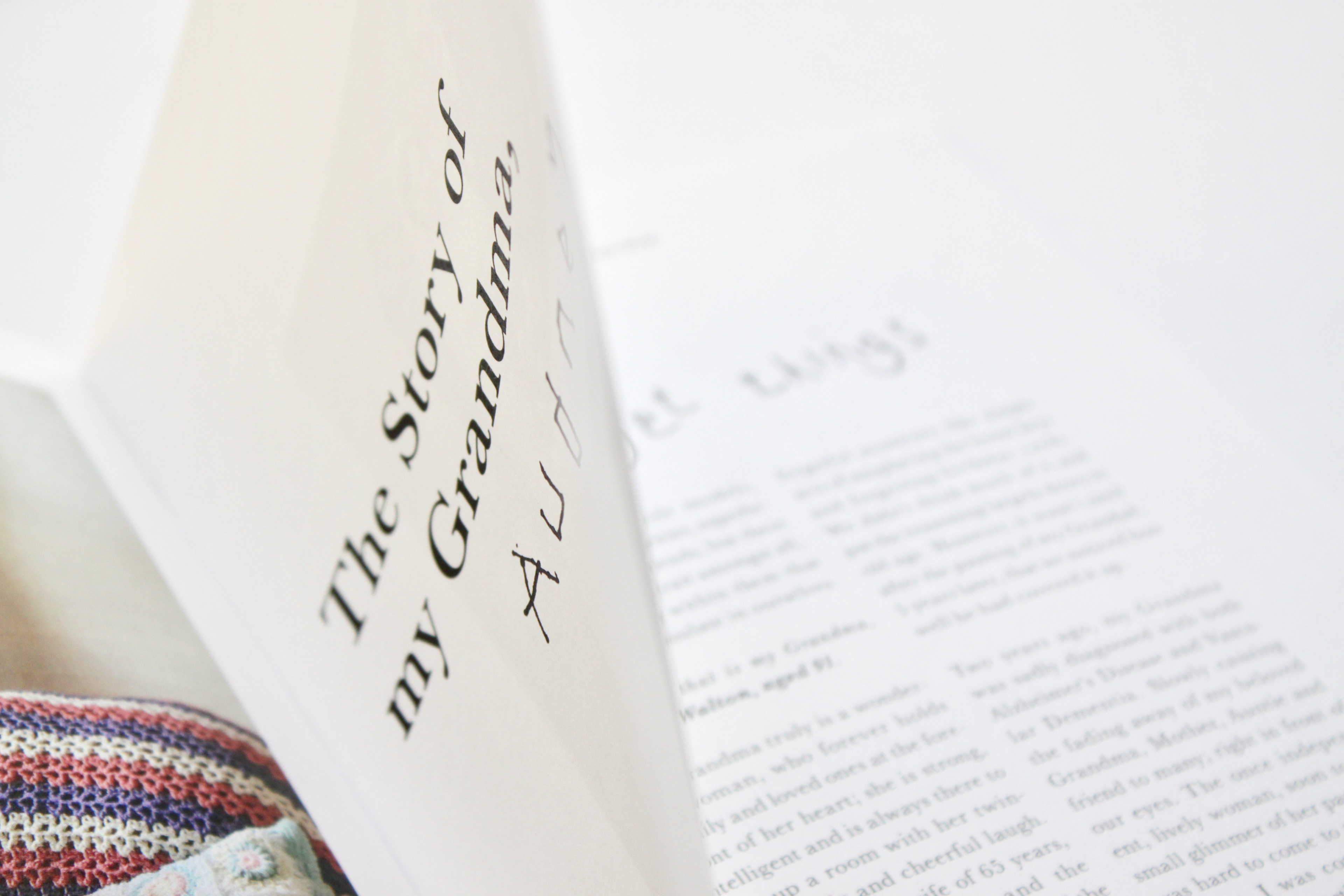
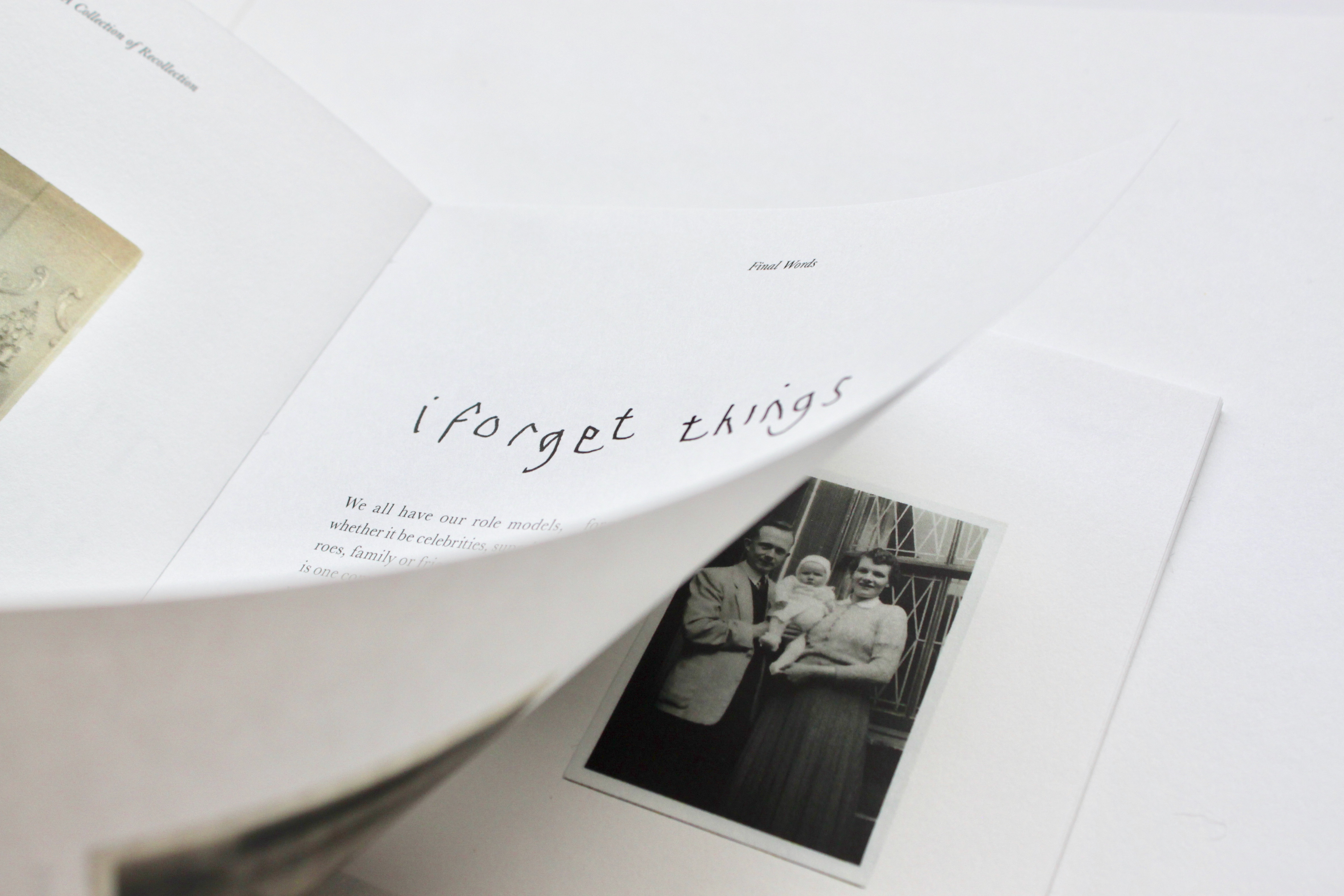
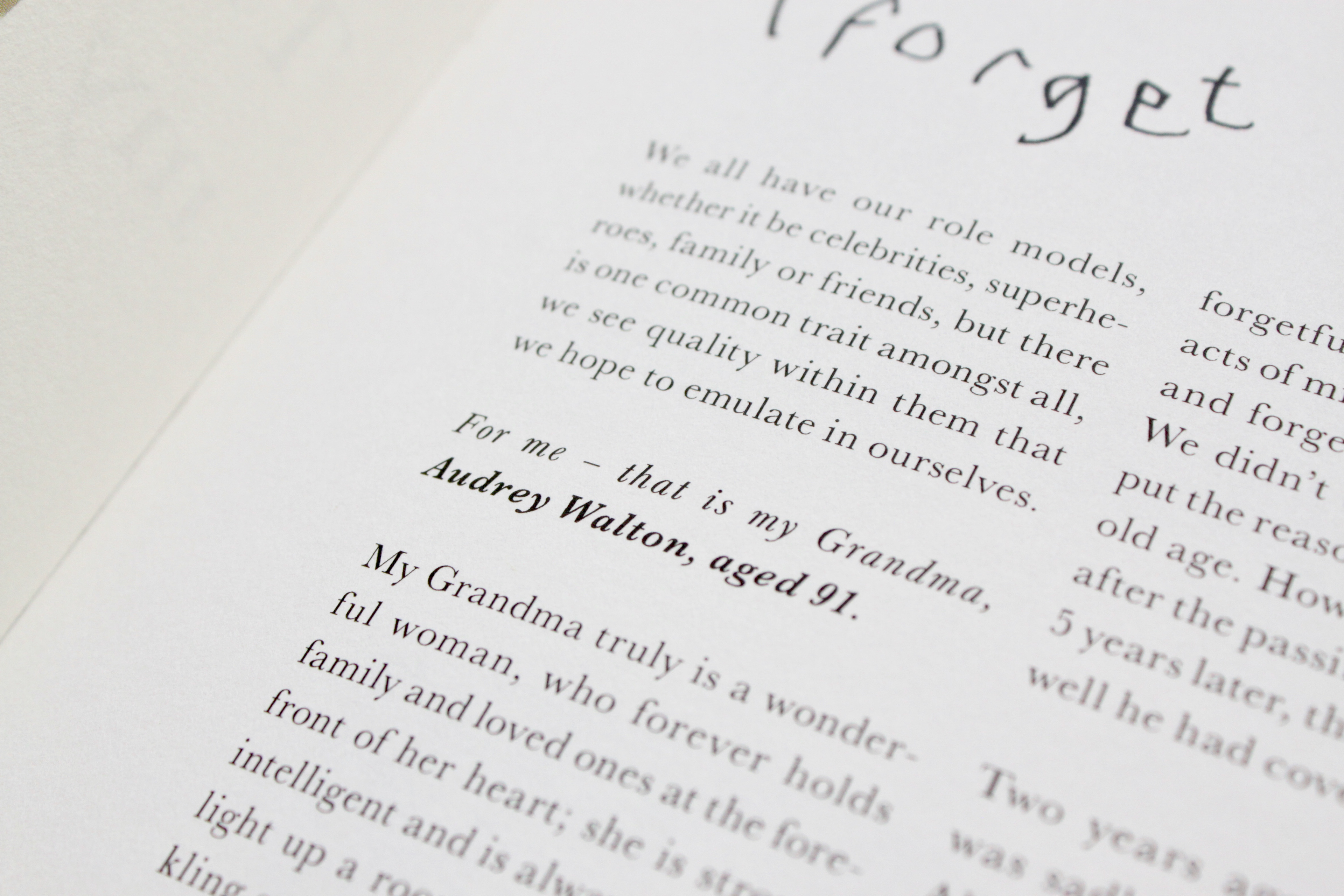
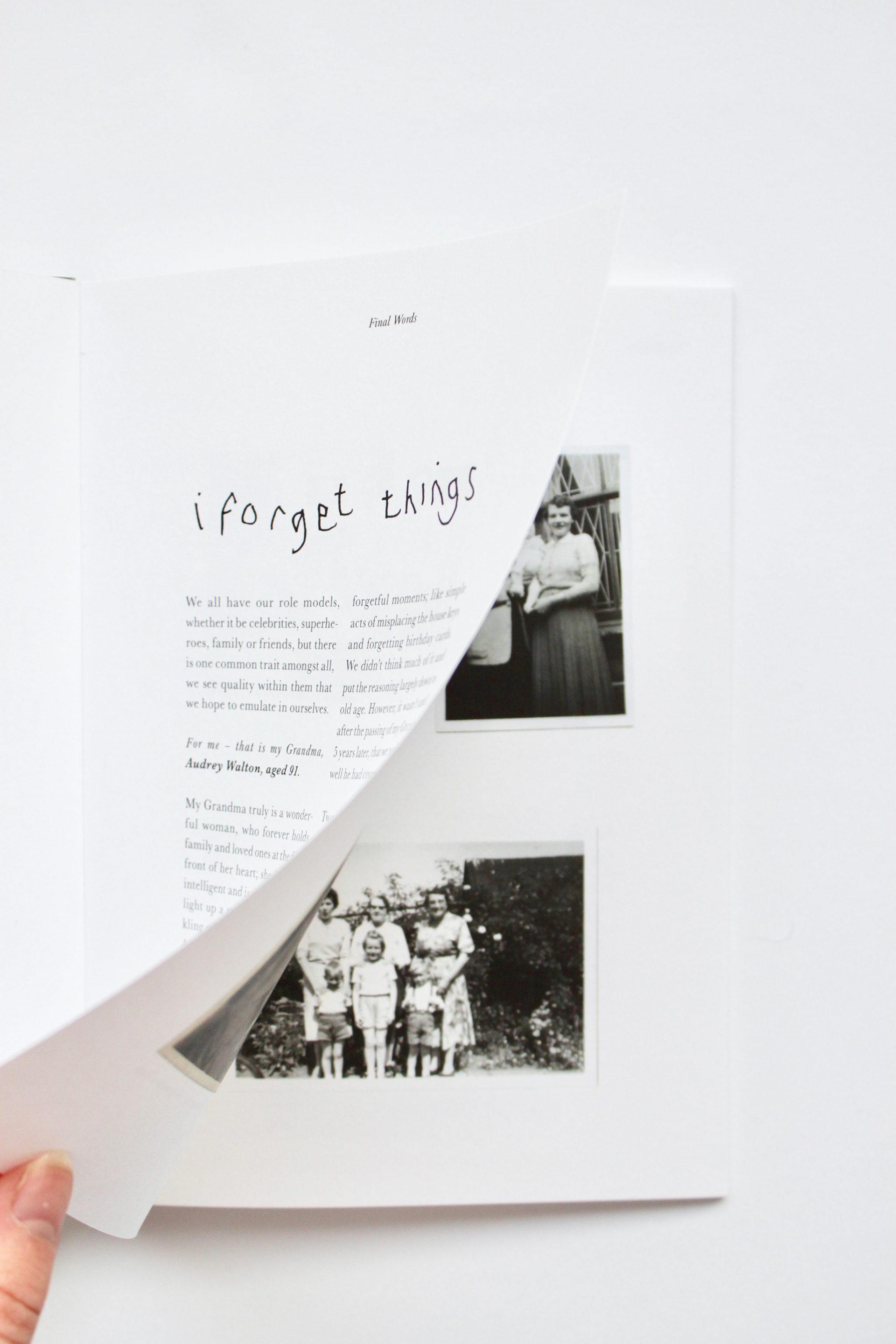
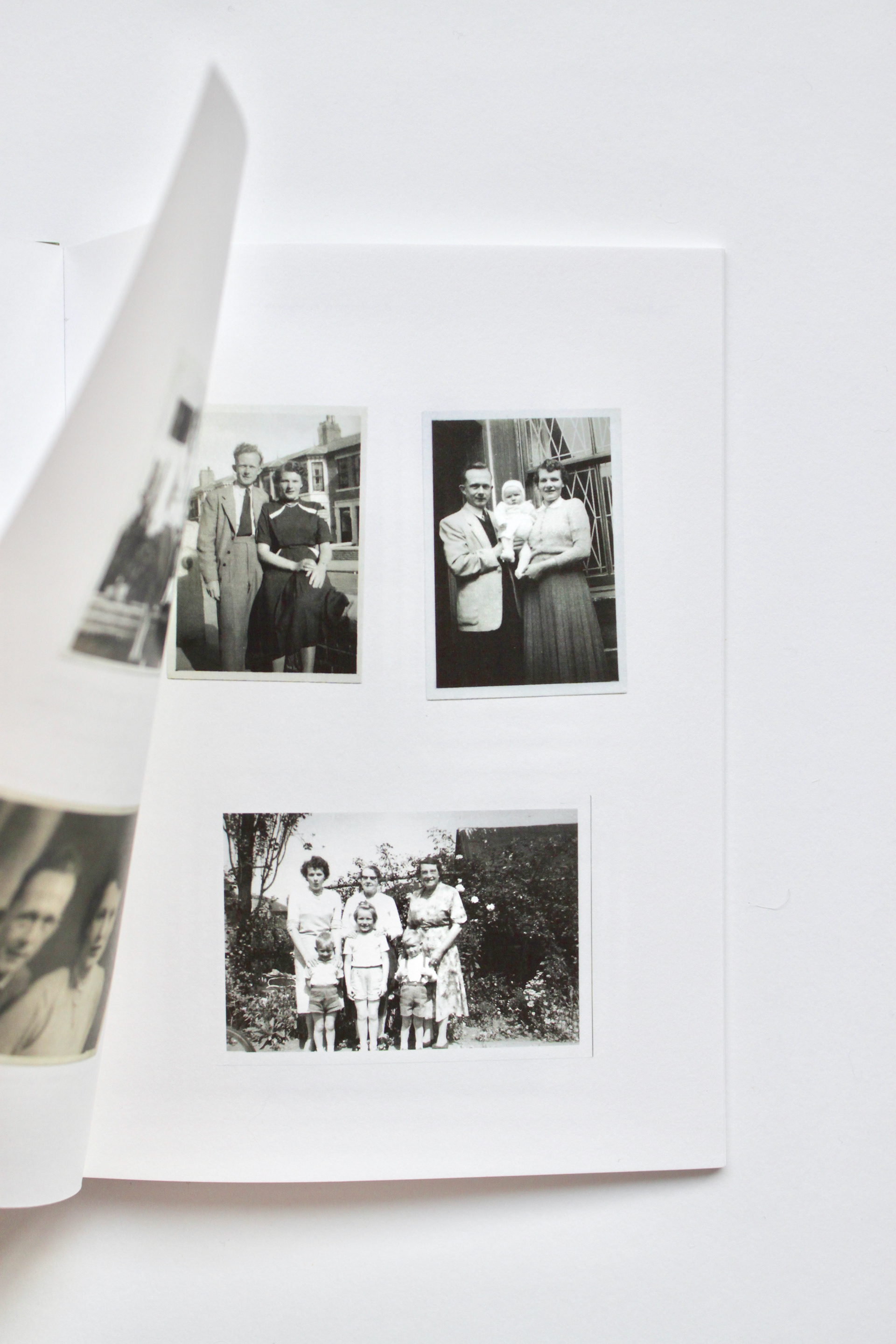
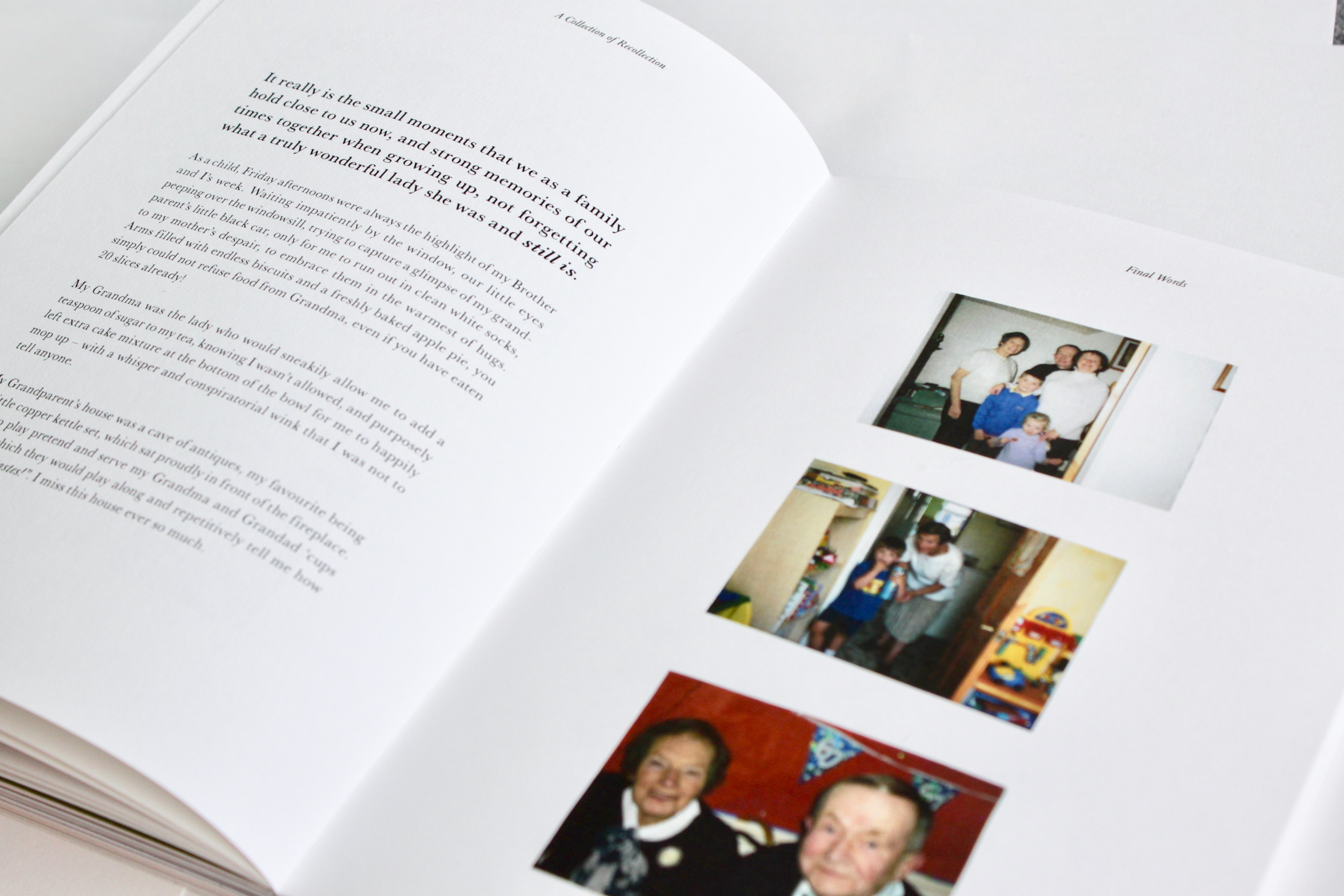
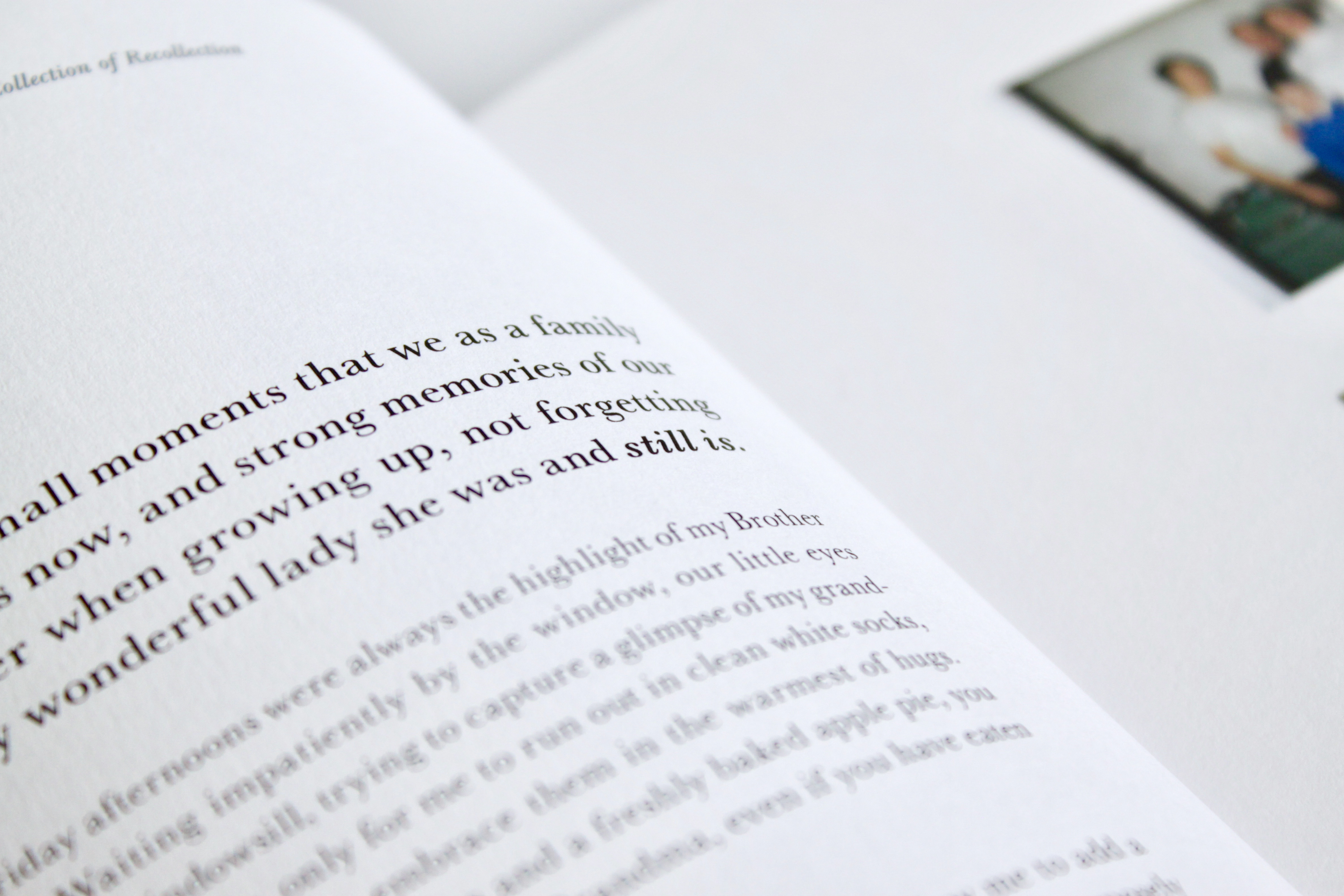
Birthday Cards
Scanned cards given from my Grandparents, showing the deterioration and loss of my Grandma's ability to write, resulting in my Mother having to write for her - however, she always made sure she signed the card off with her love.
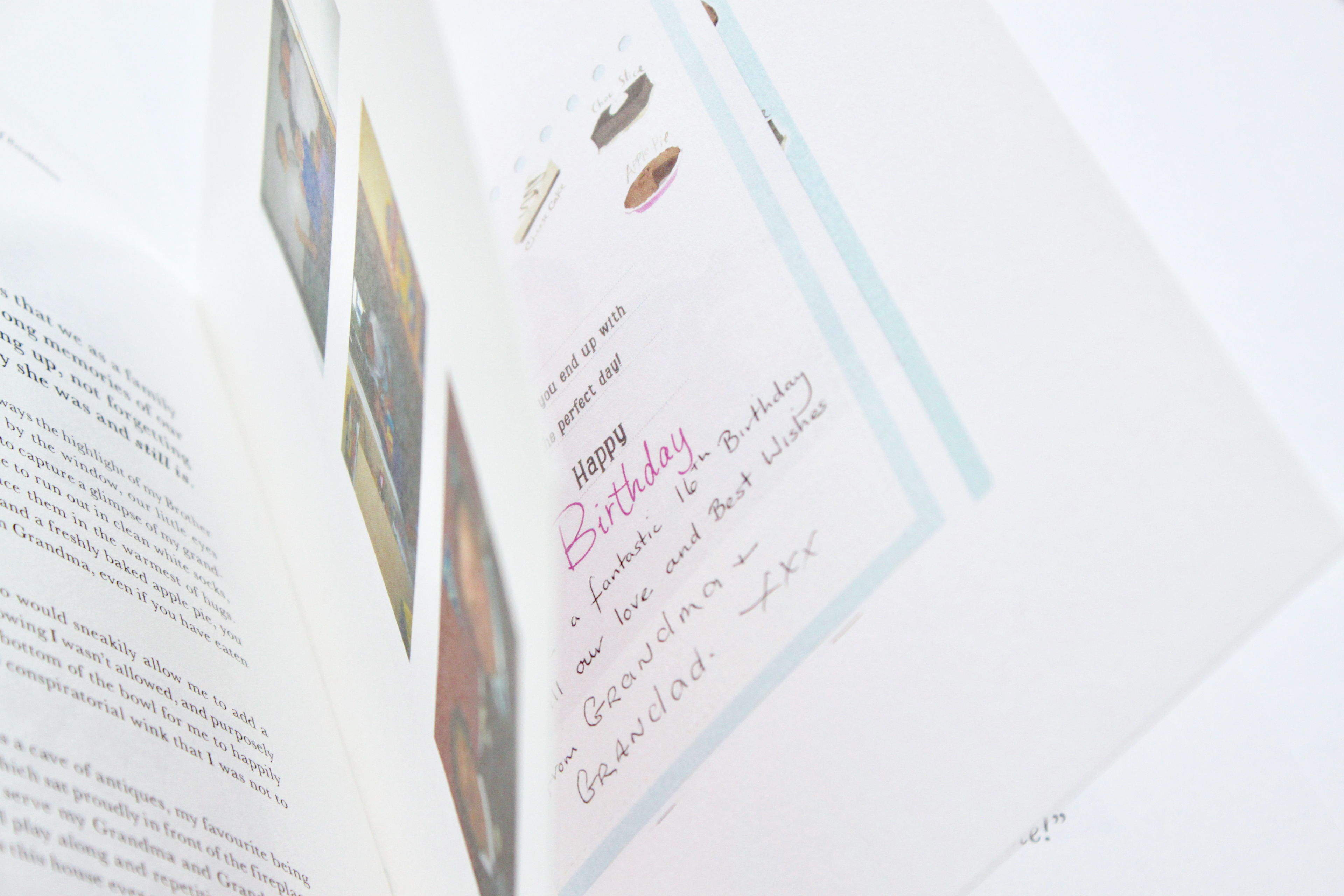
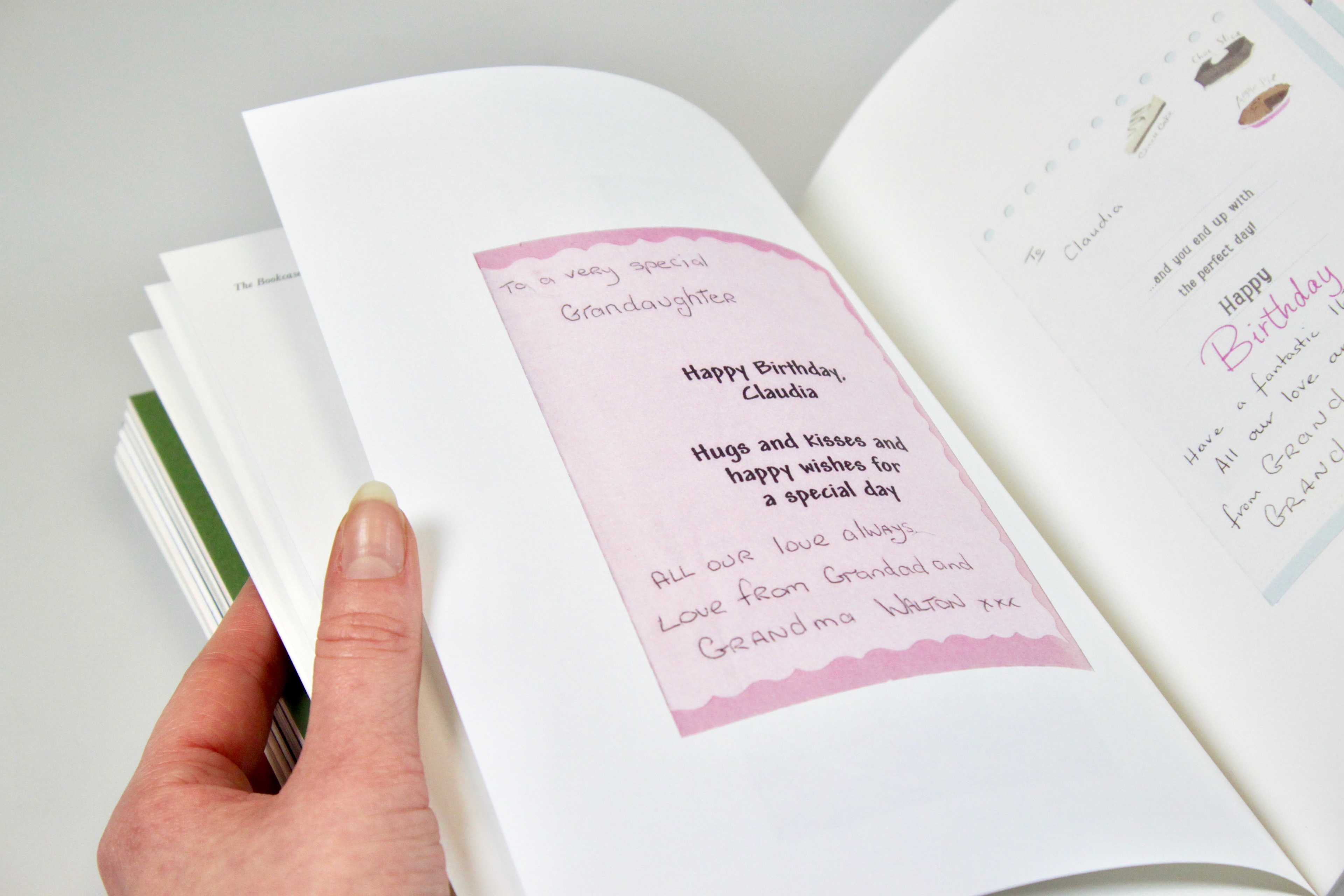
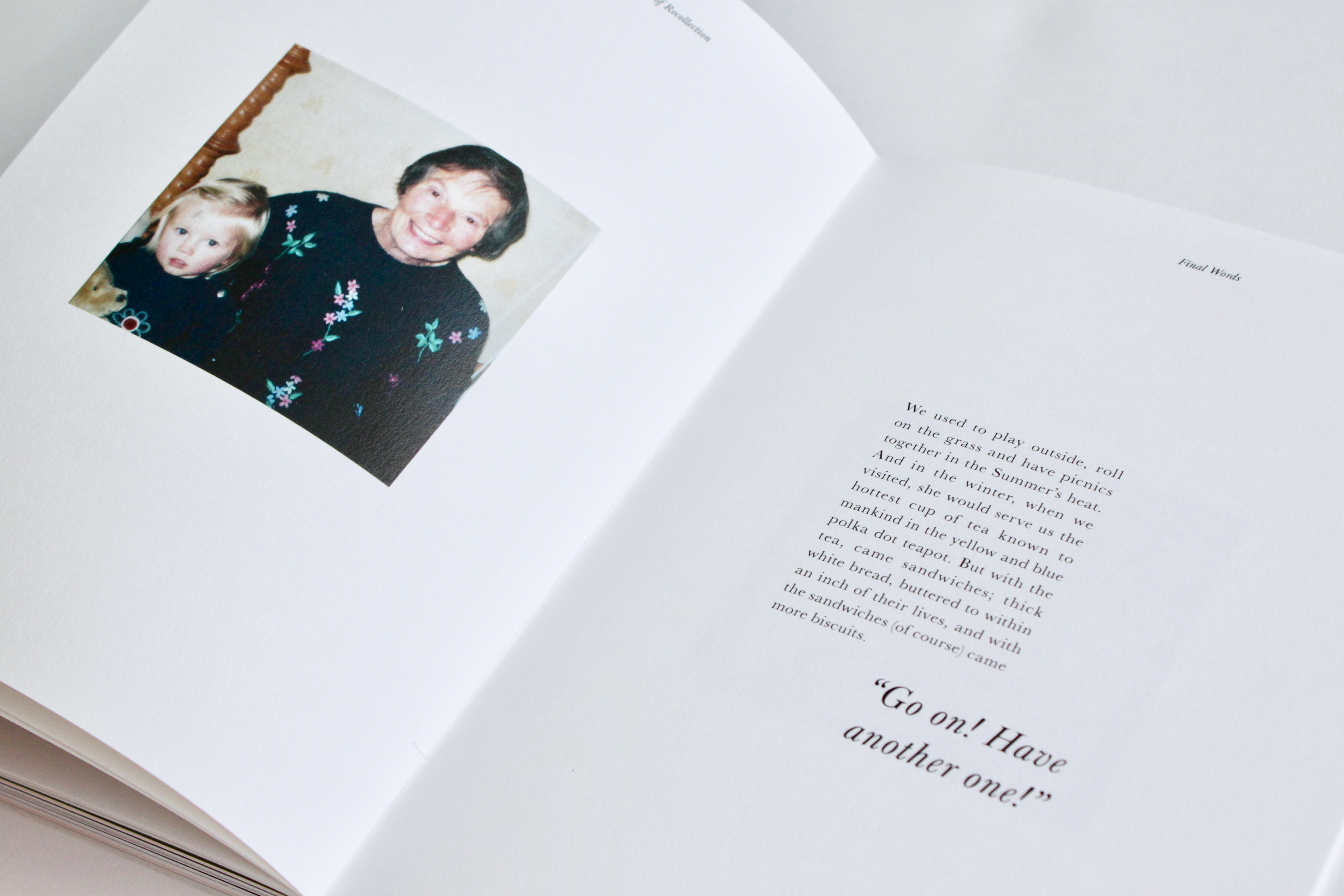
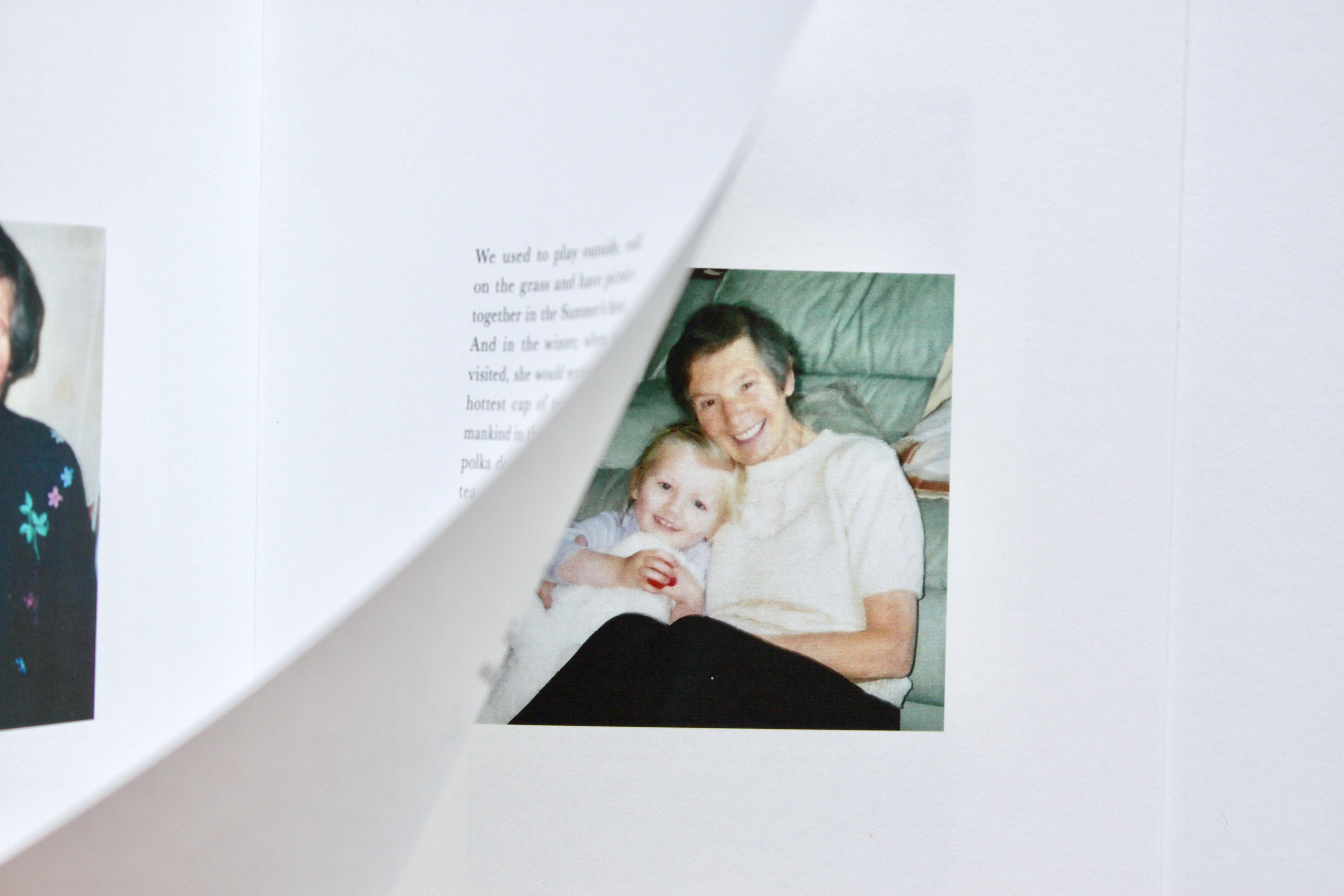
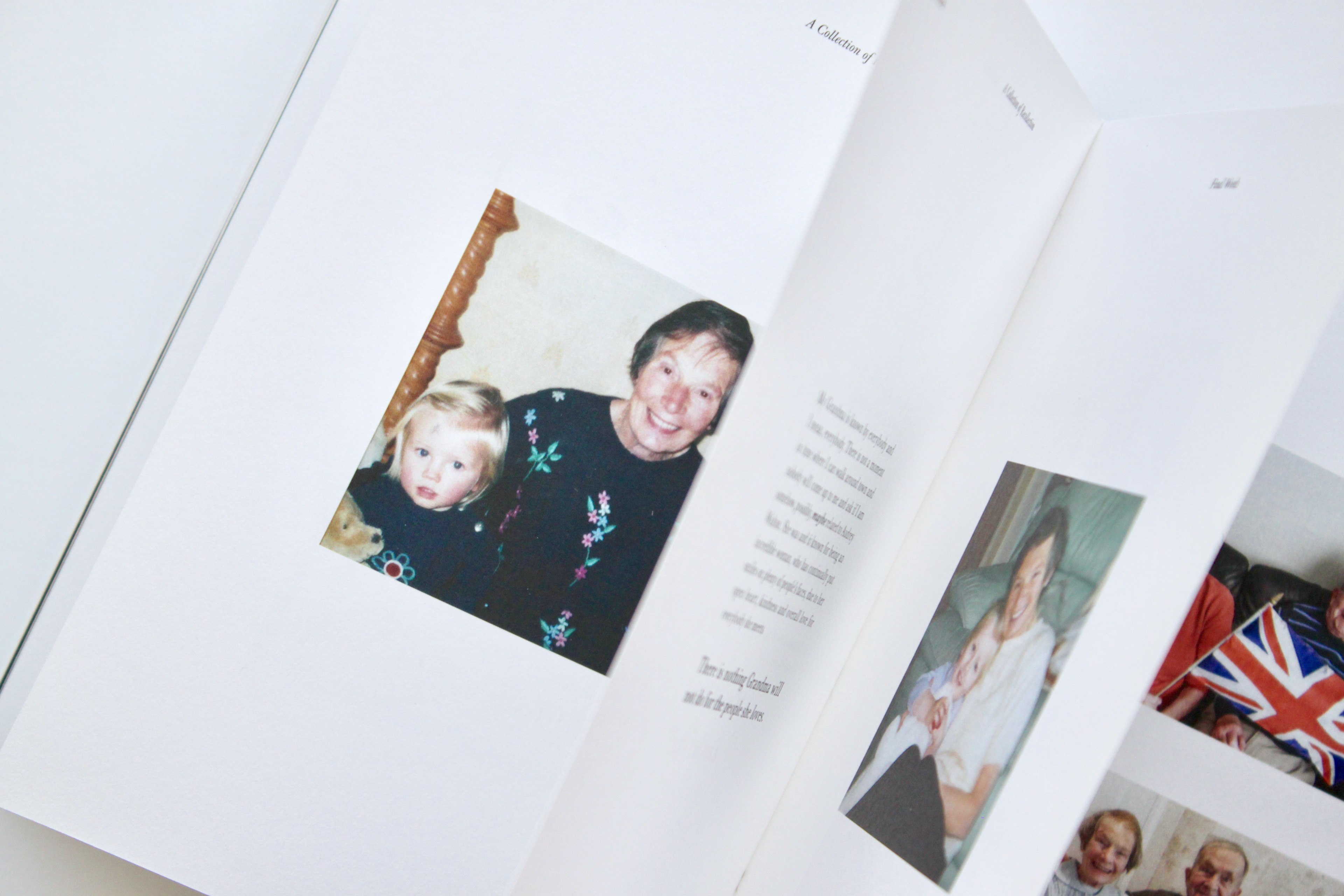
-
"The cows are lying down, it's going to rain...If you've got hiccups, you're growing!"
Phrases my Grandma always used to say
-
